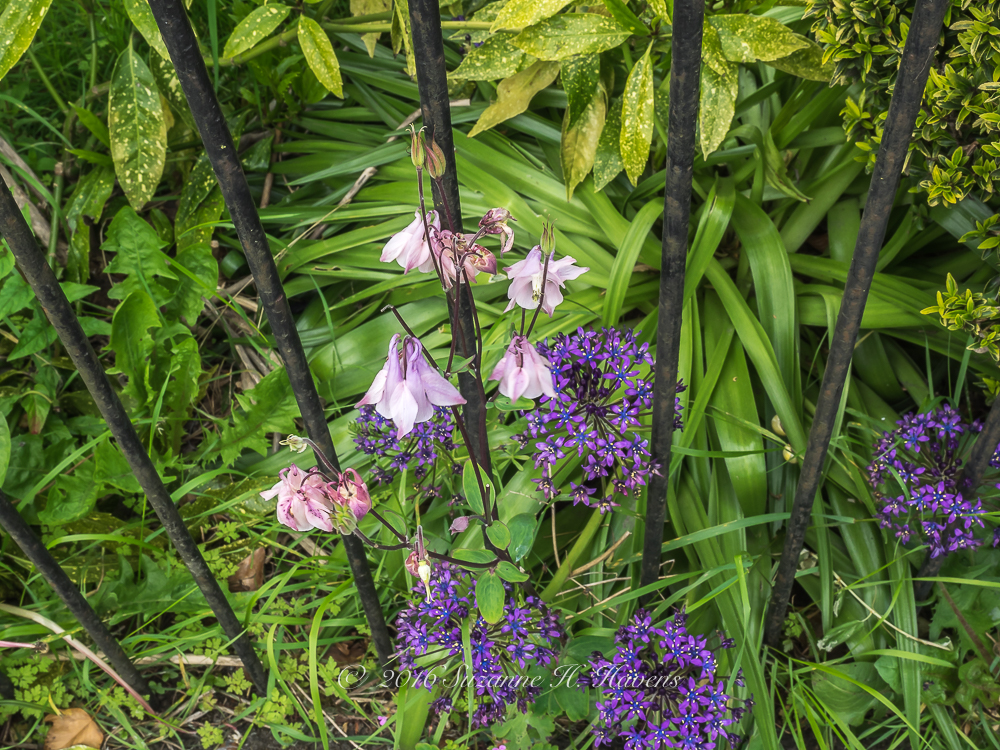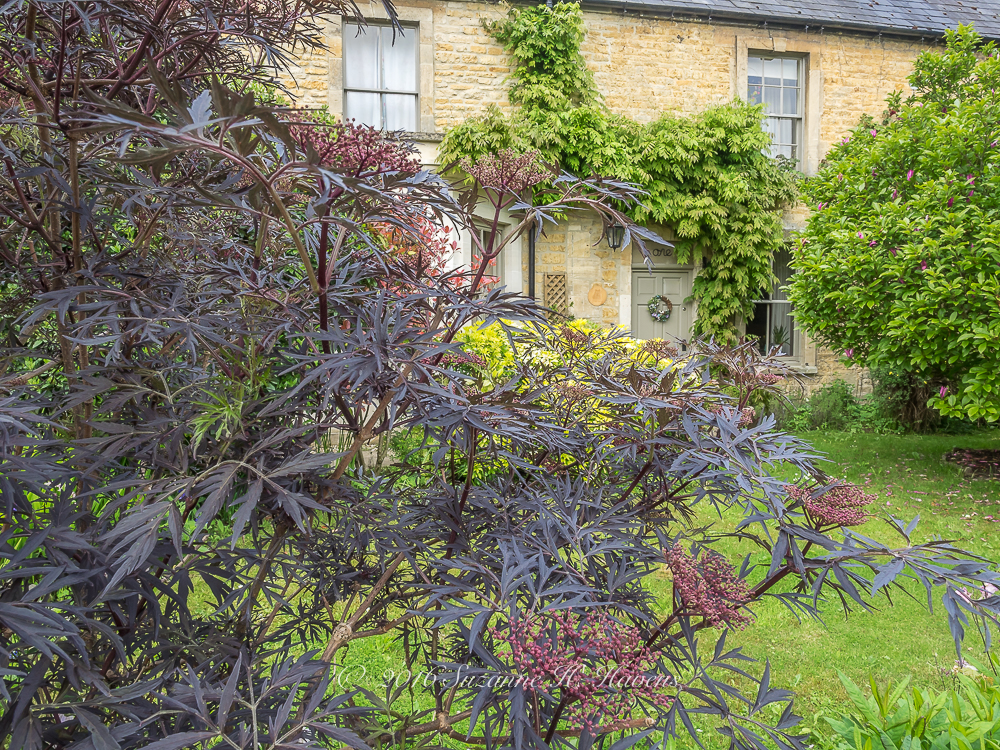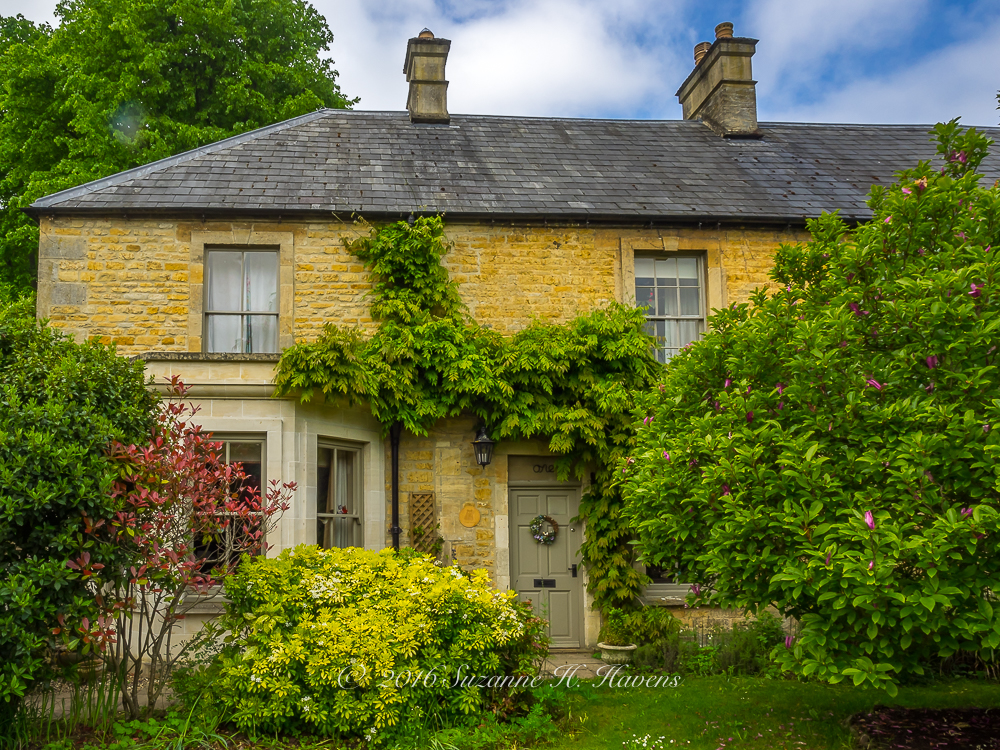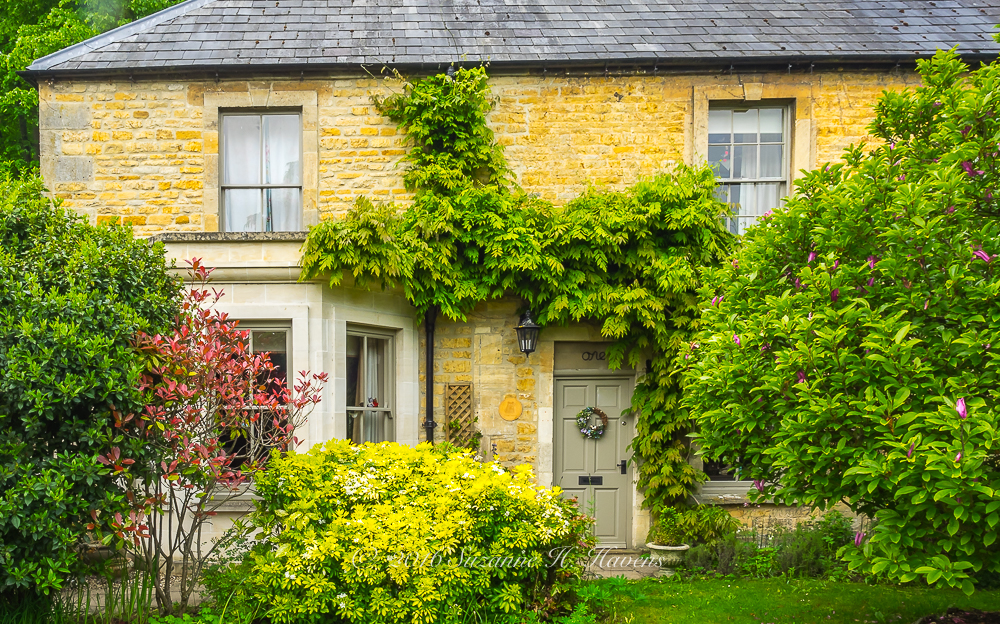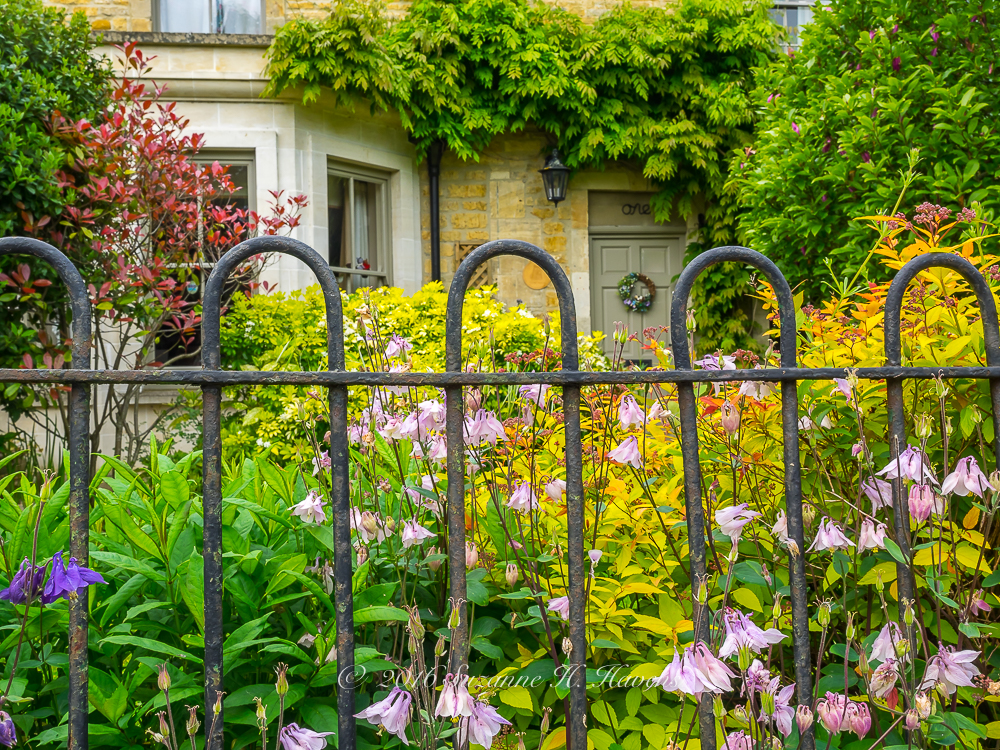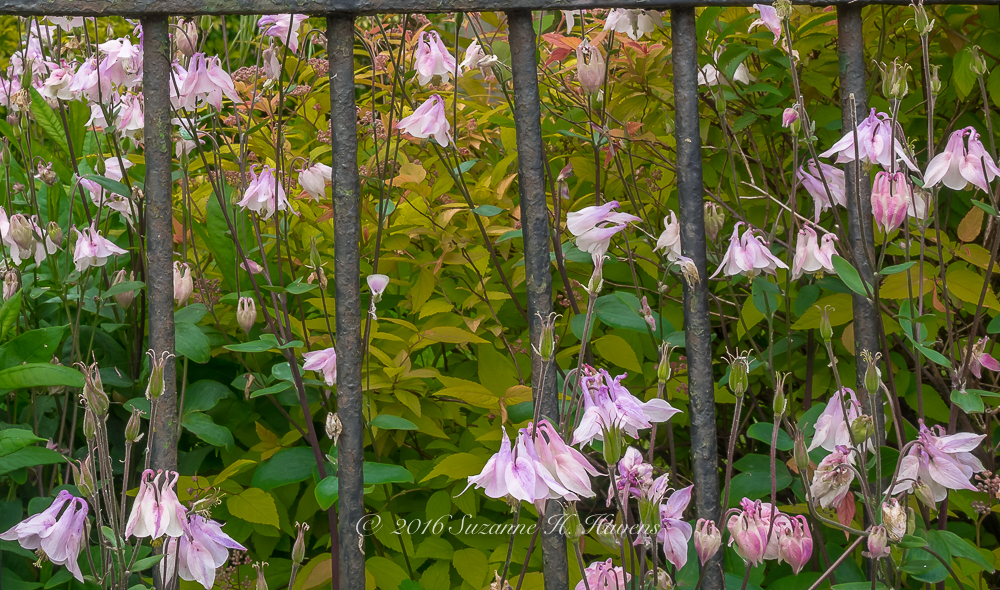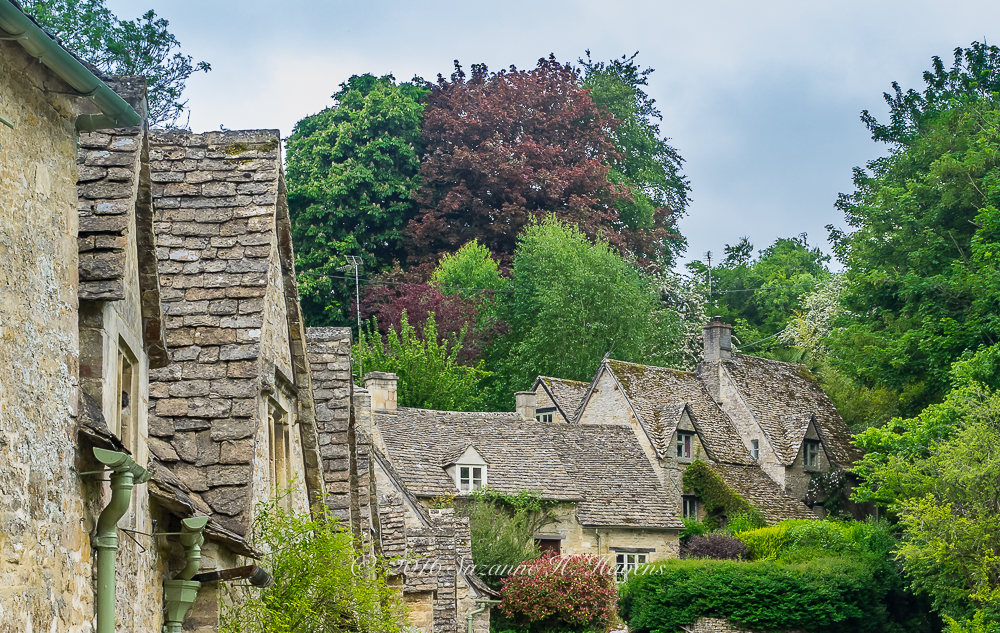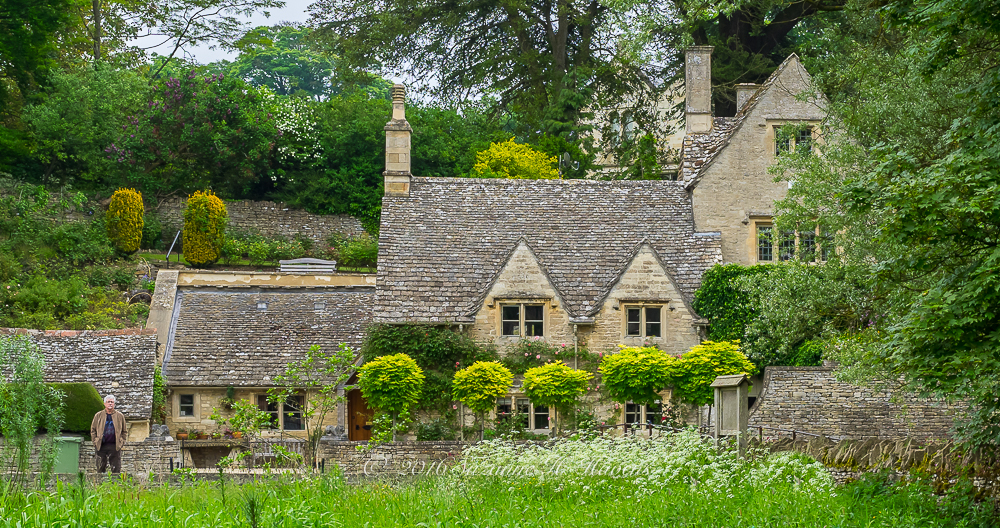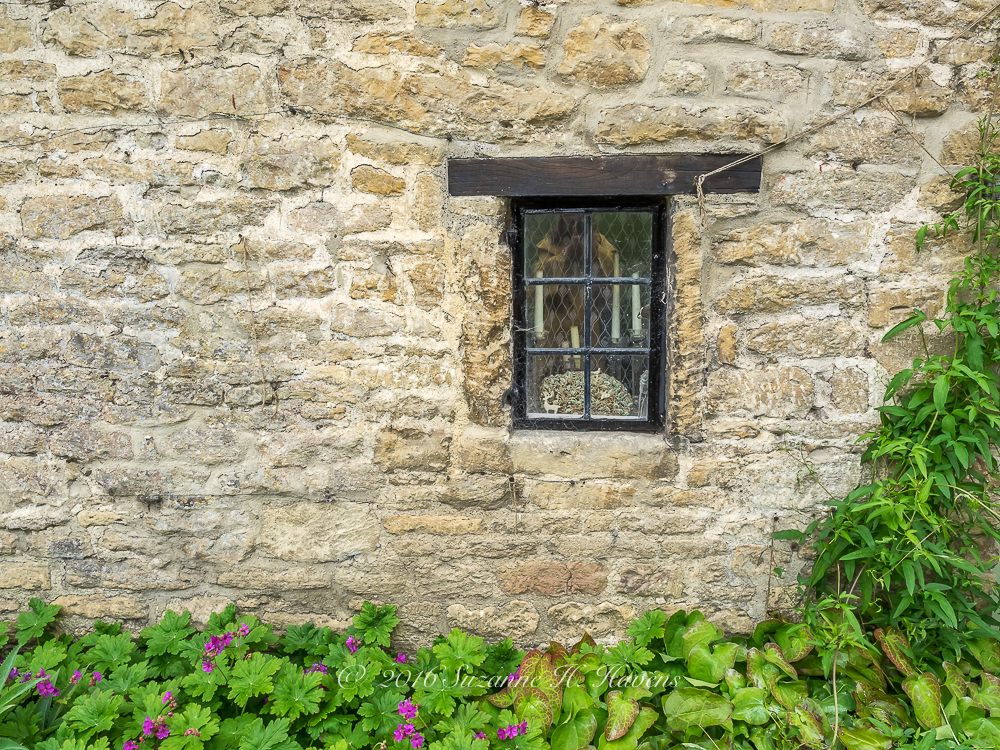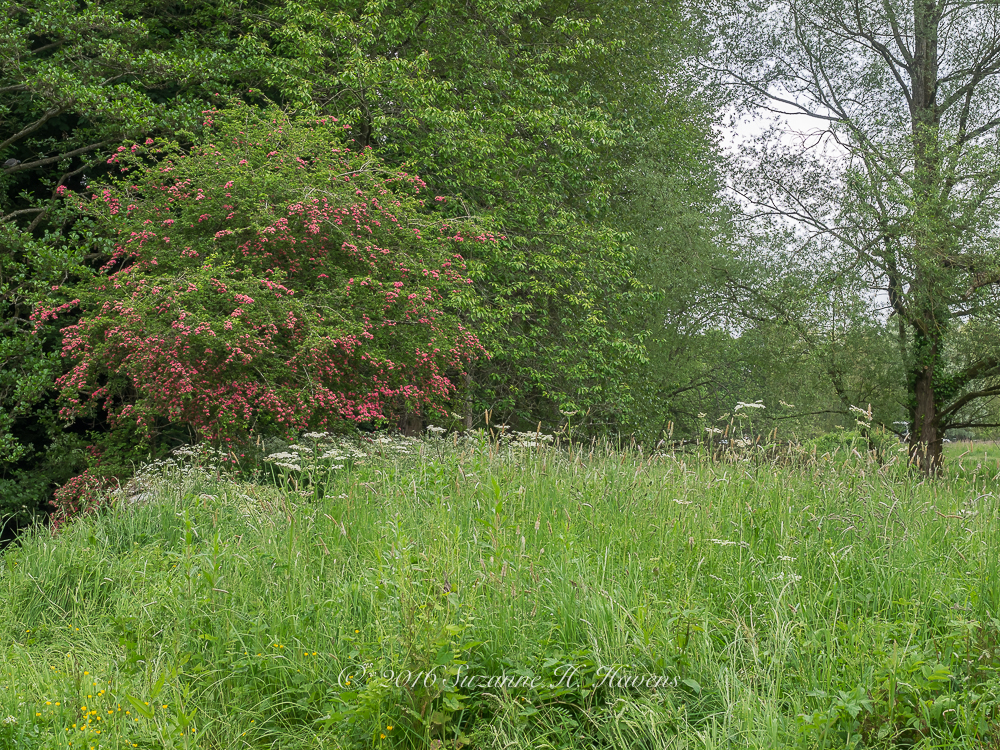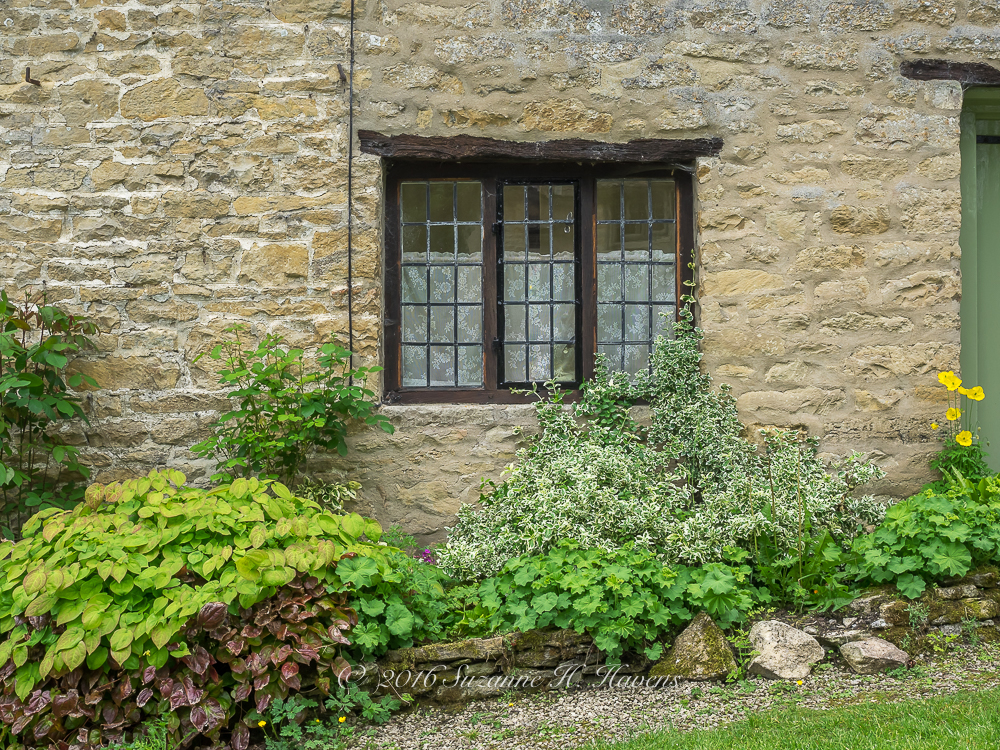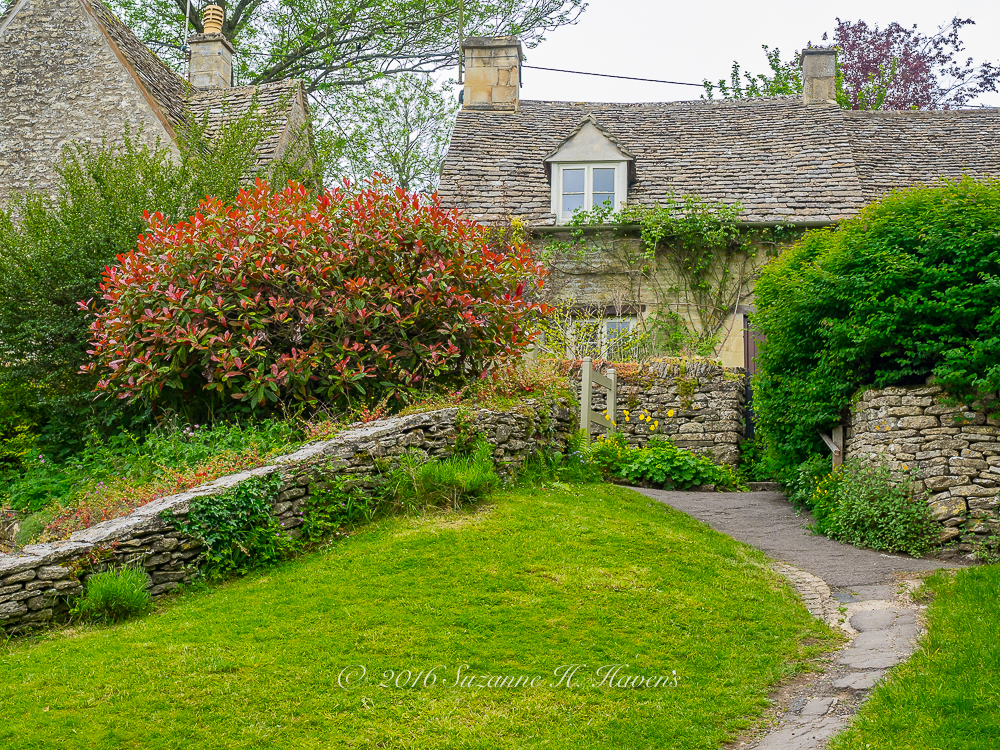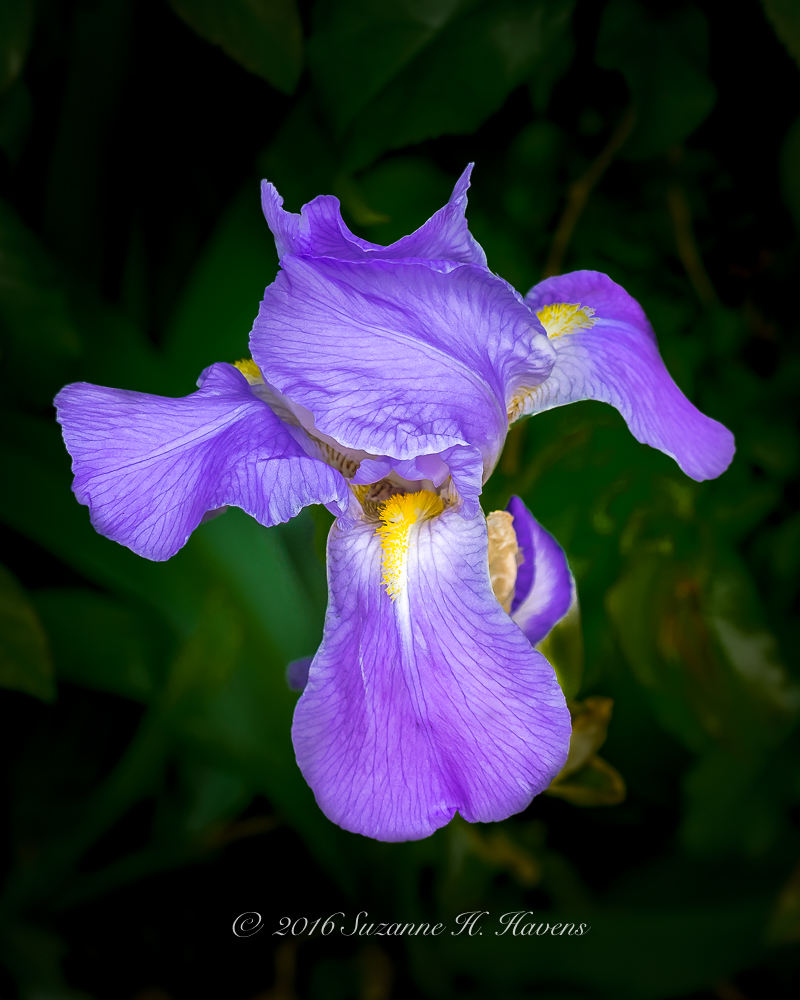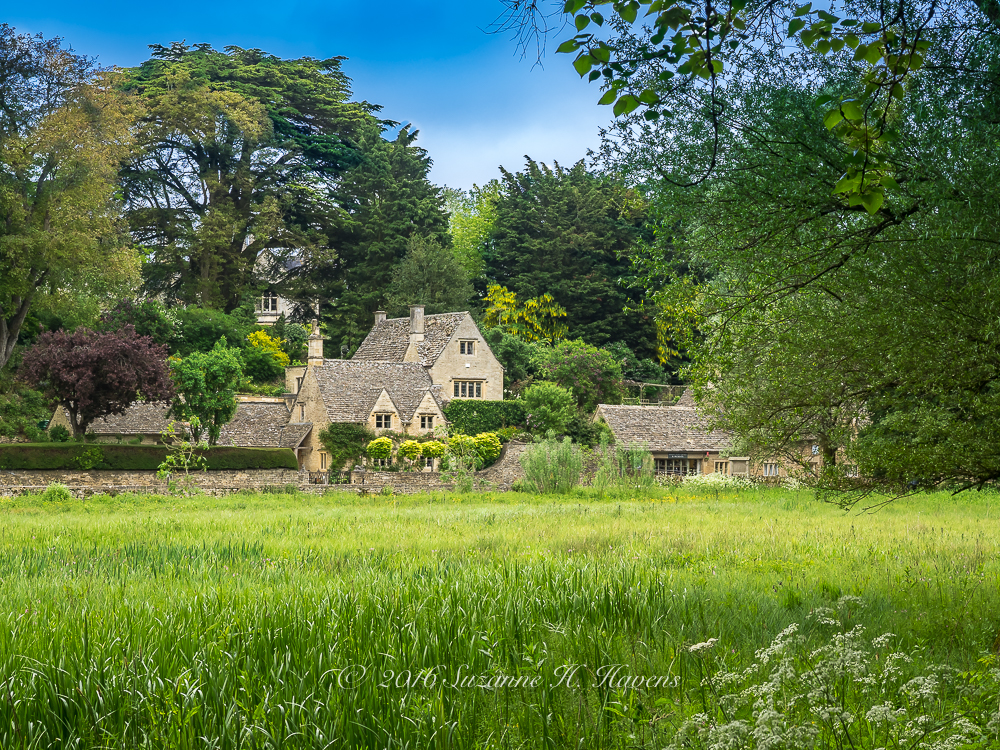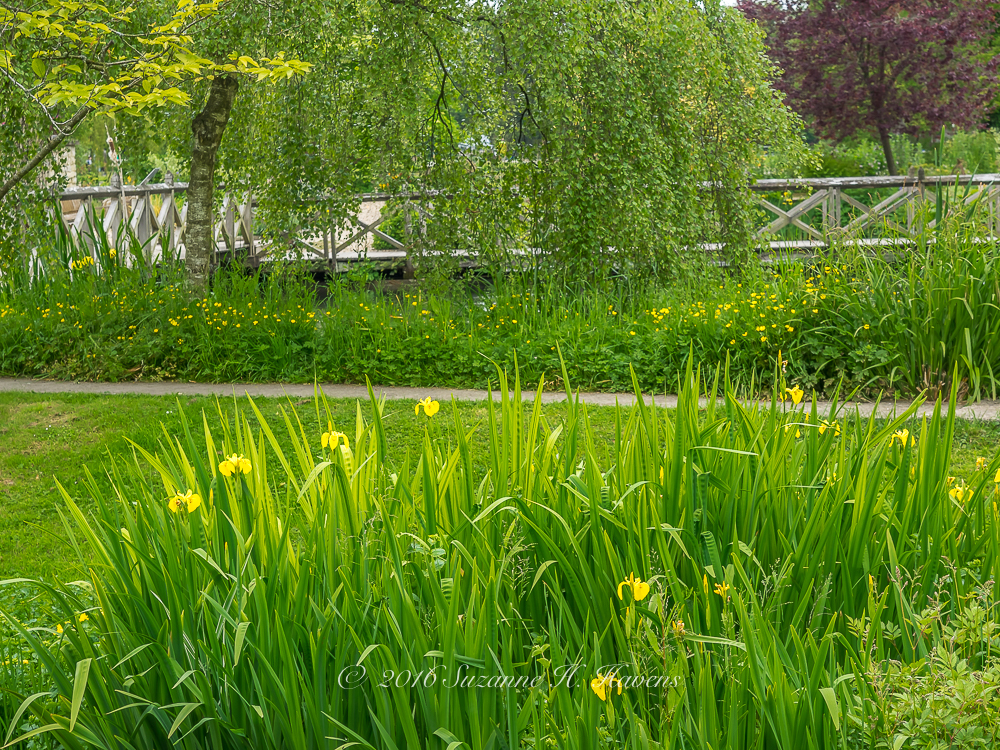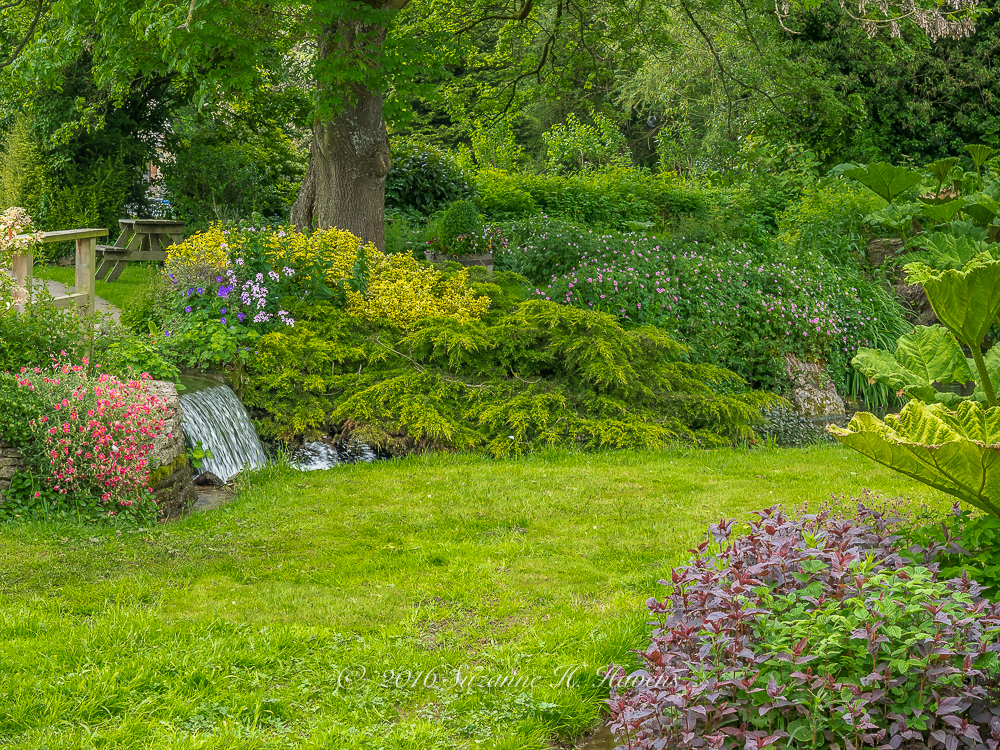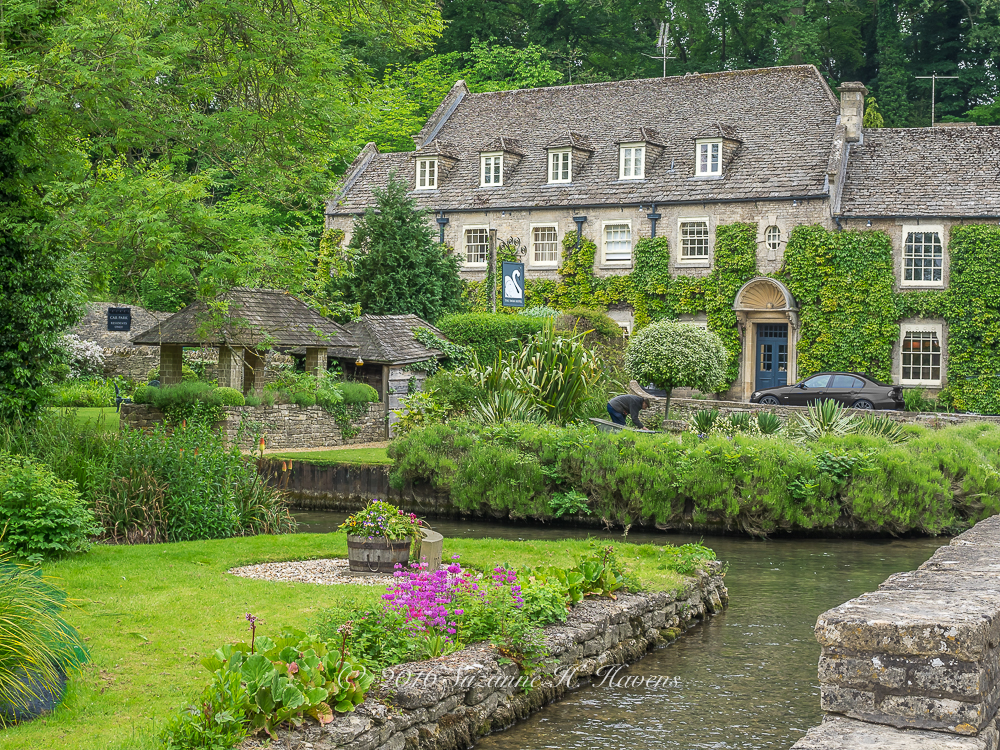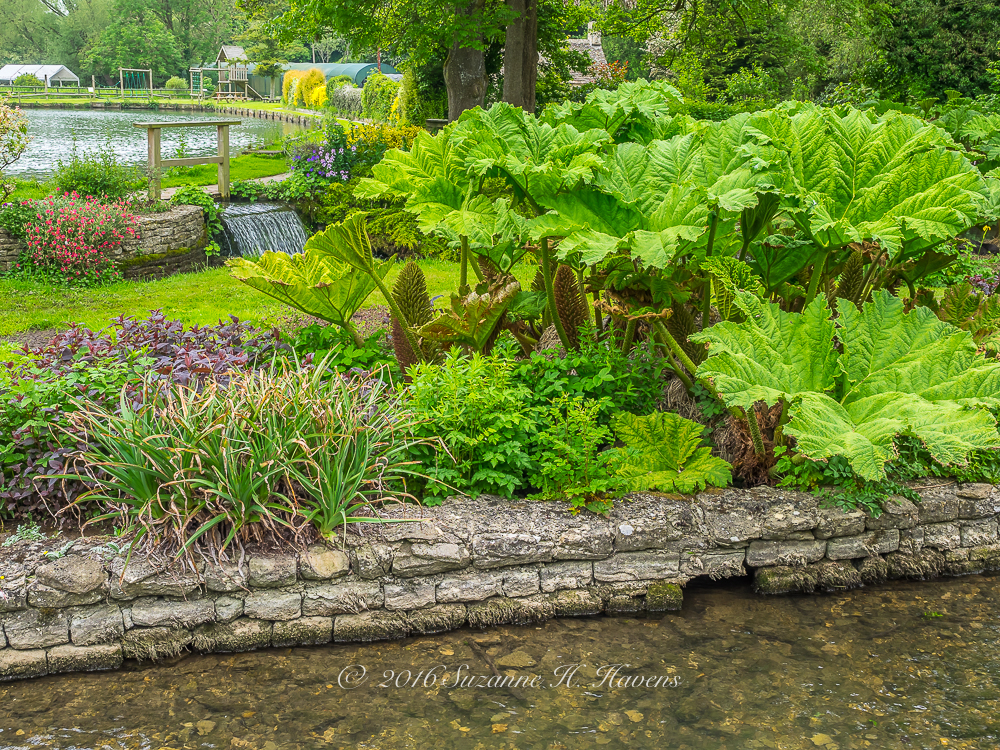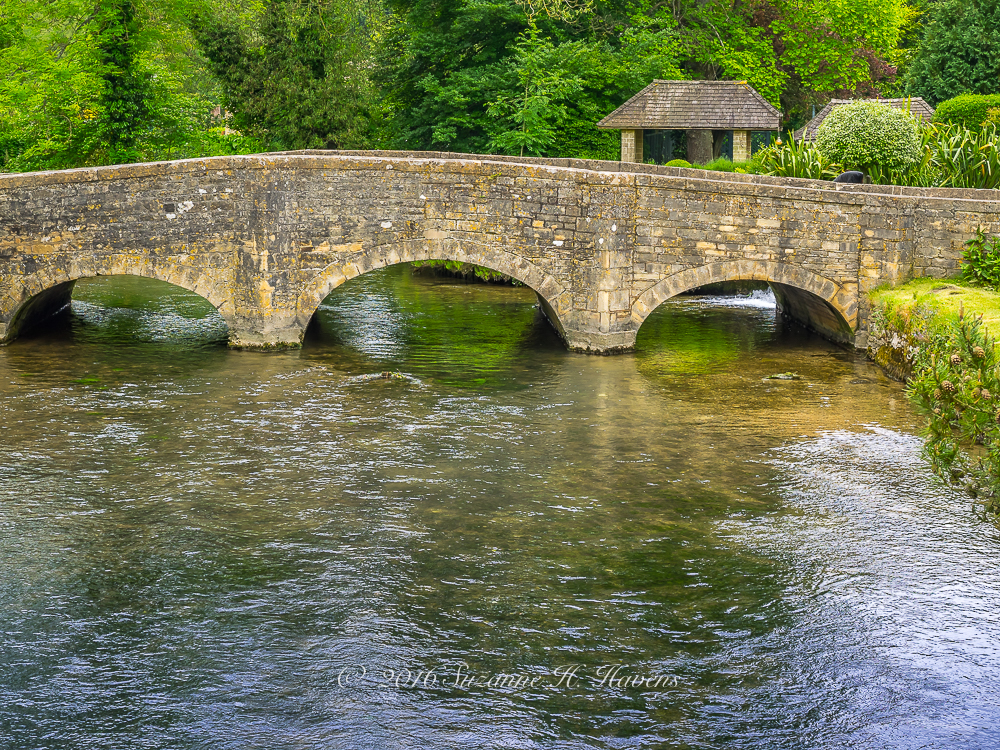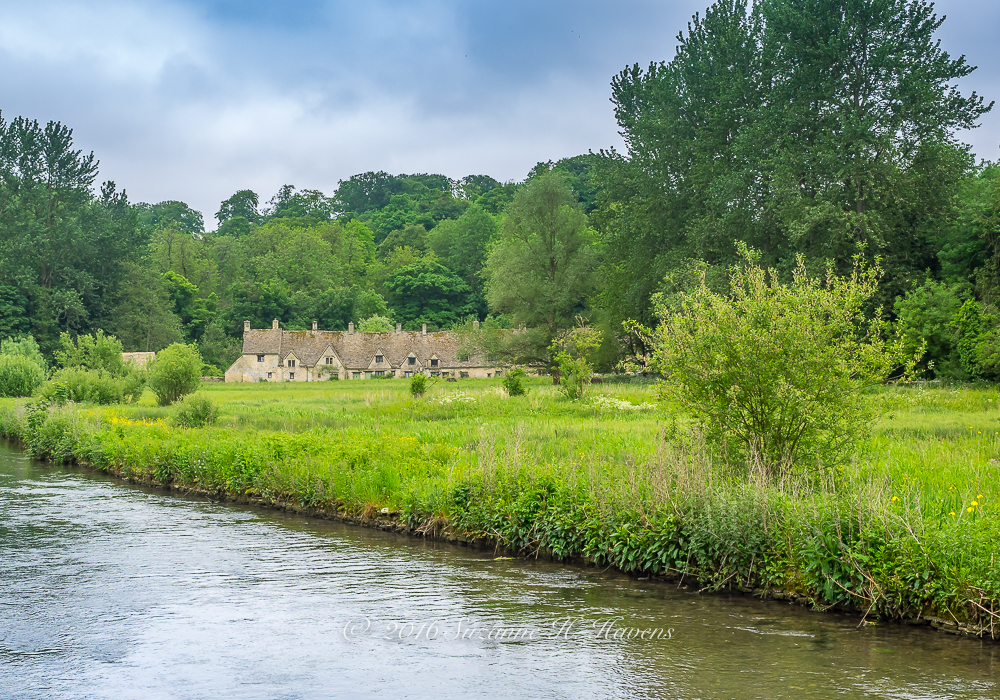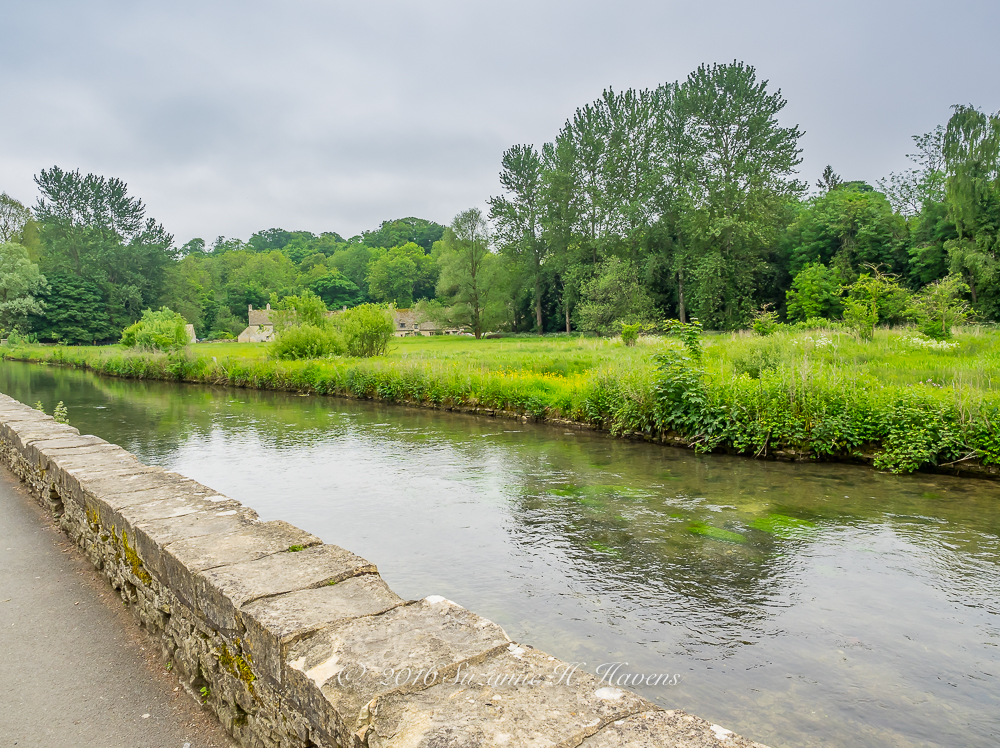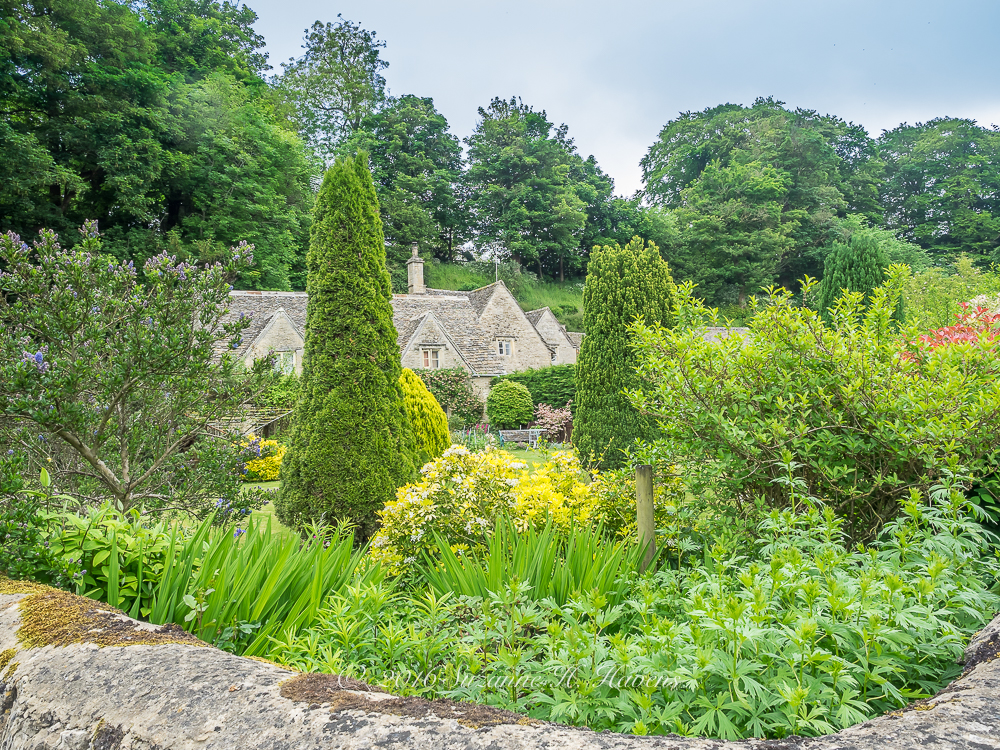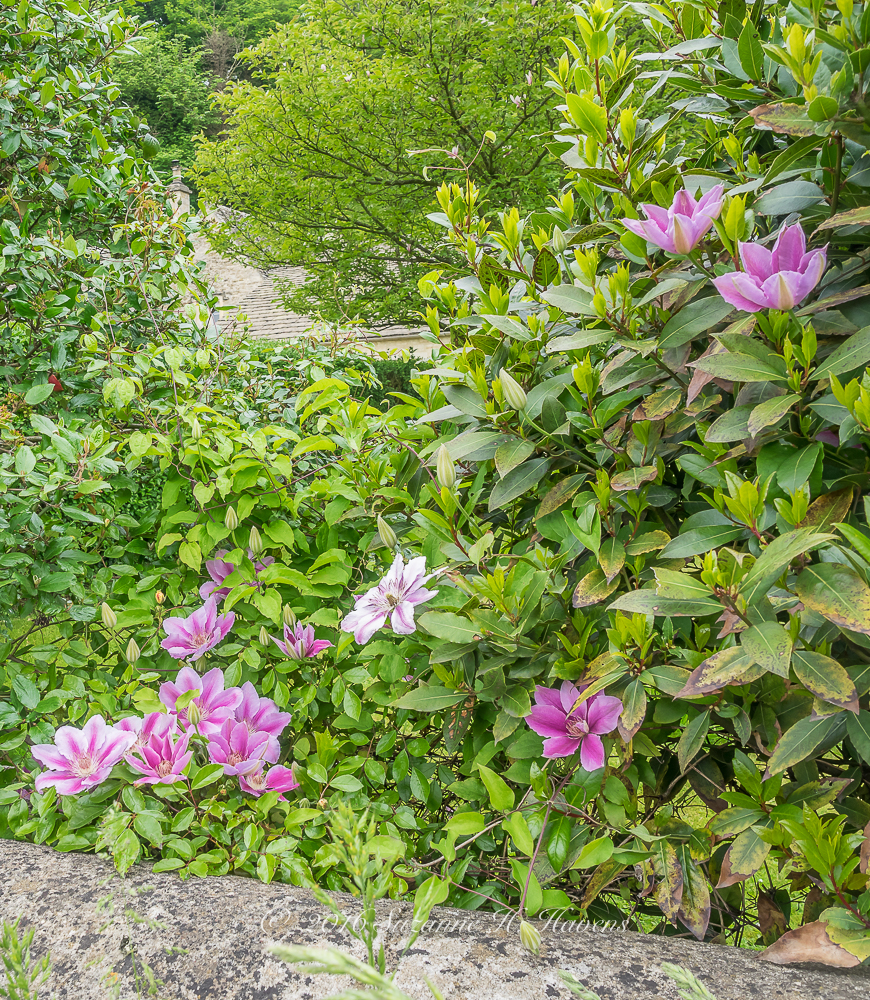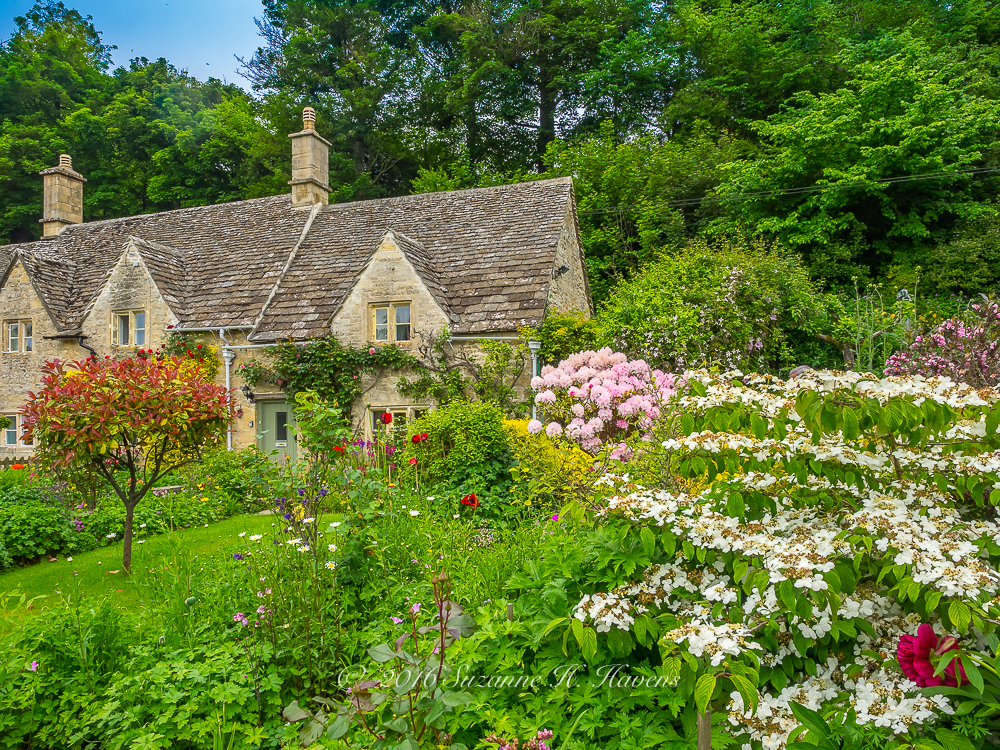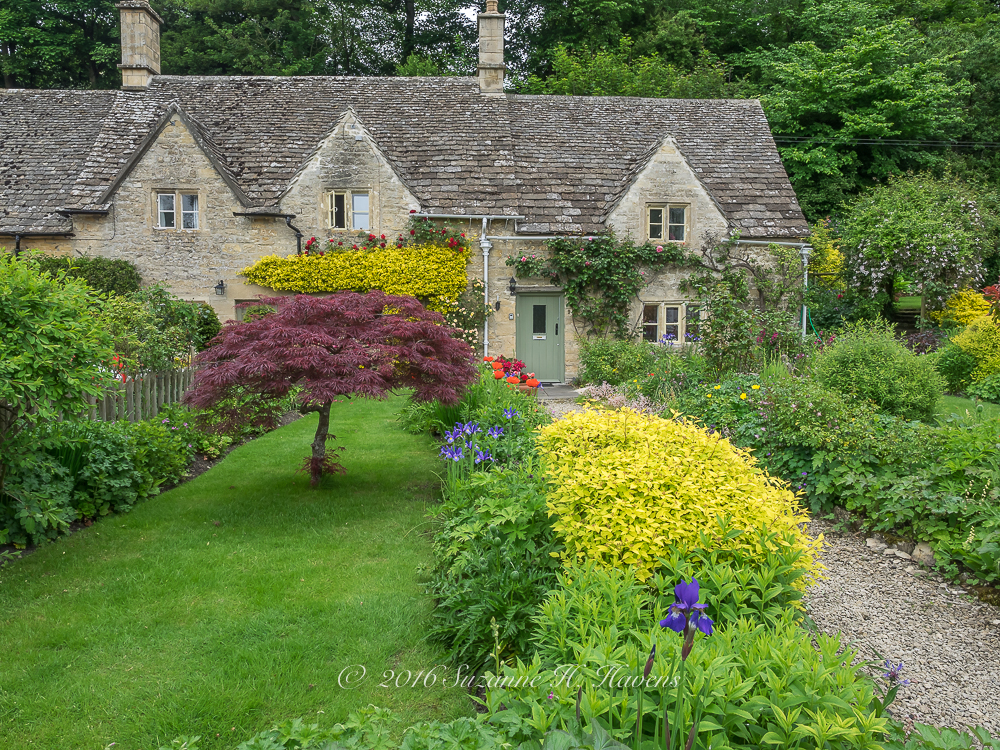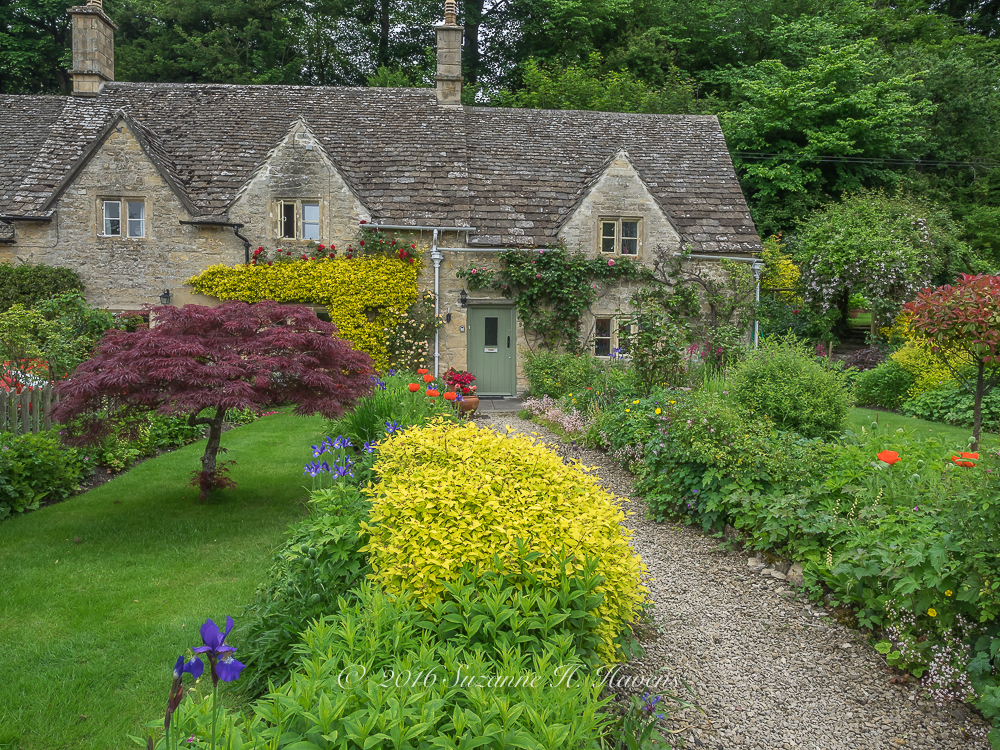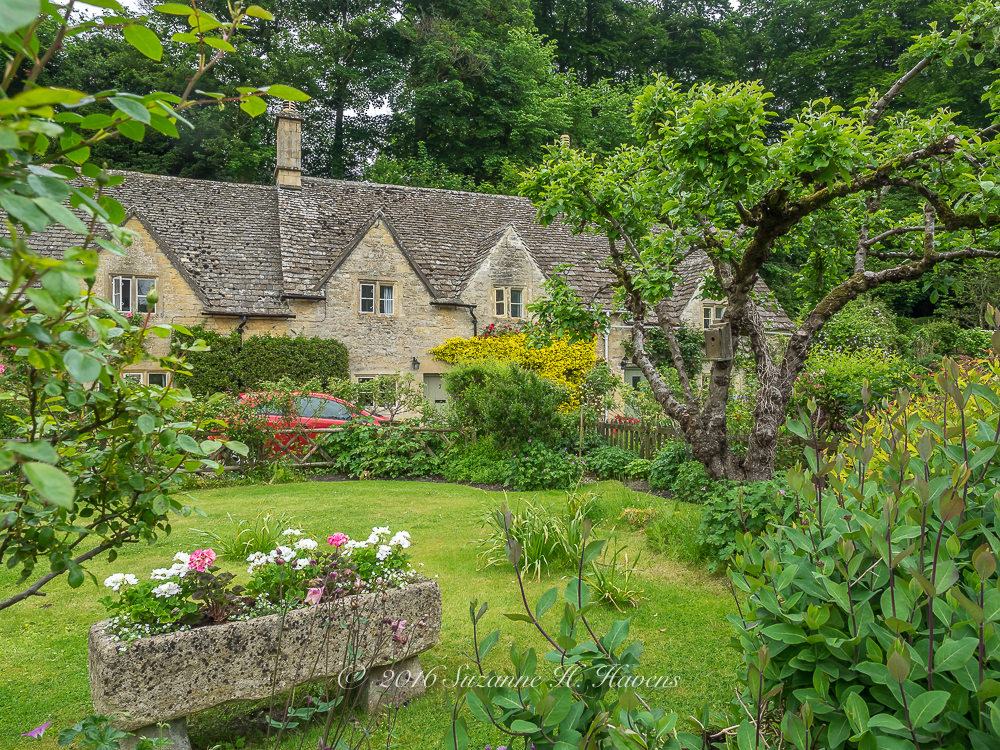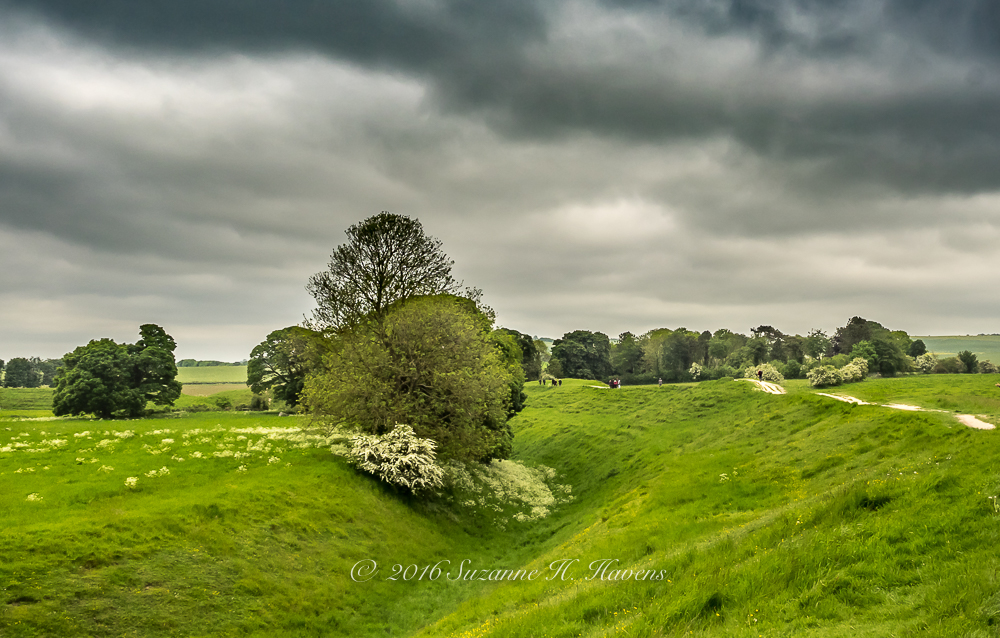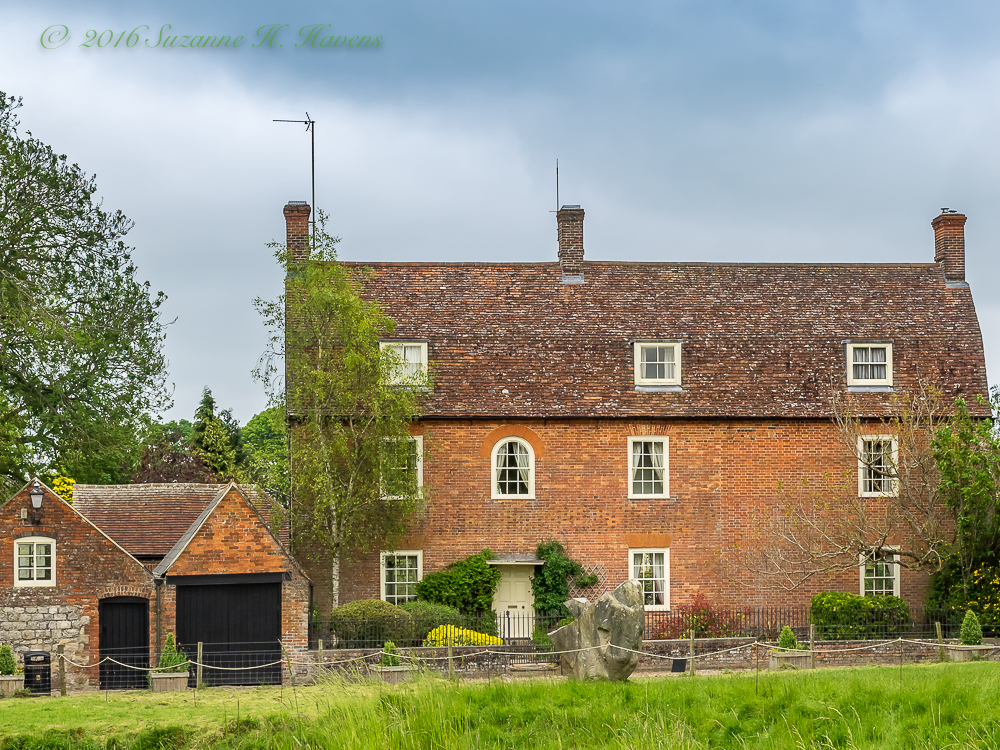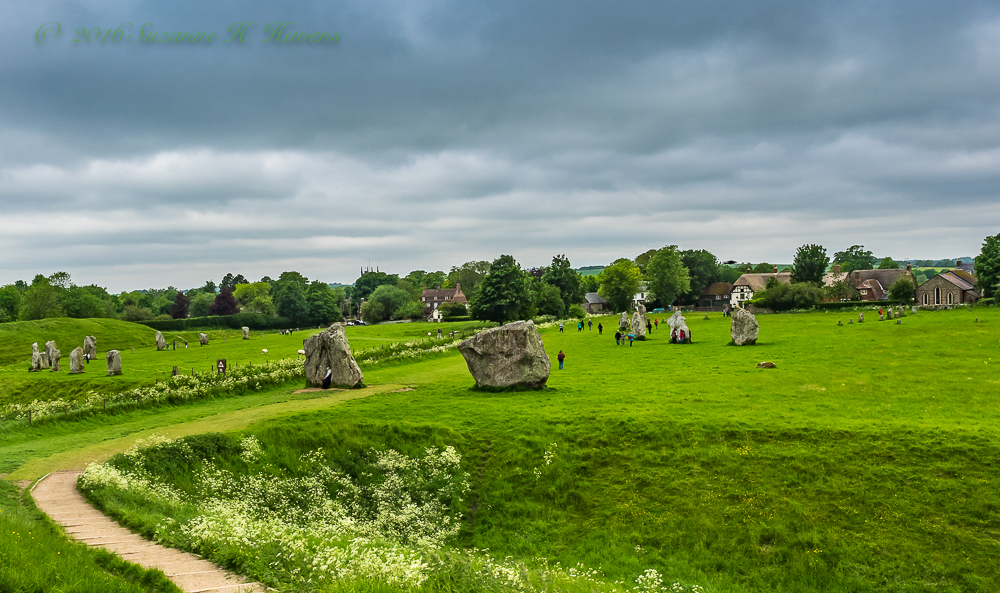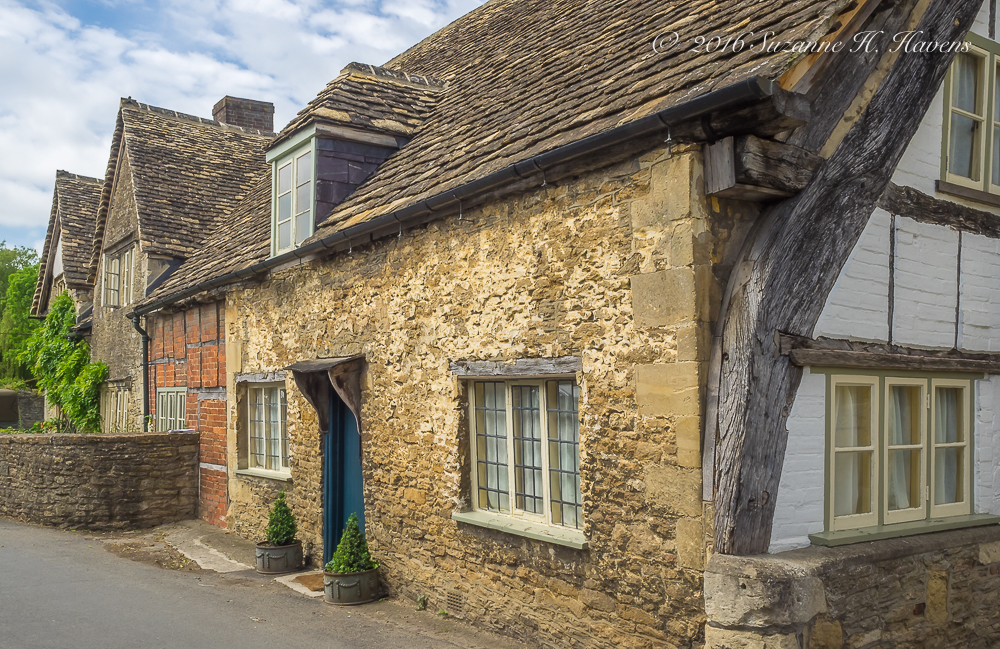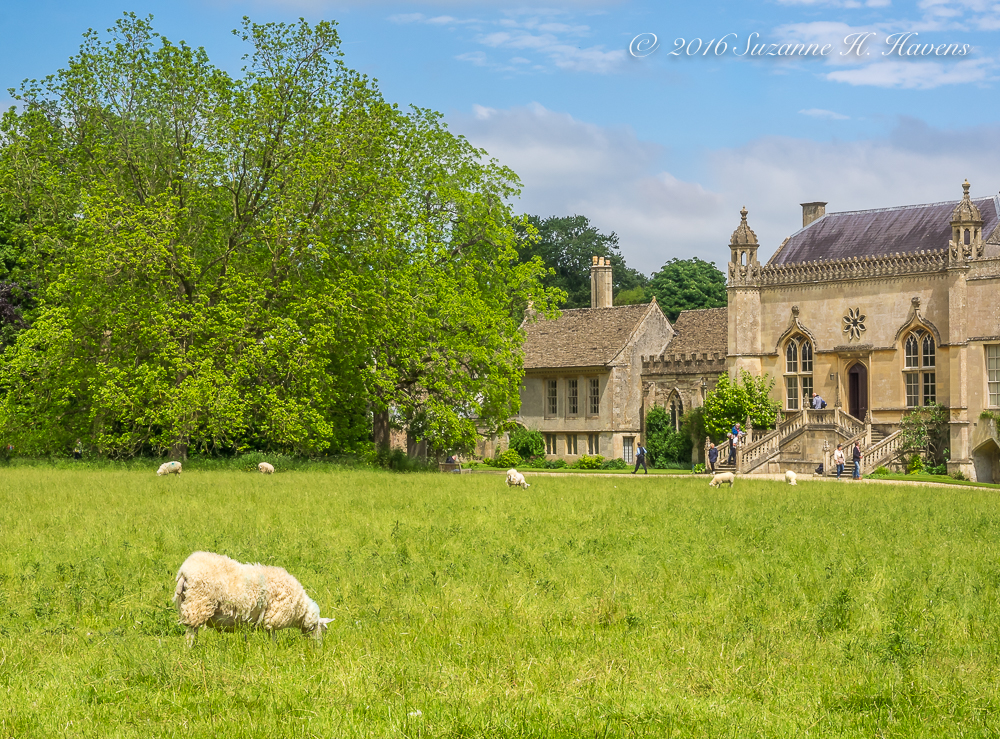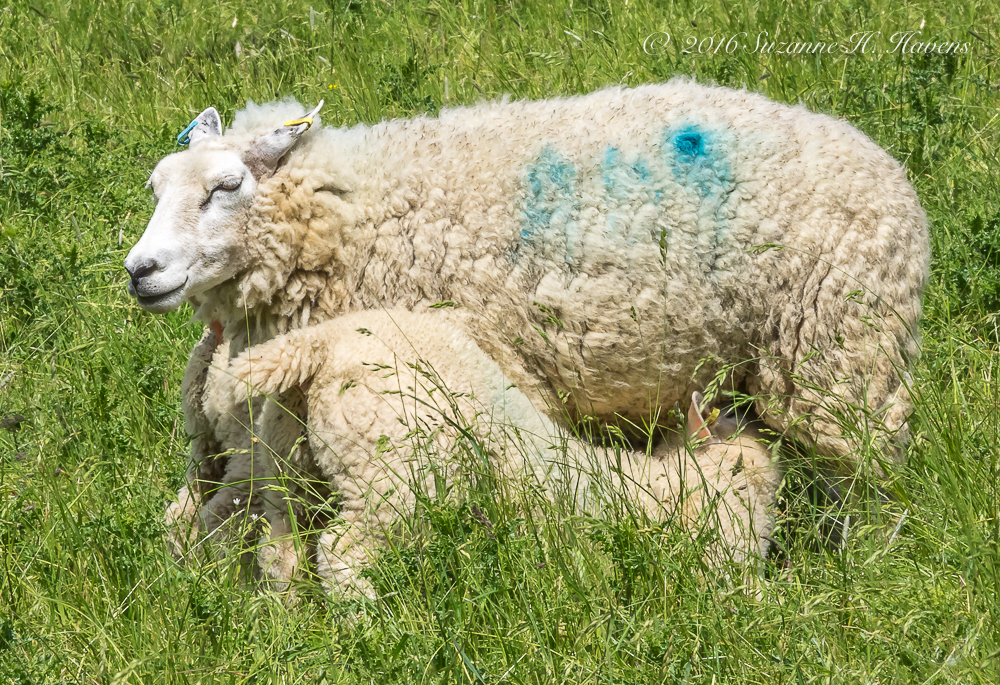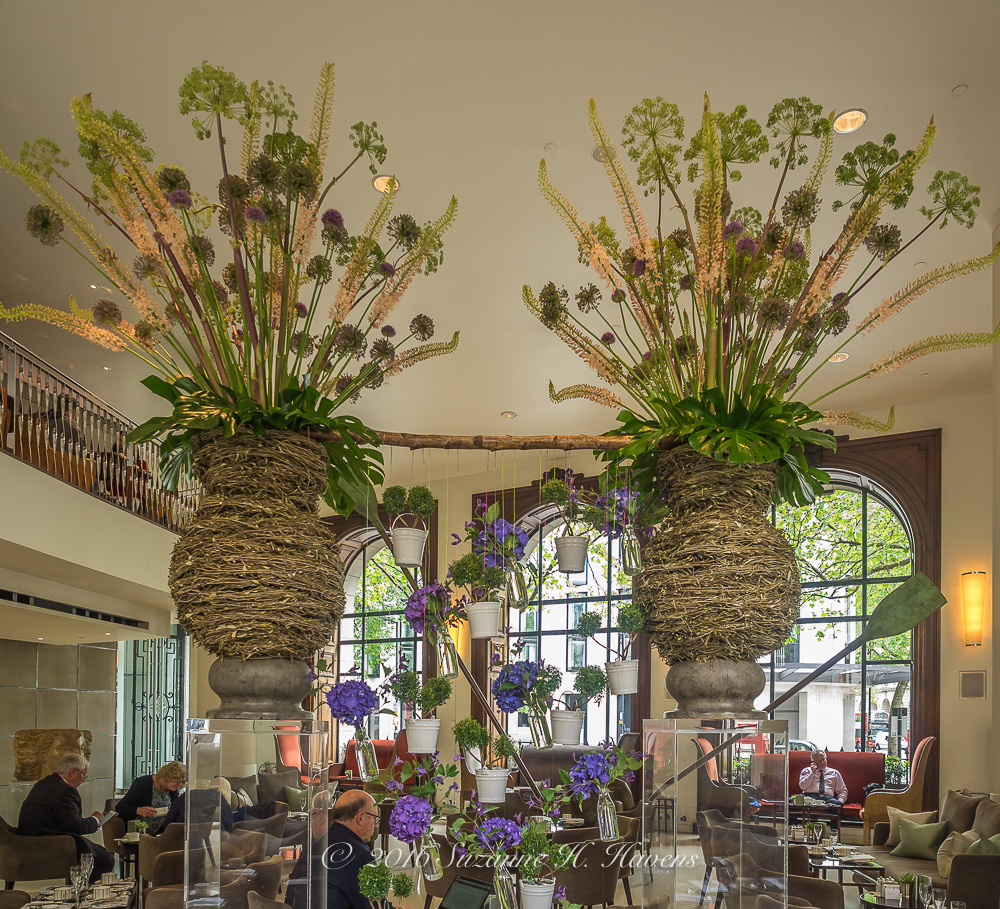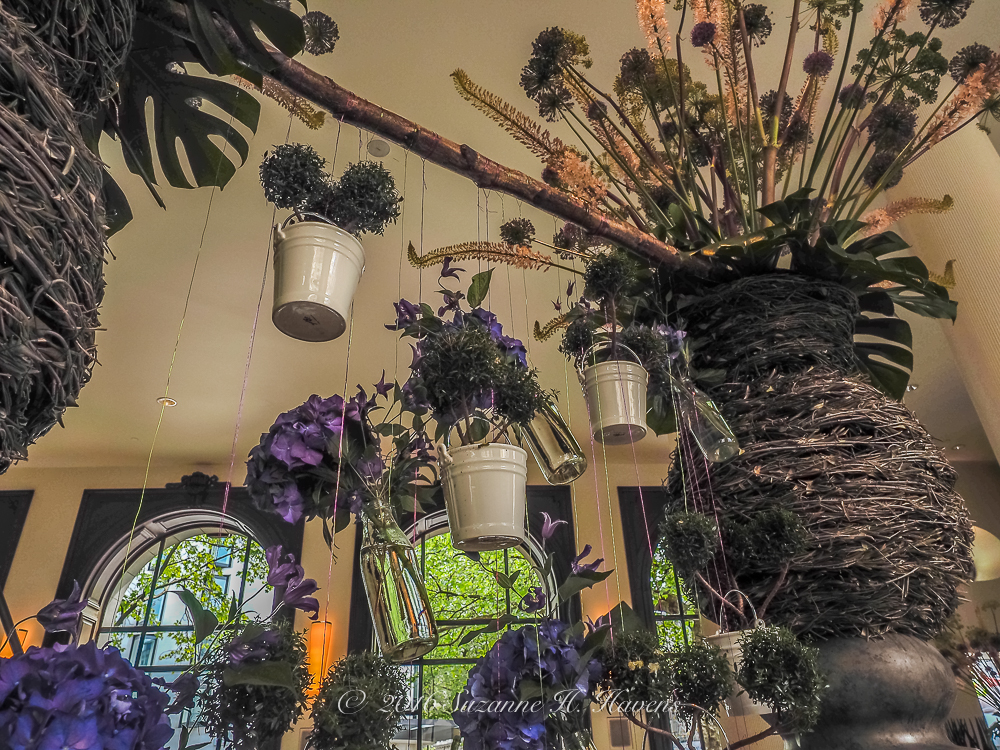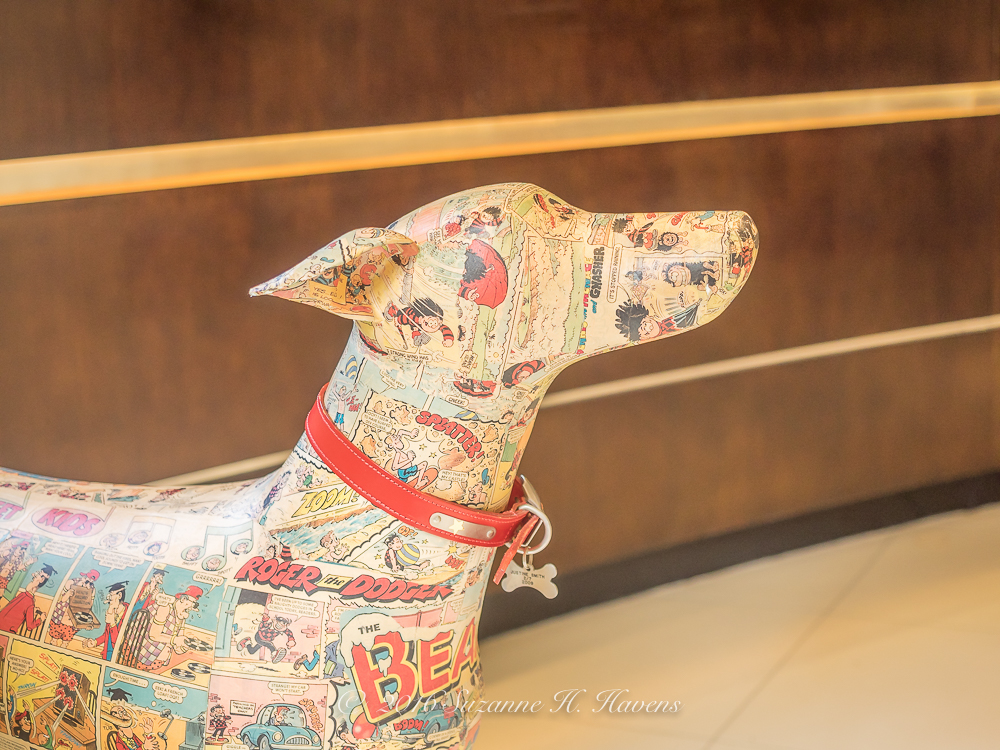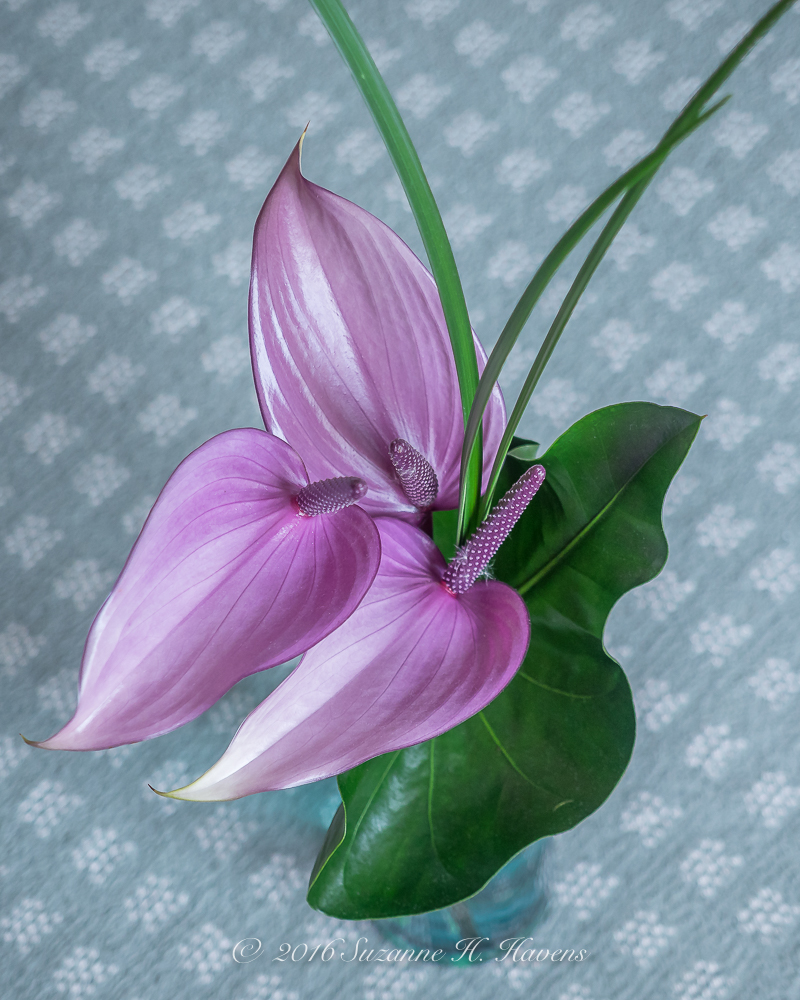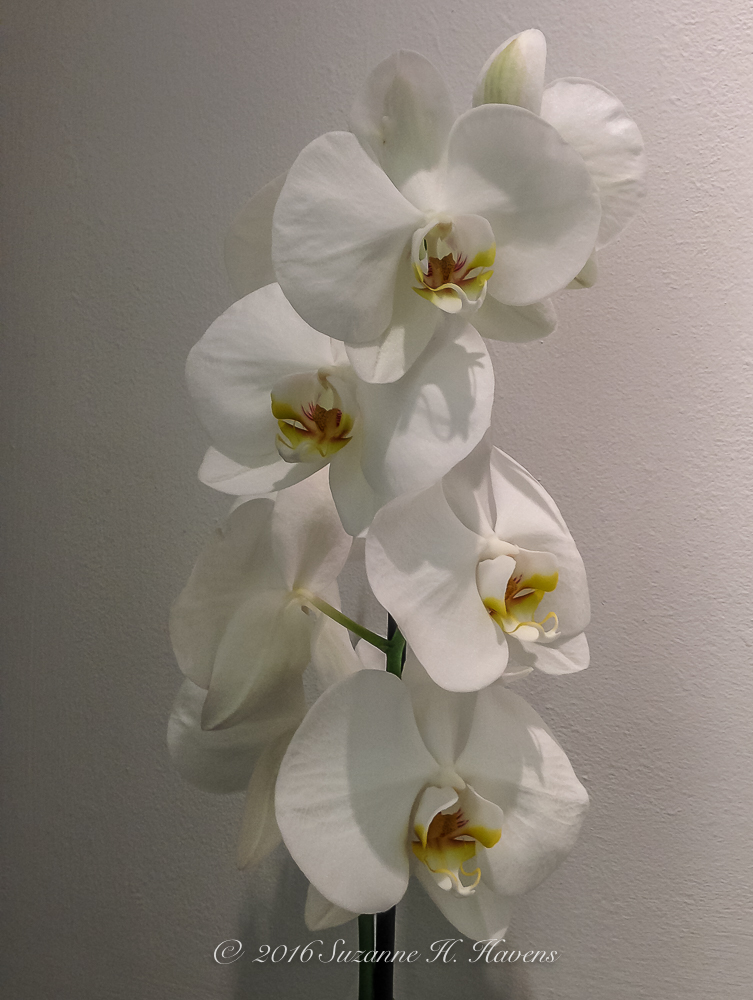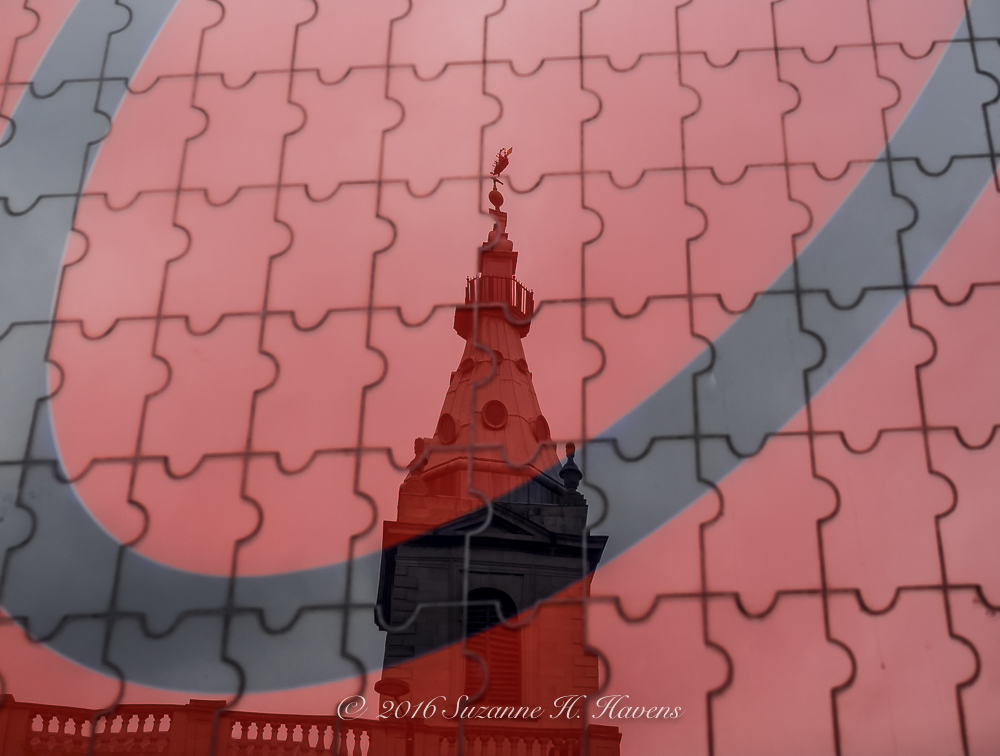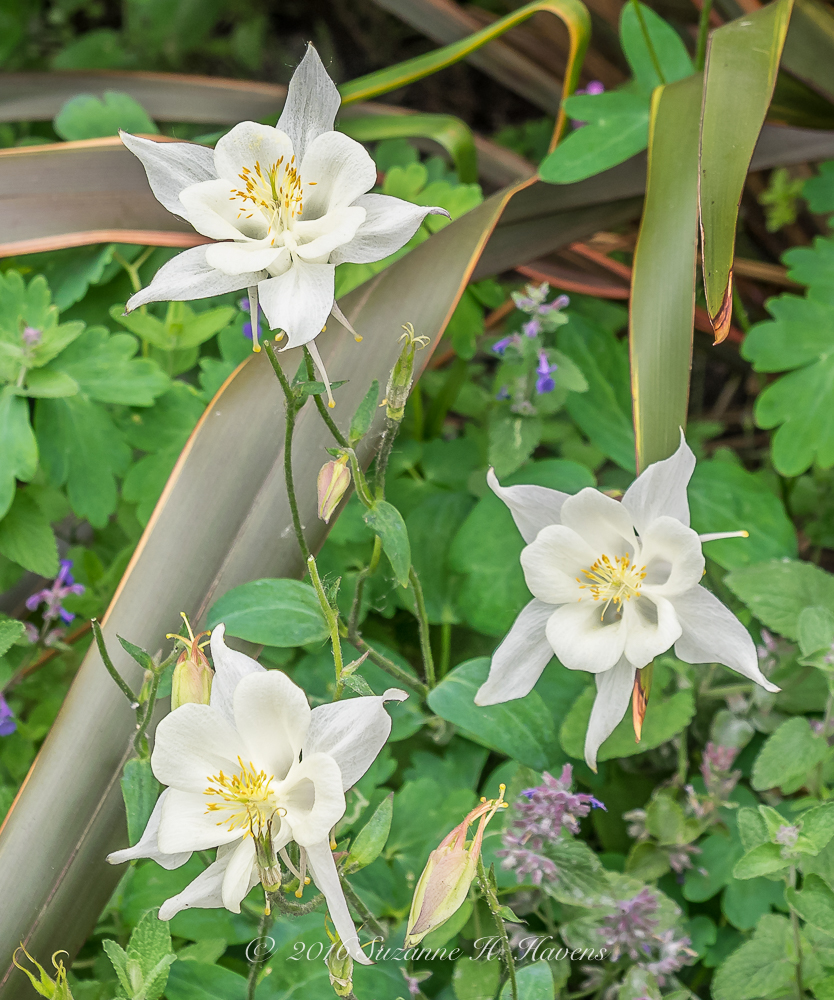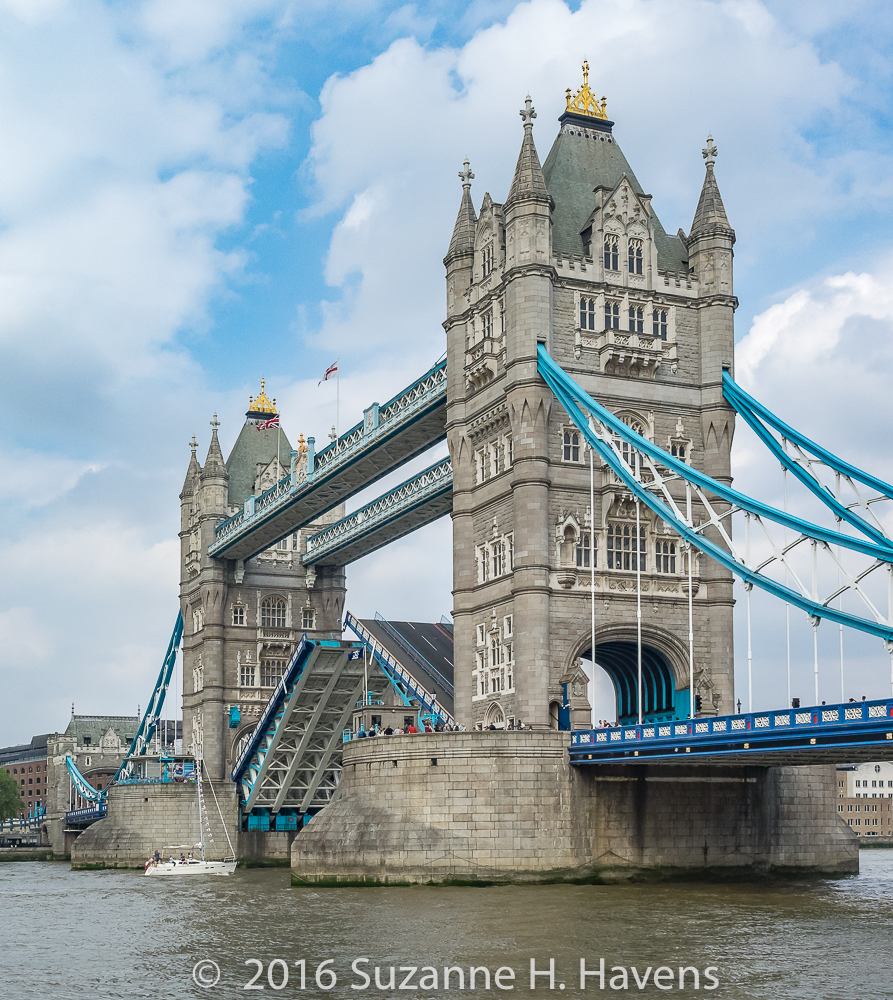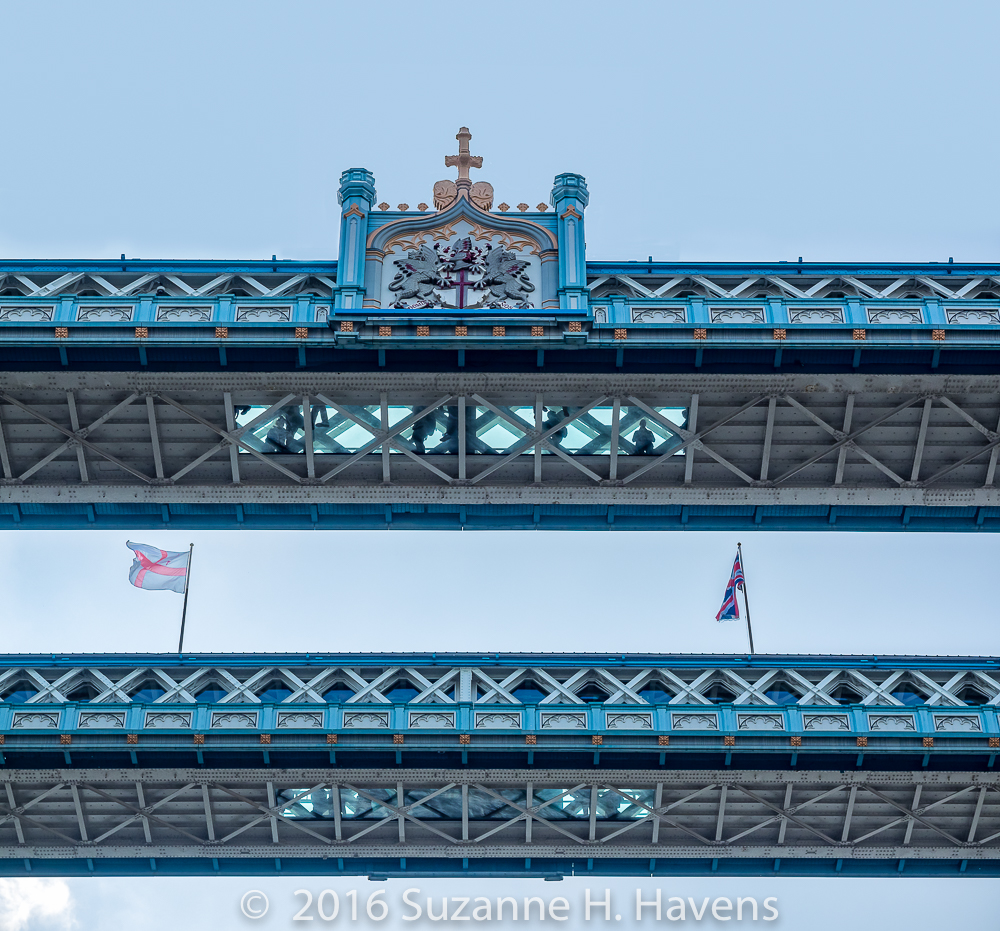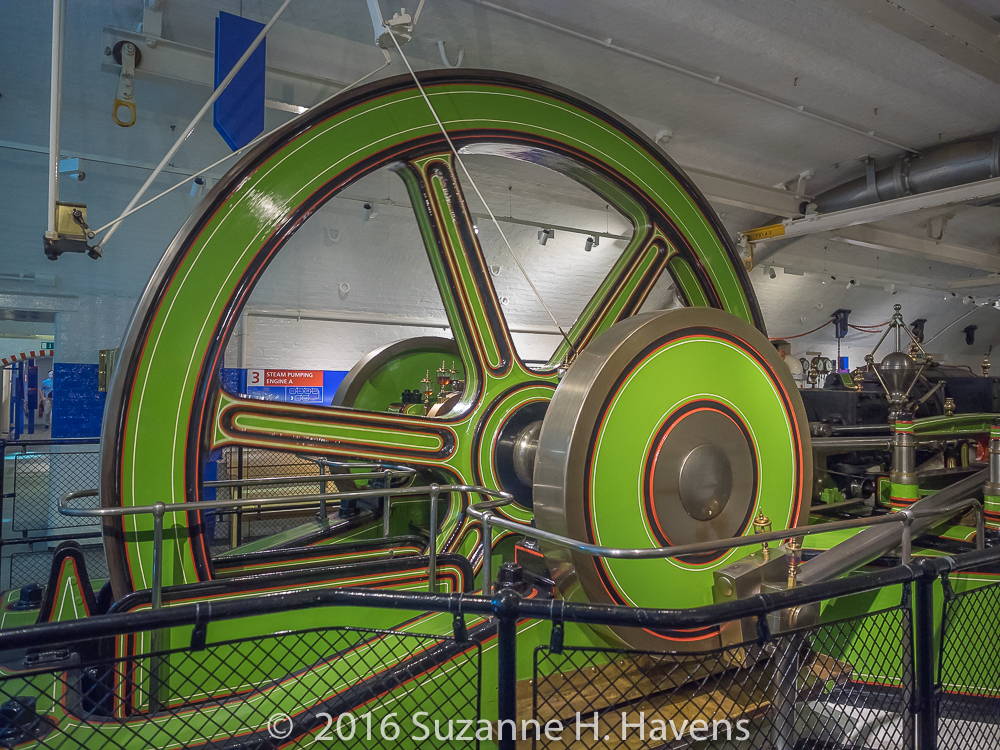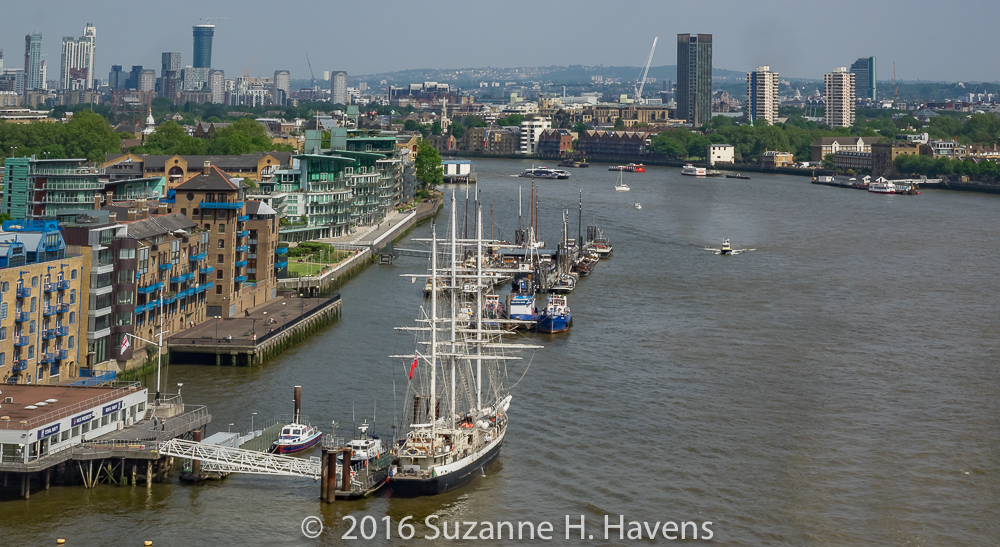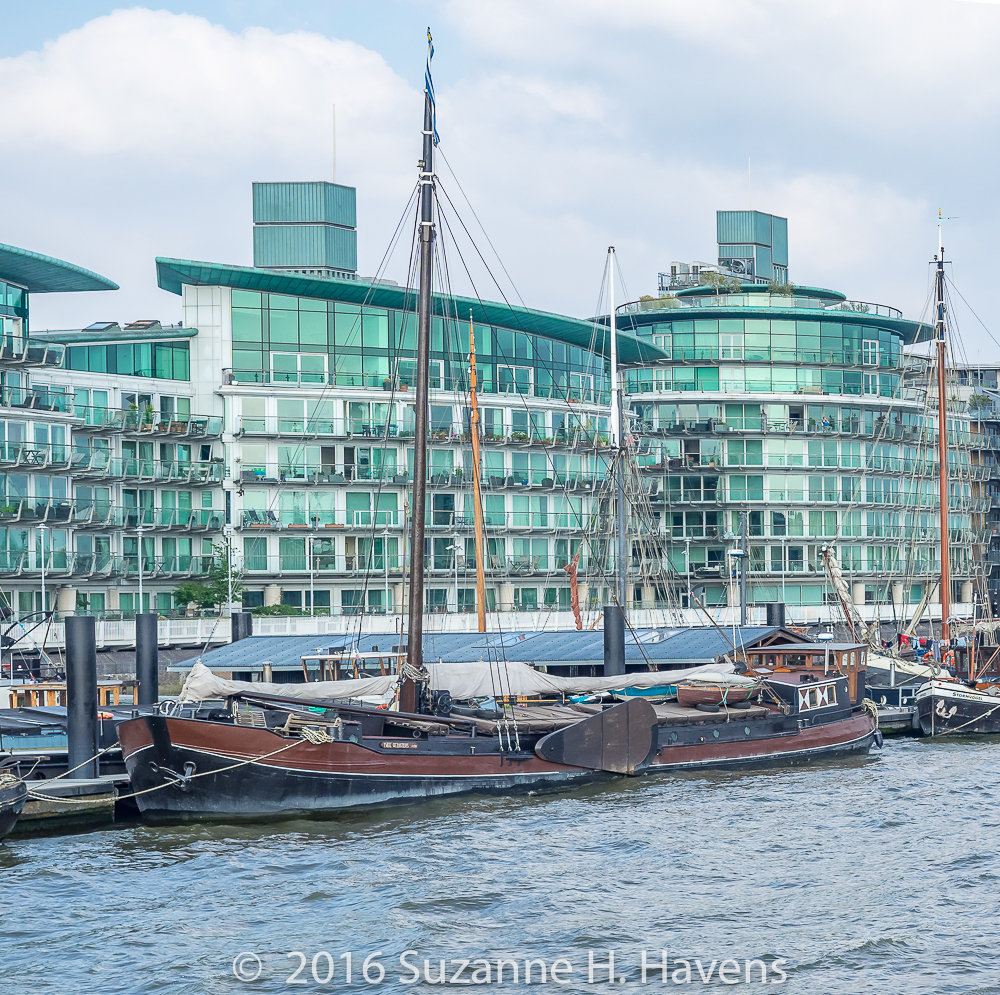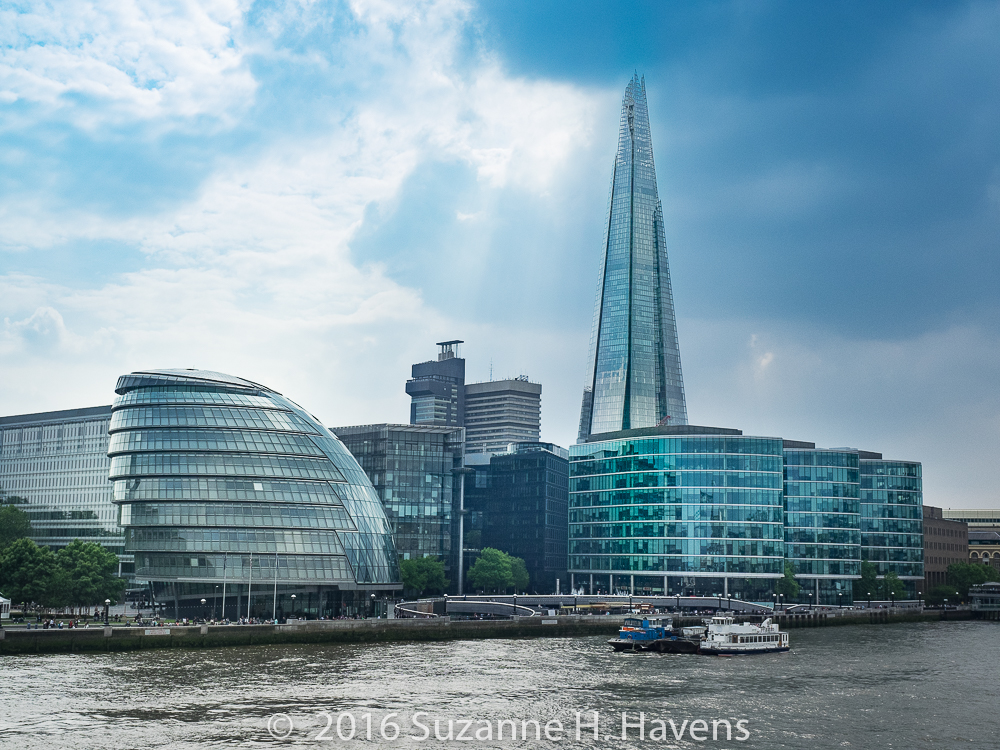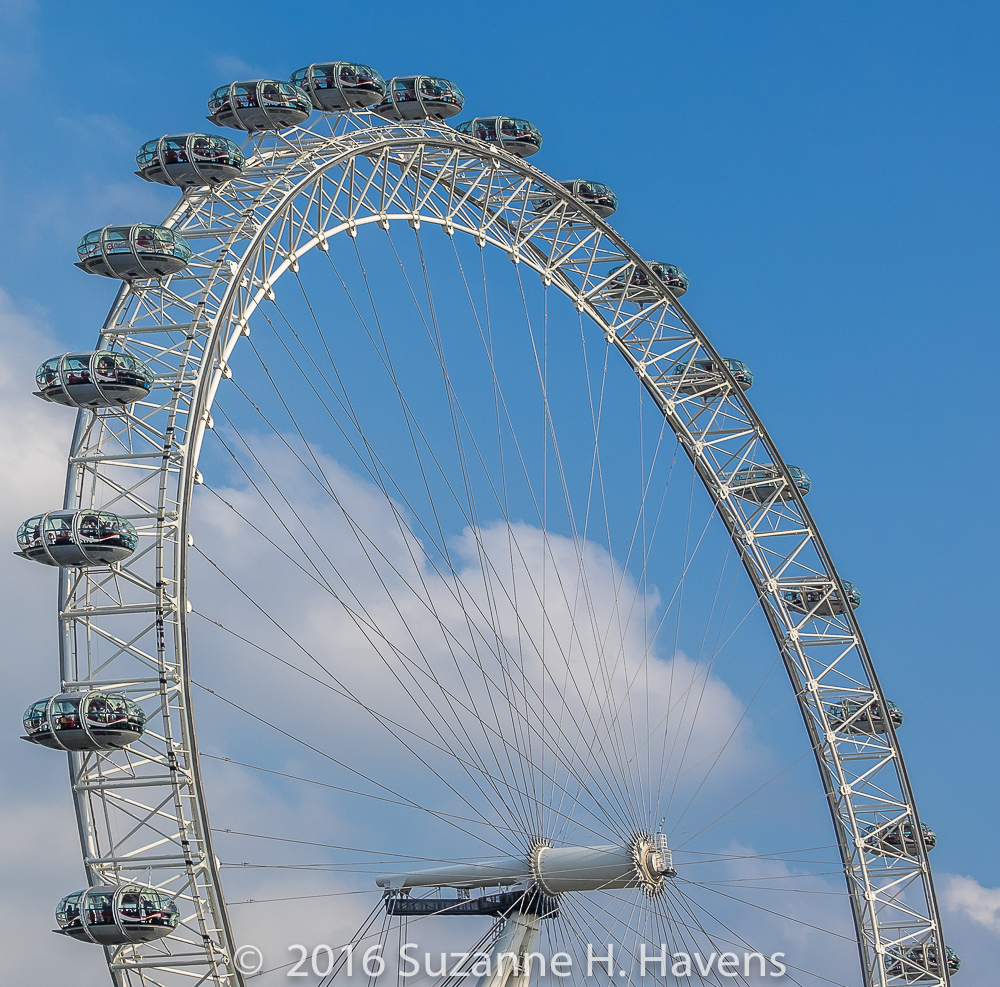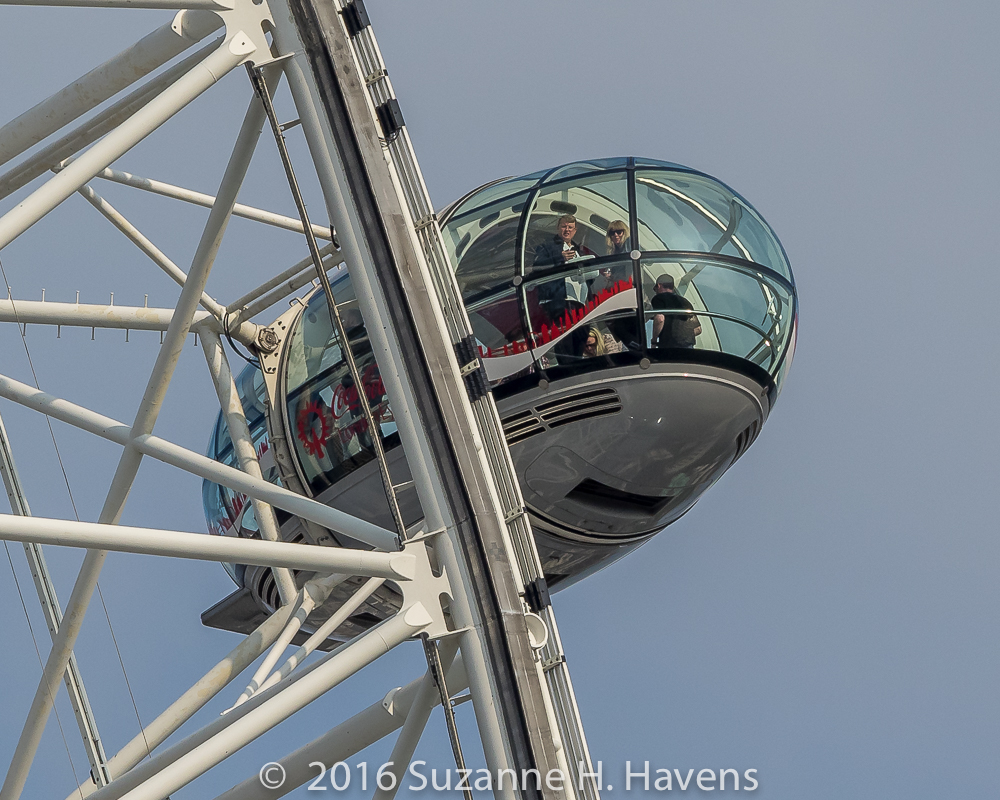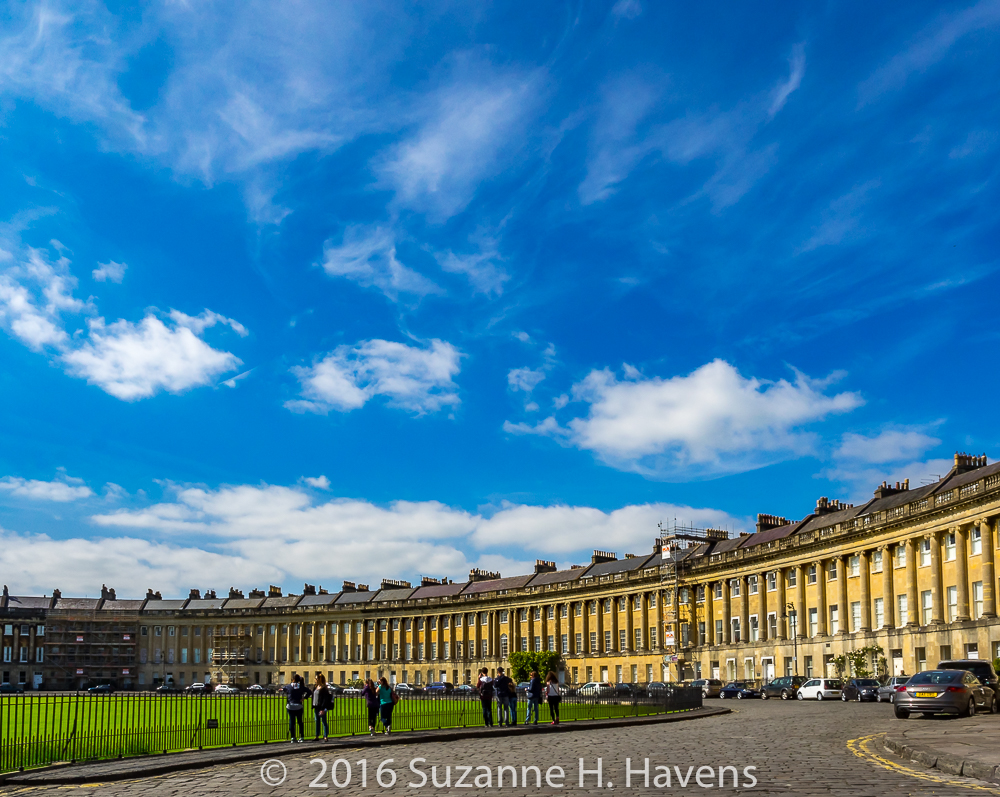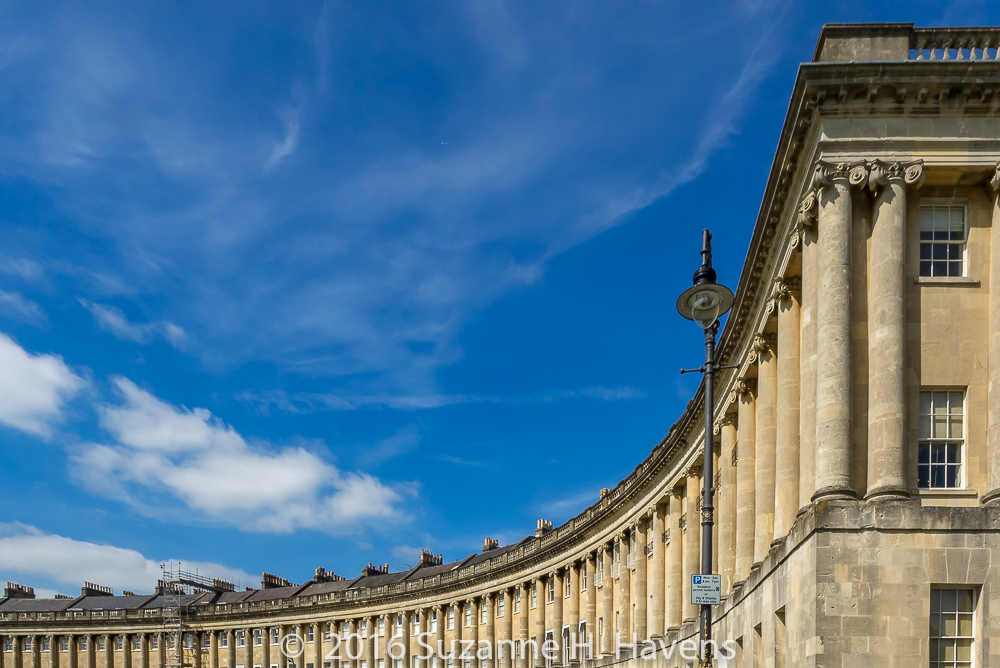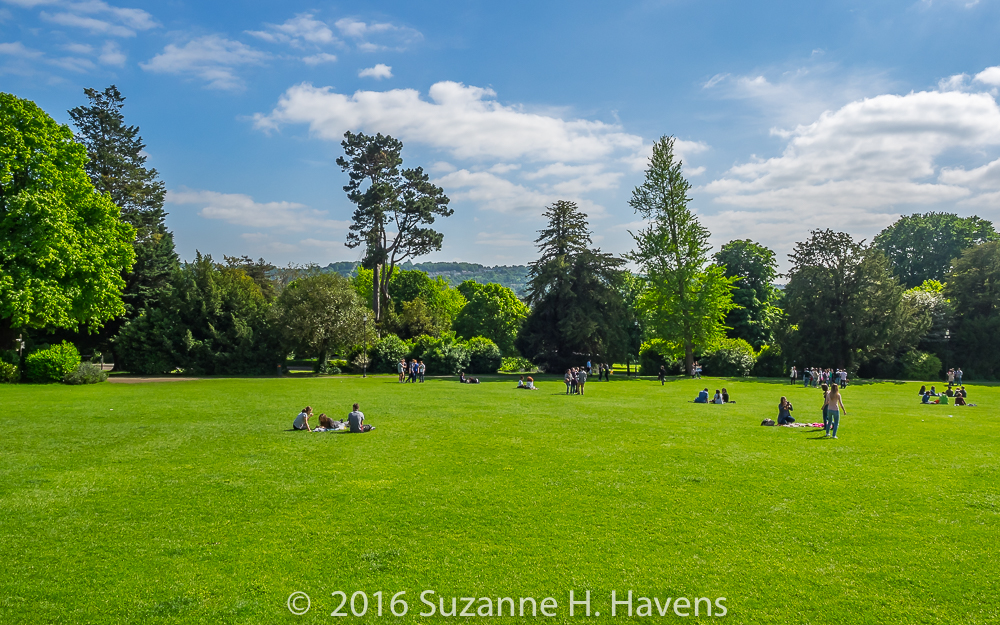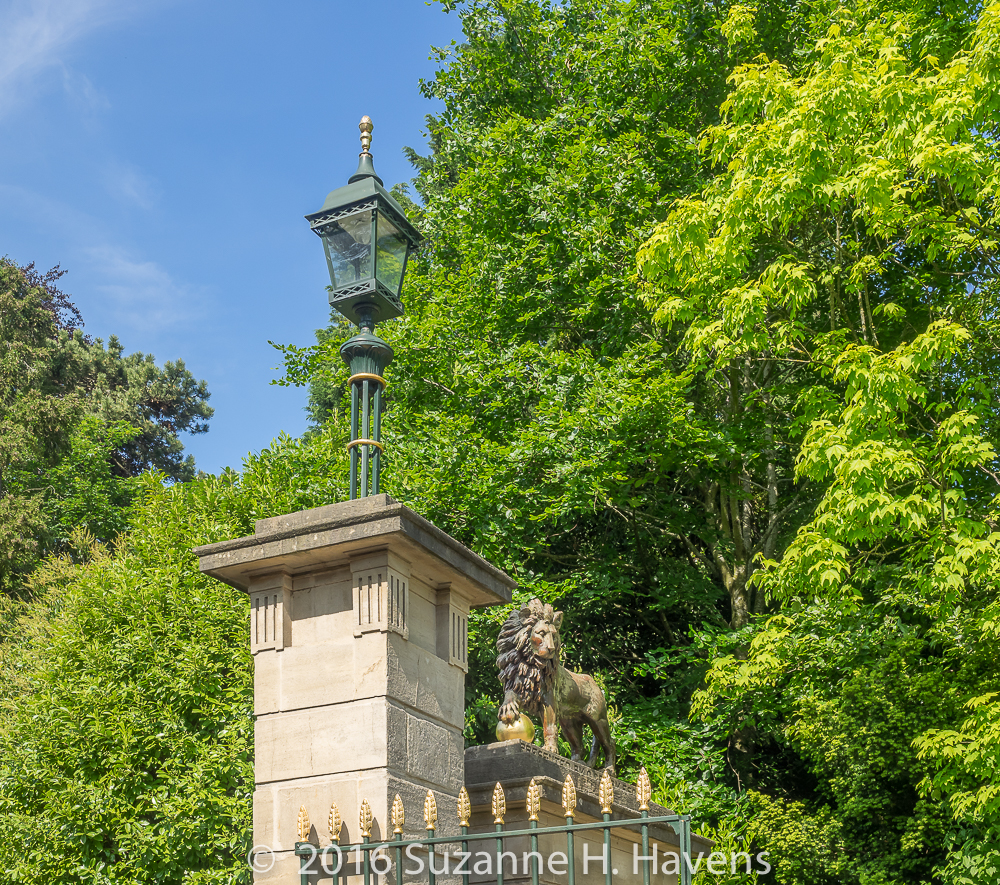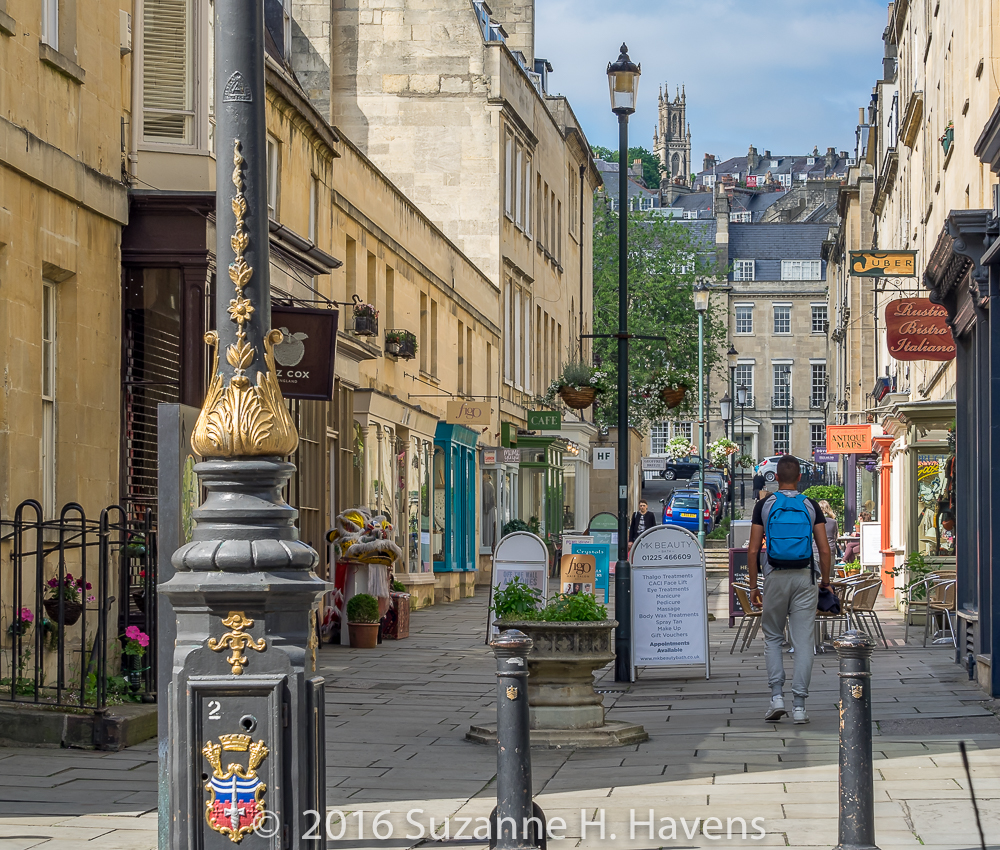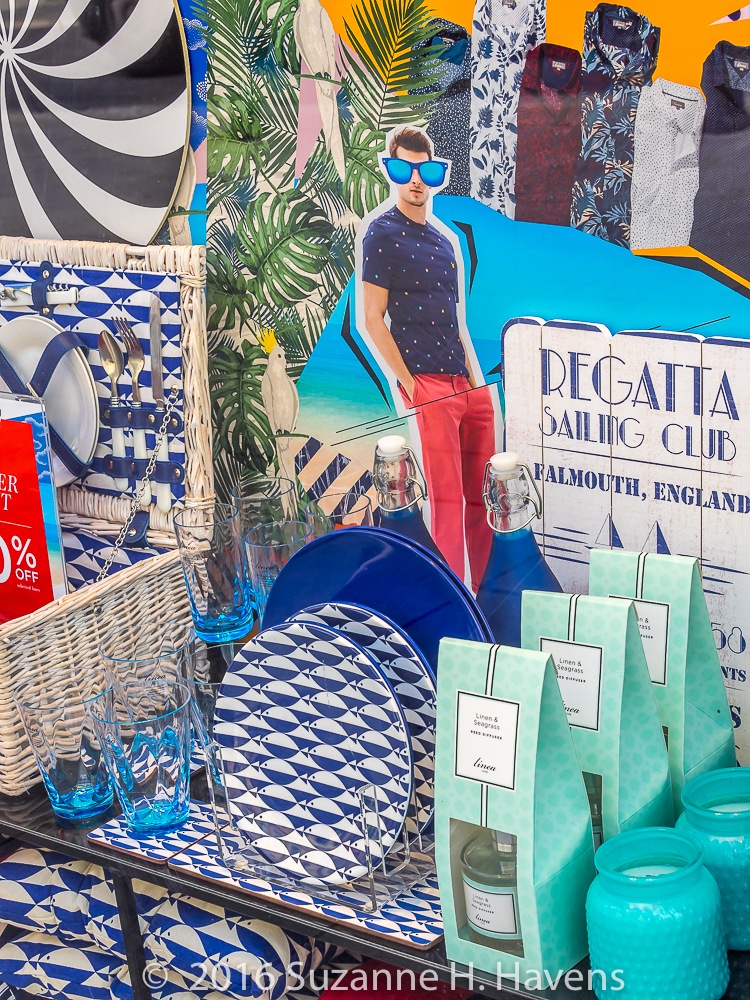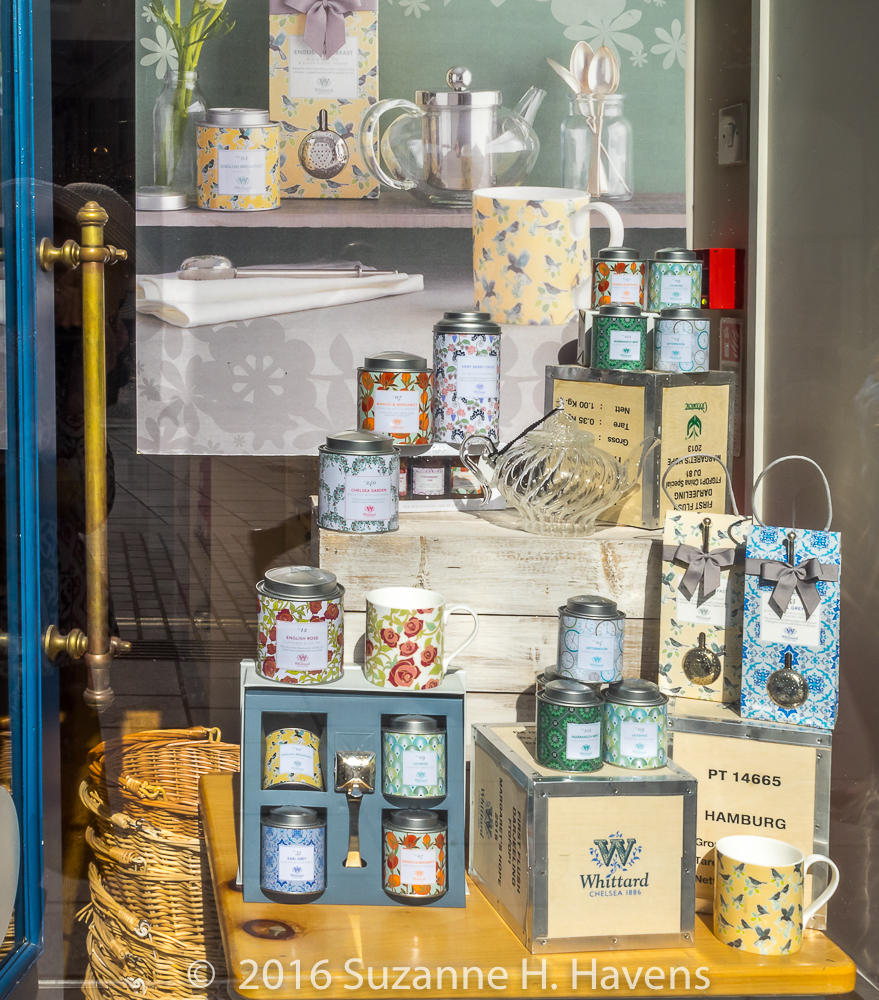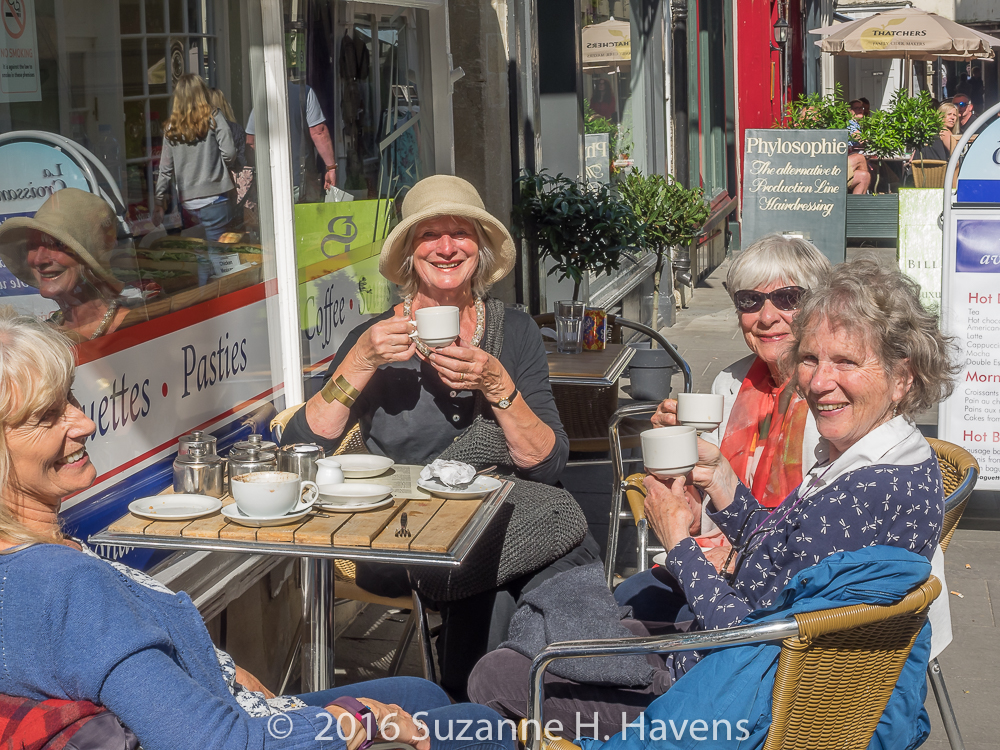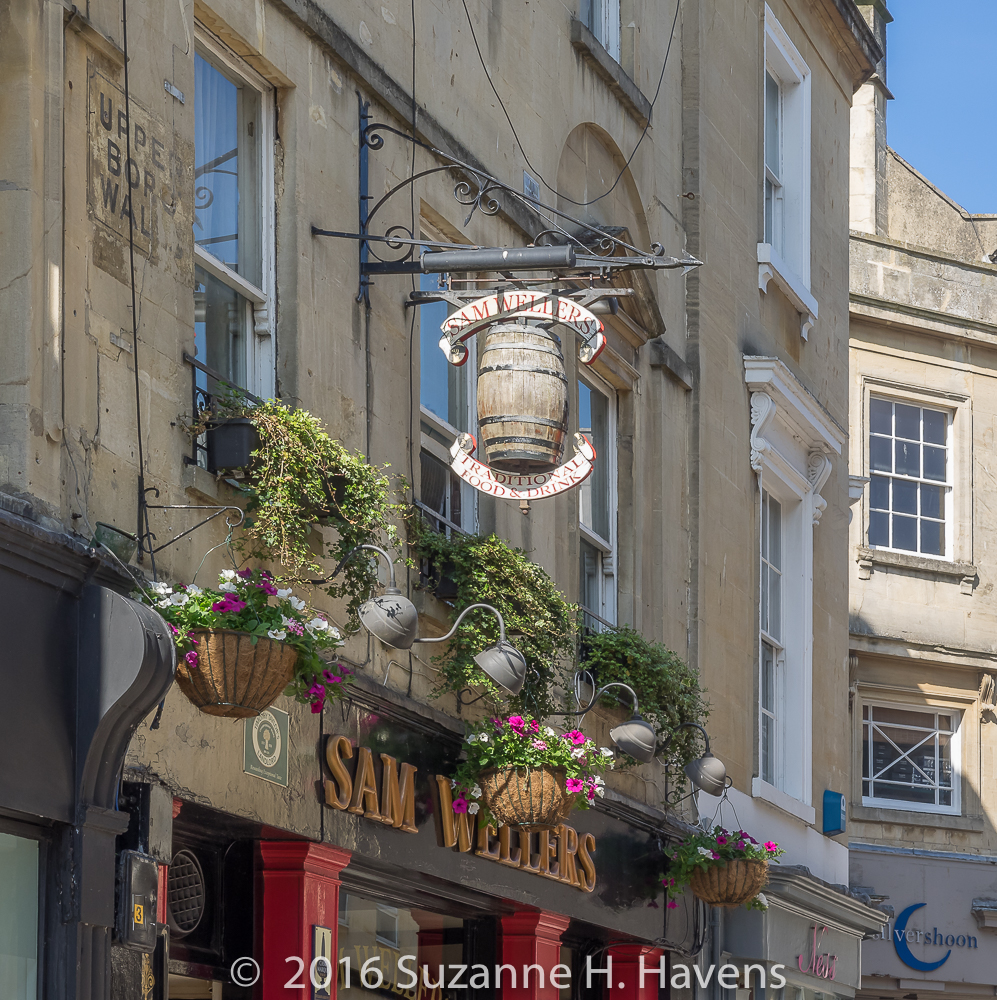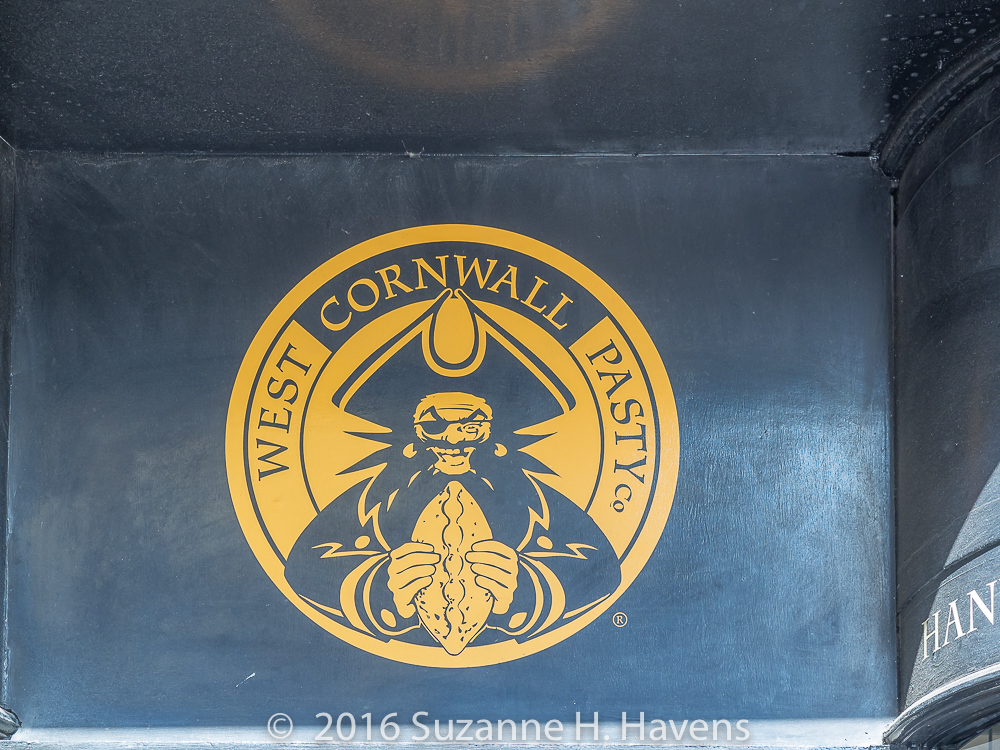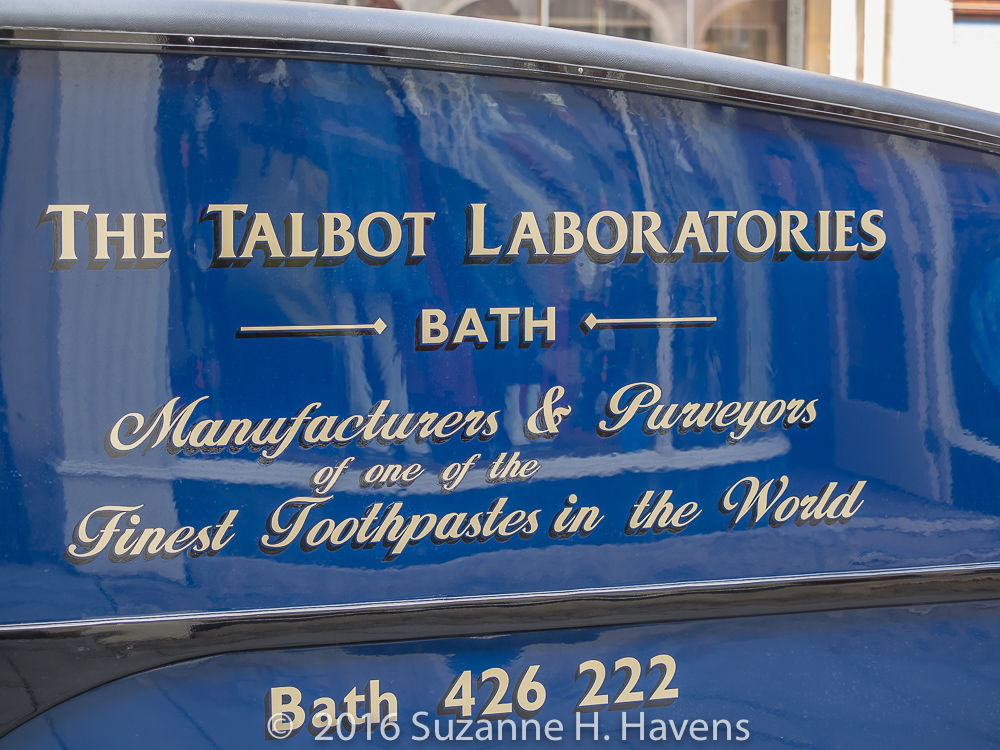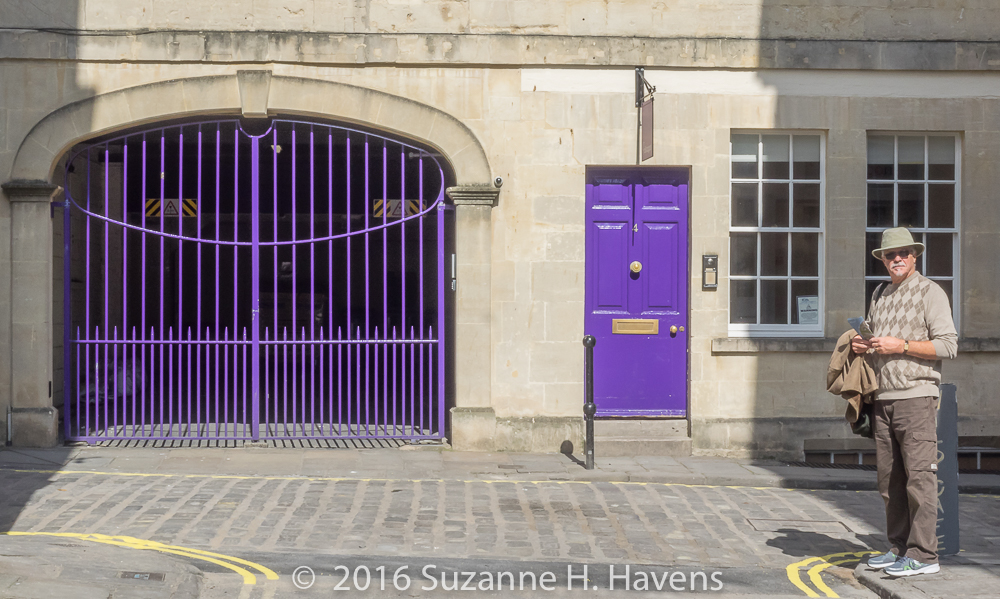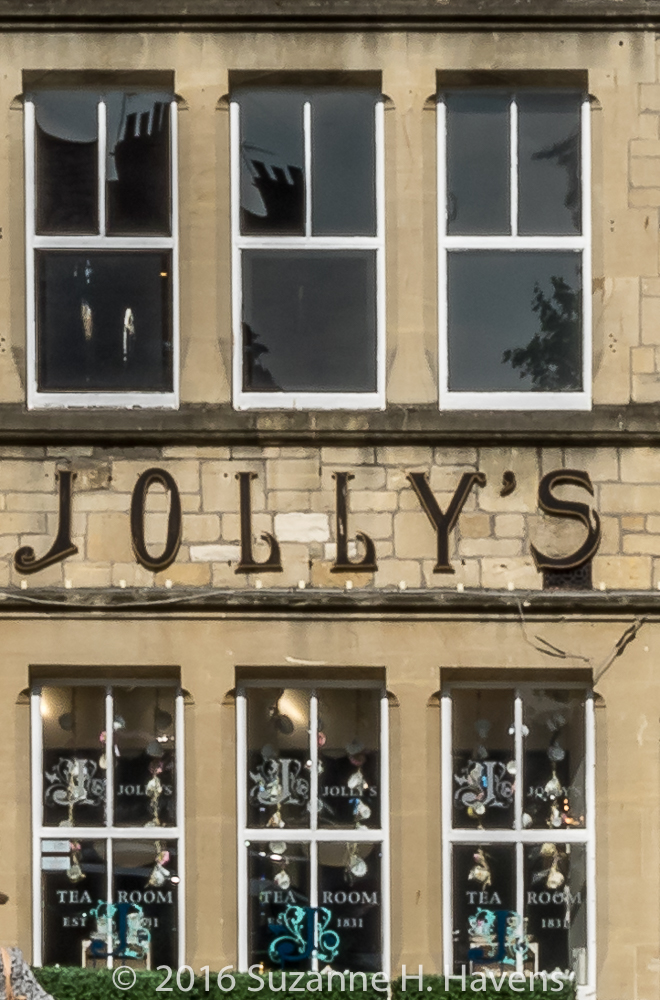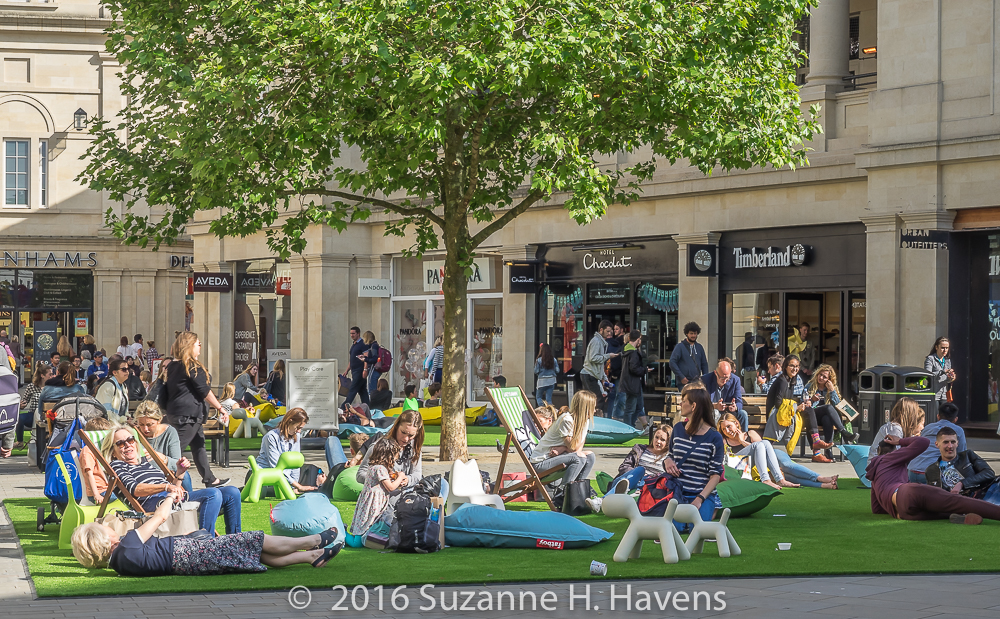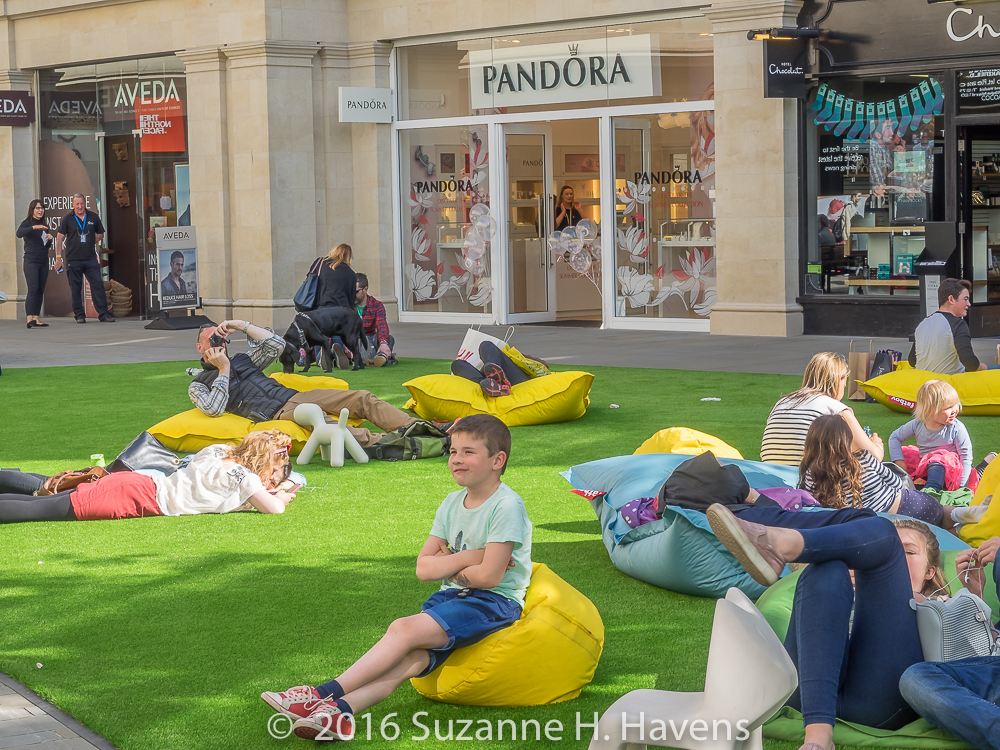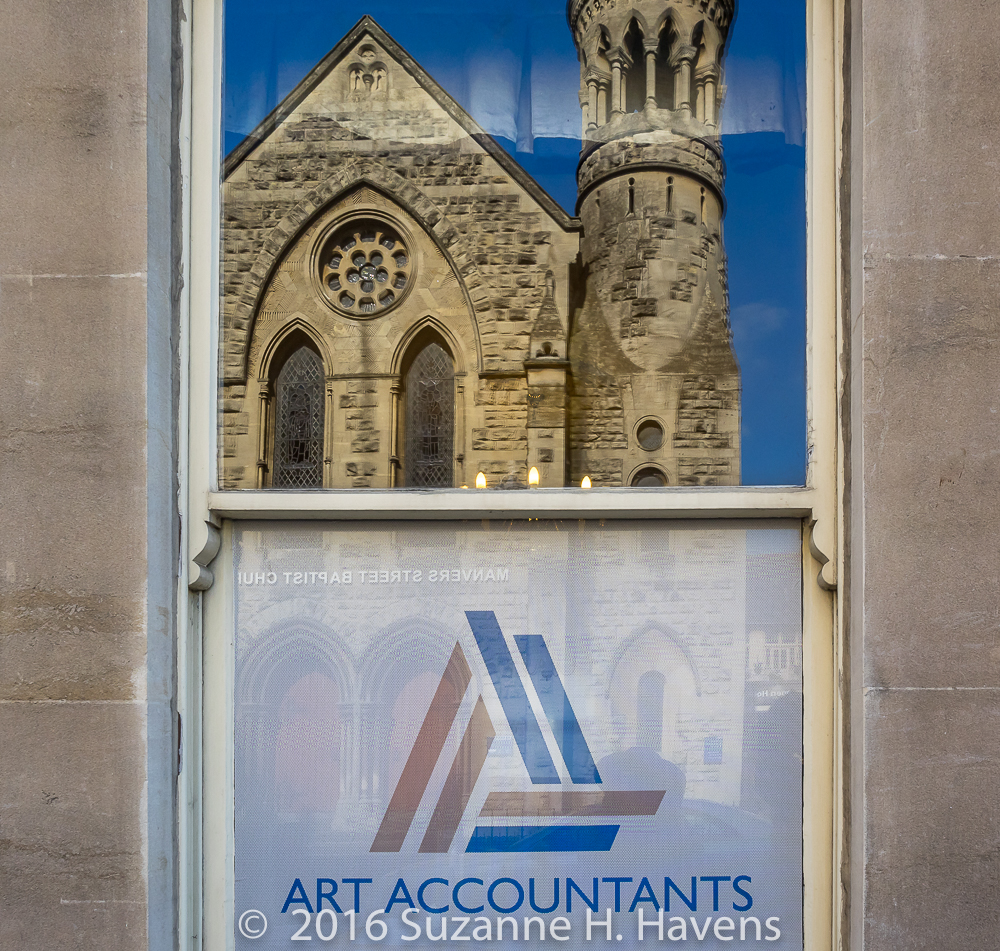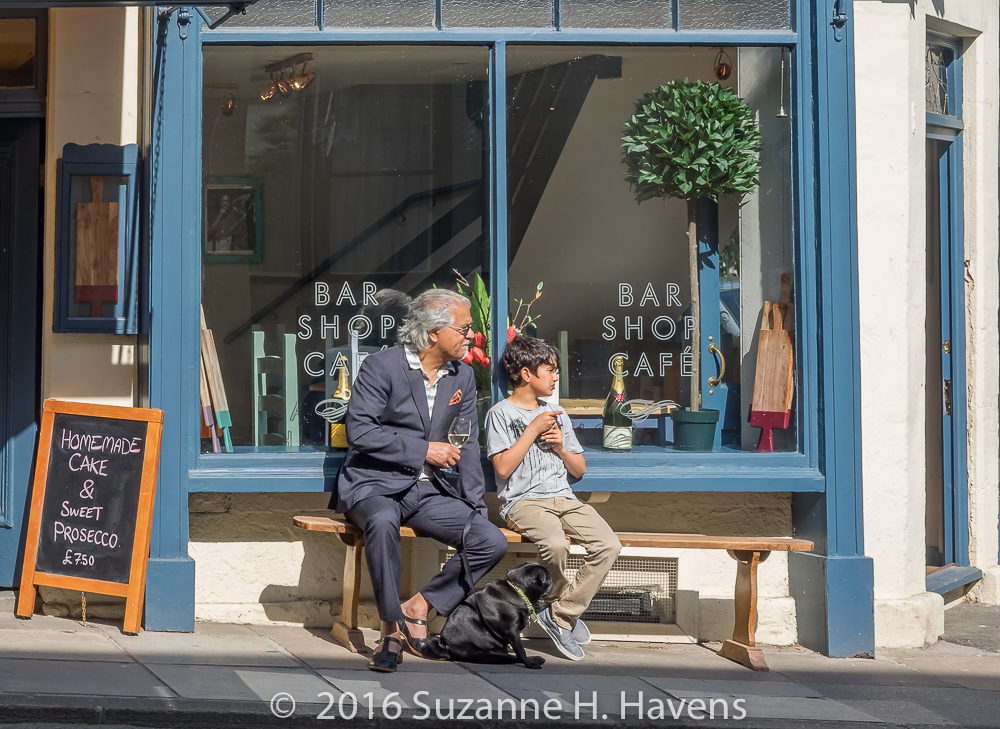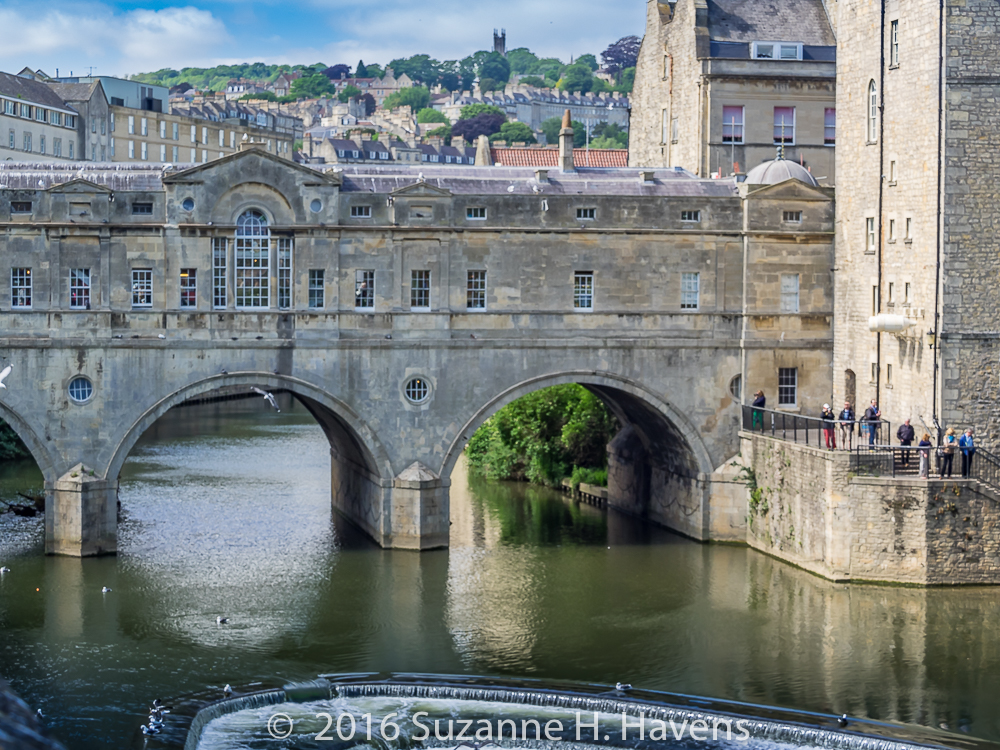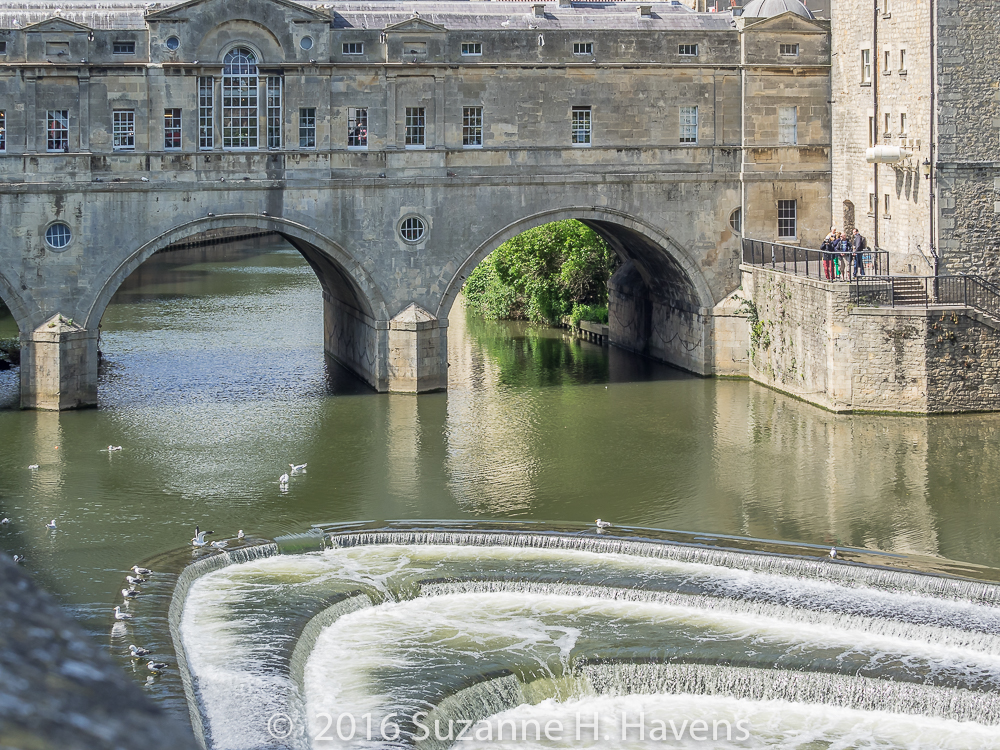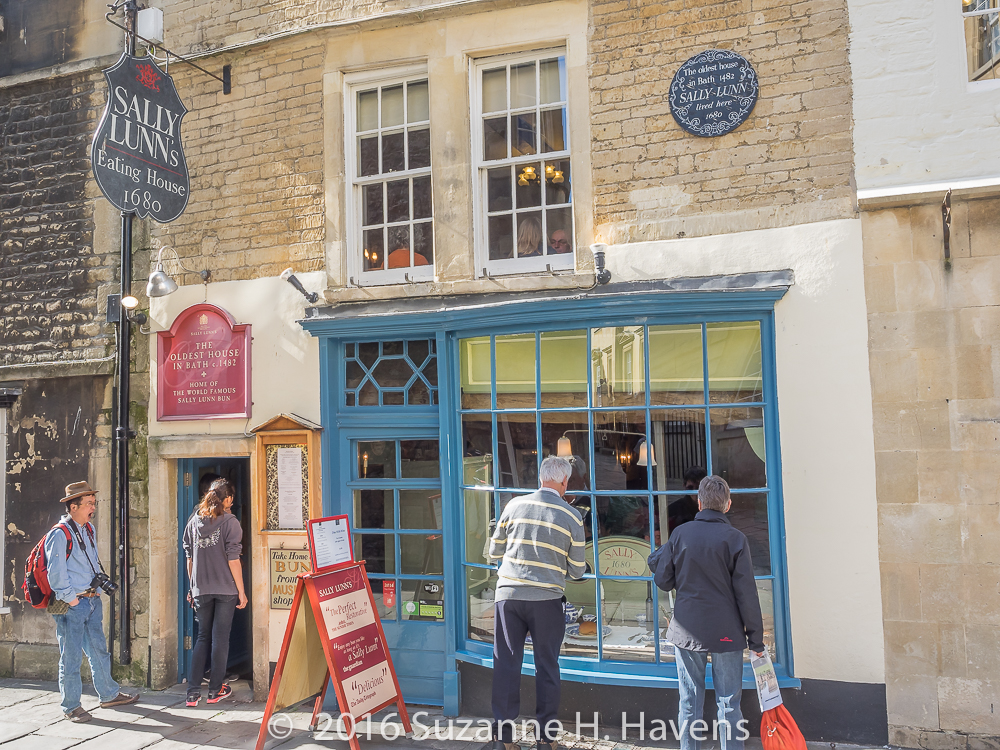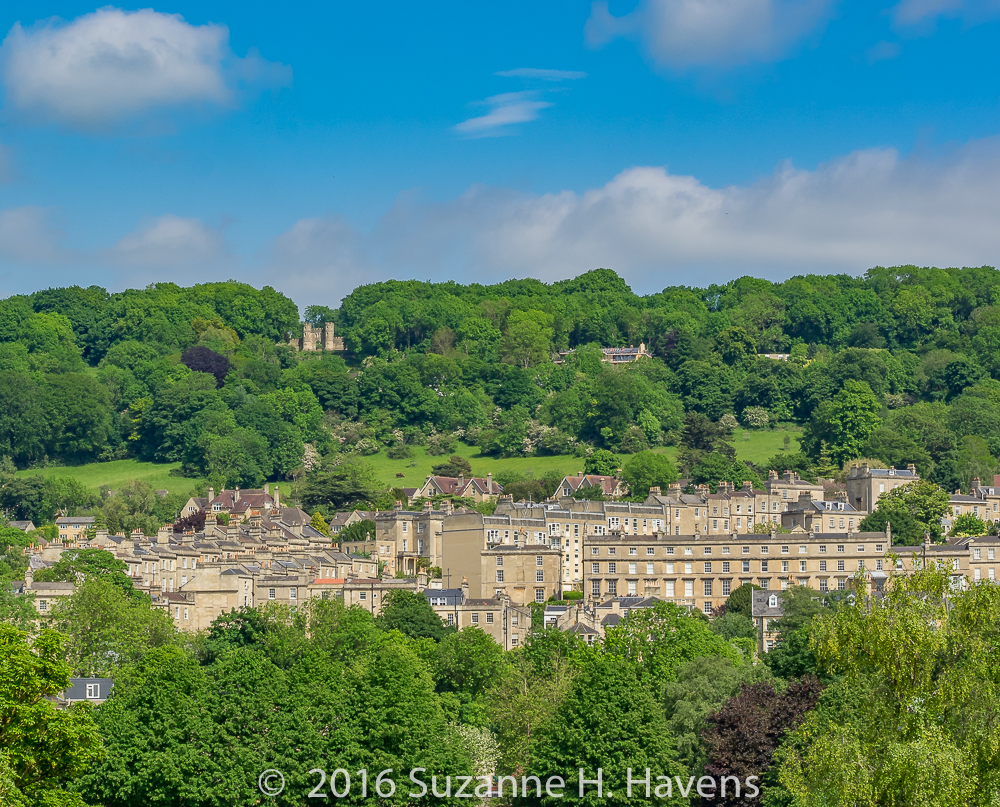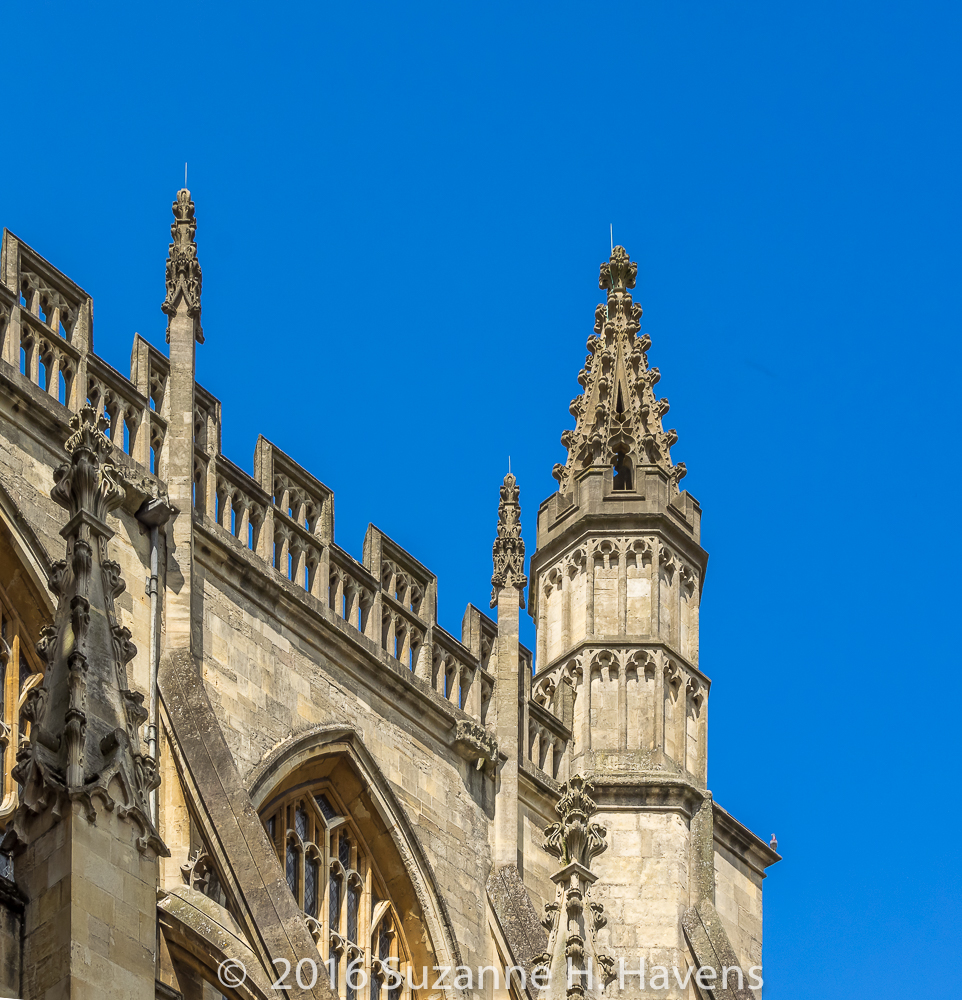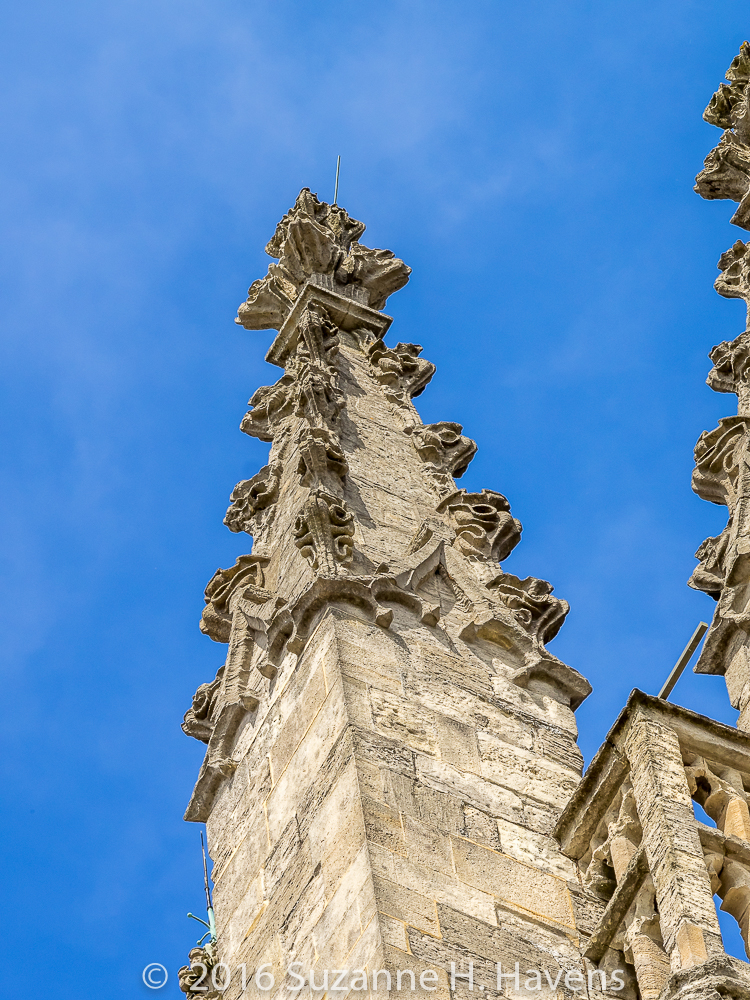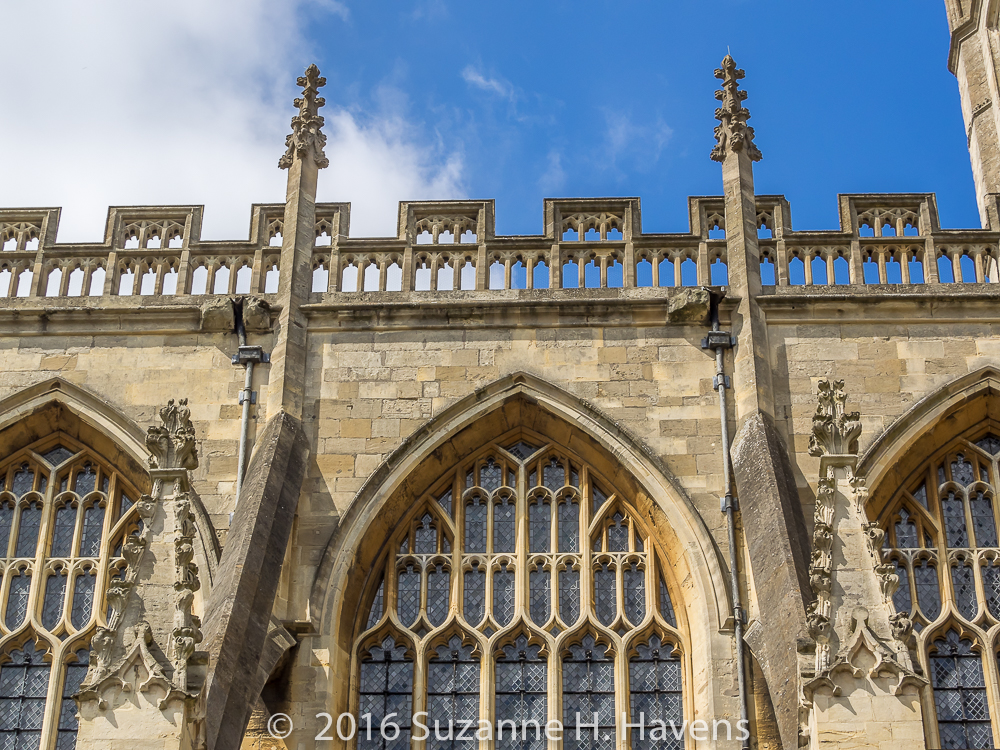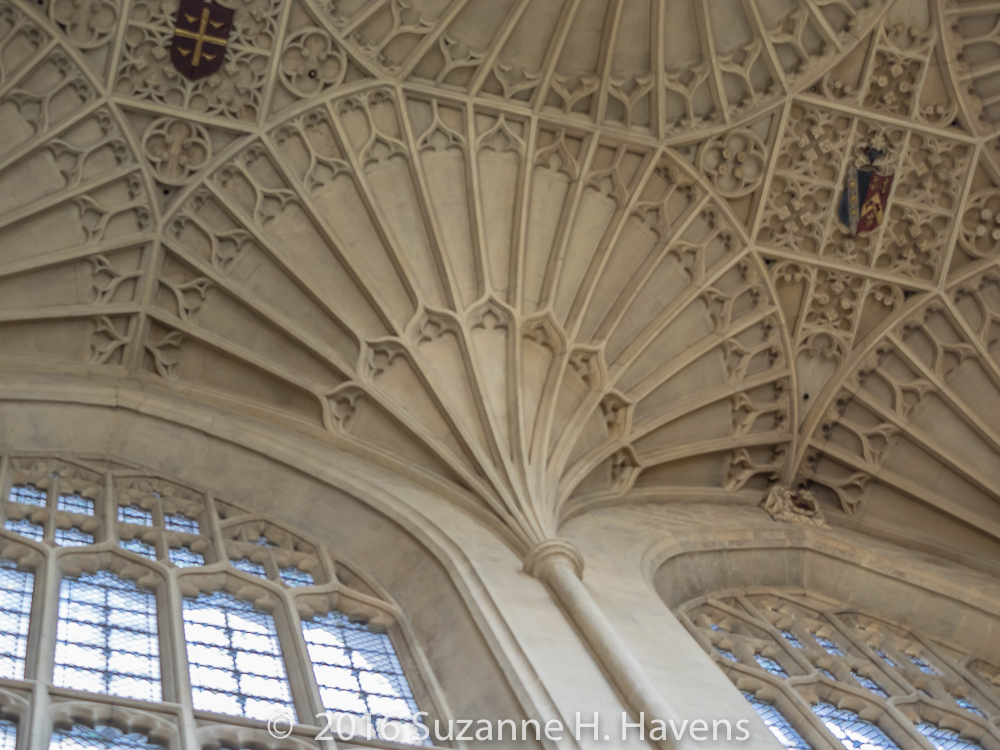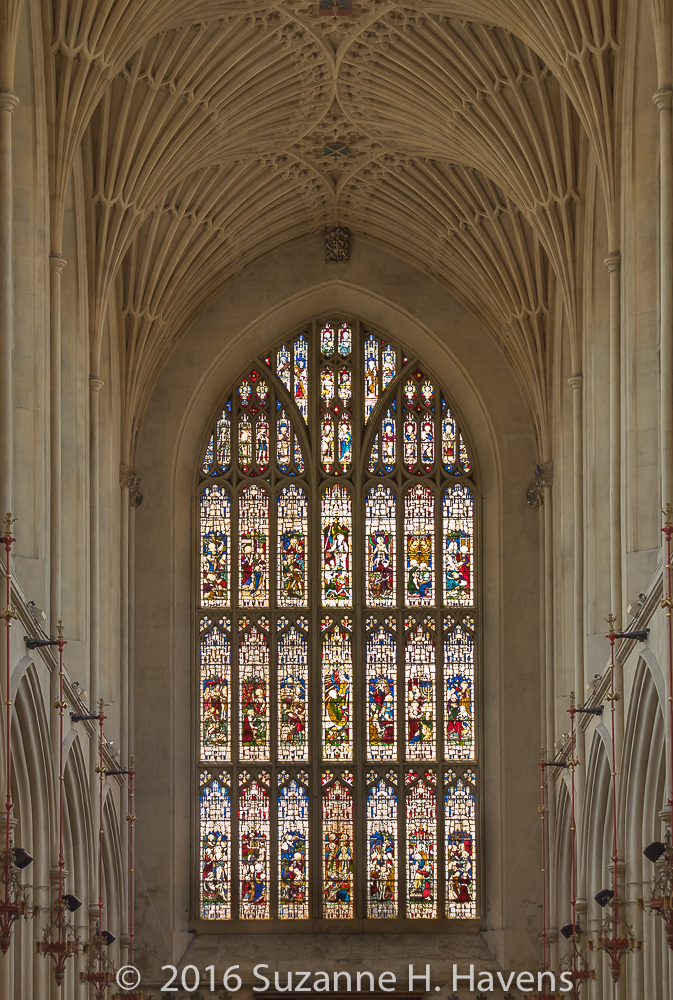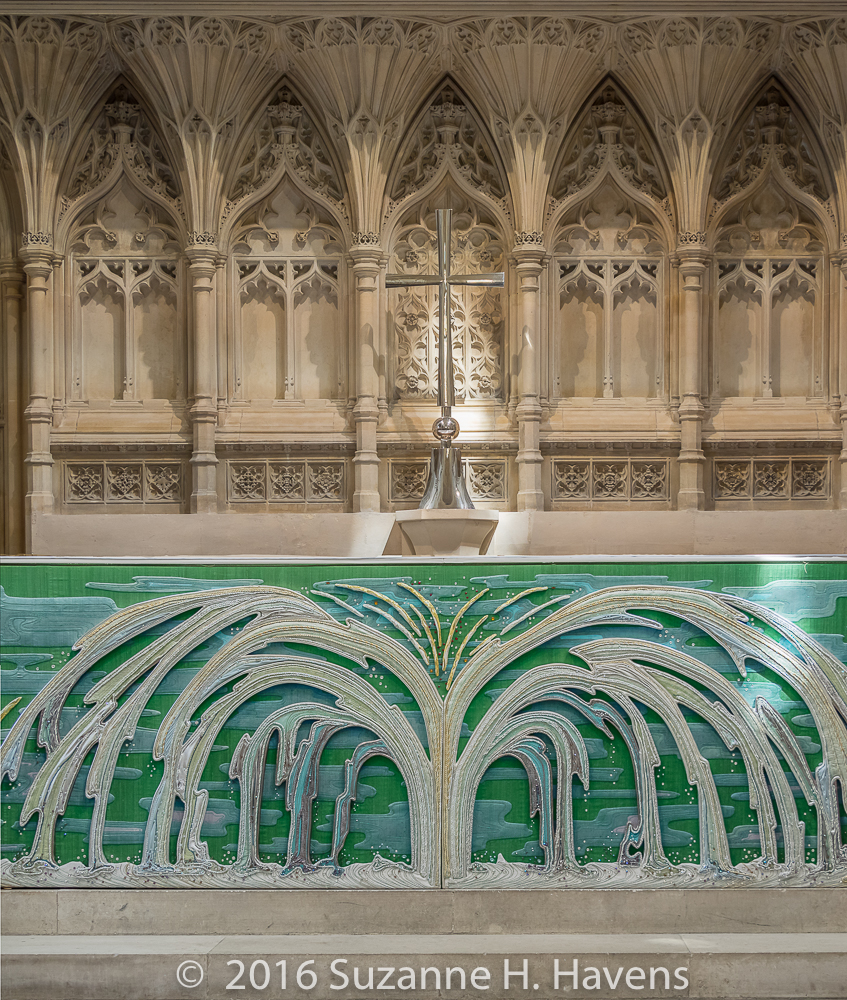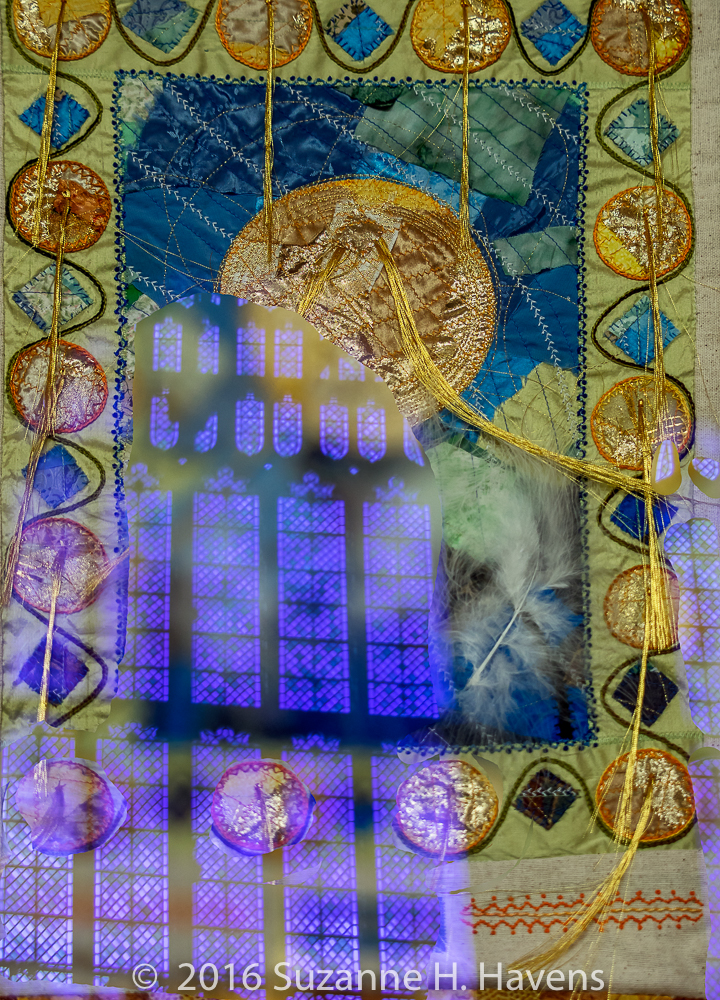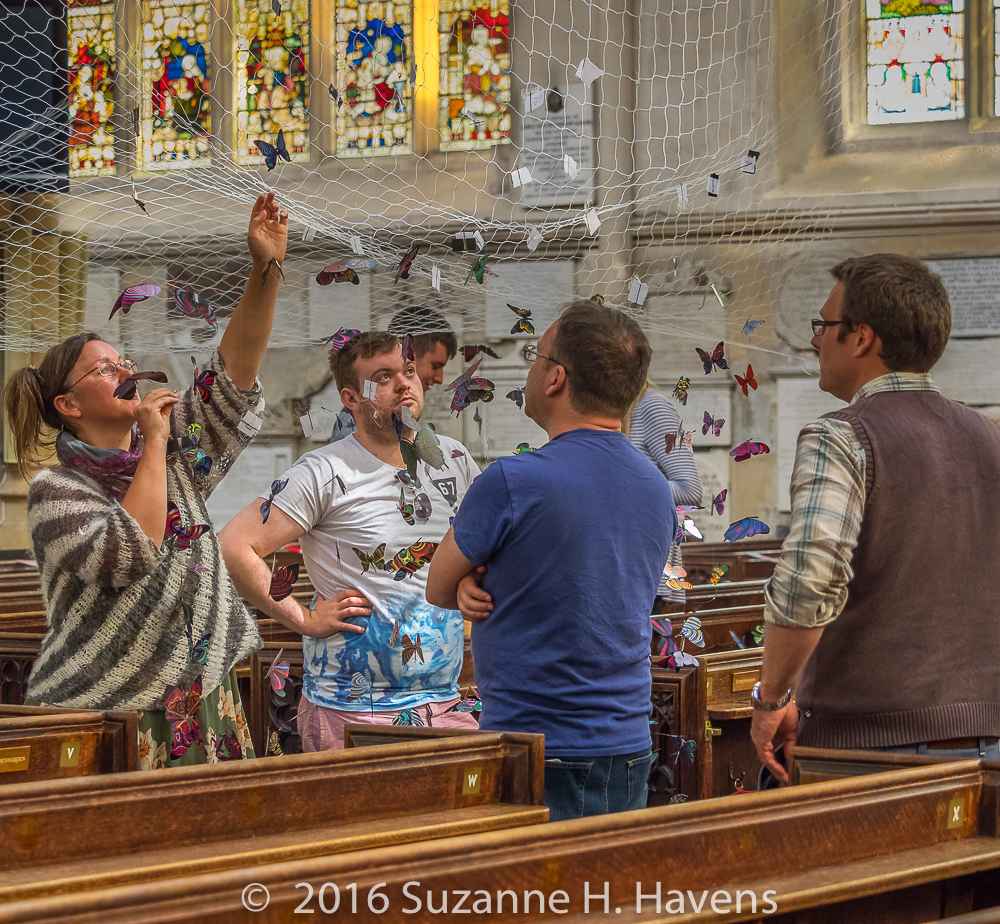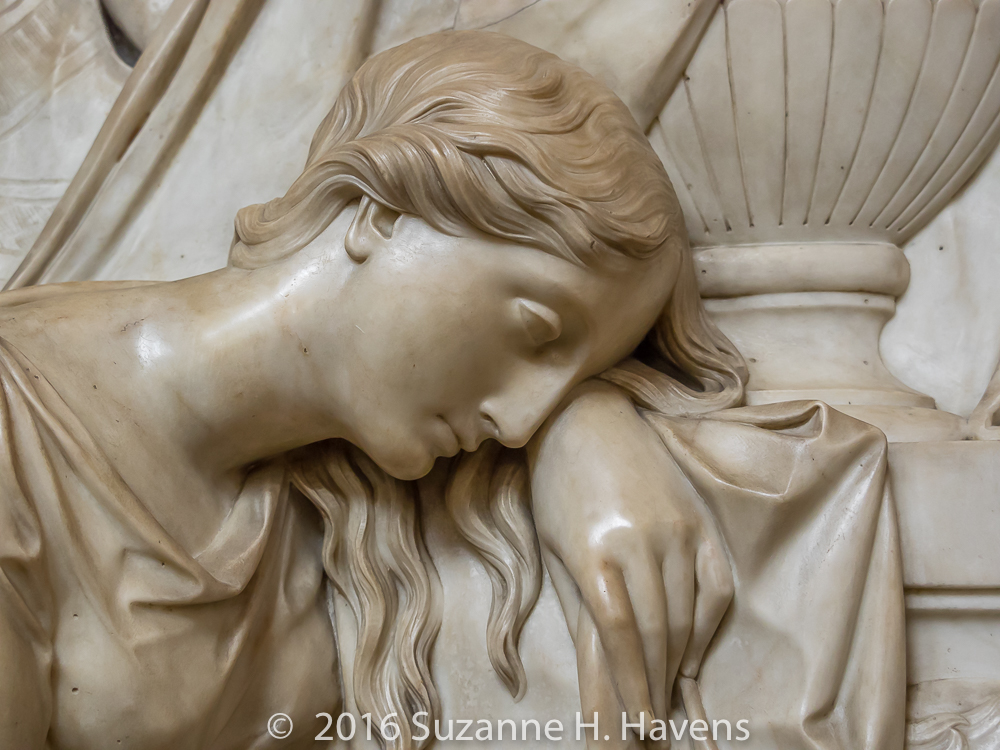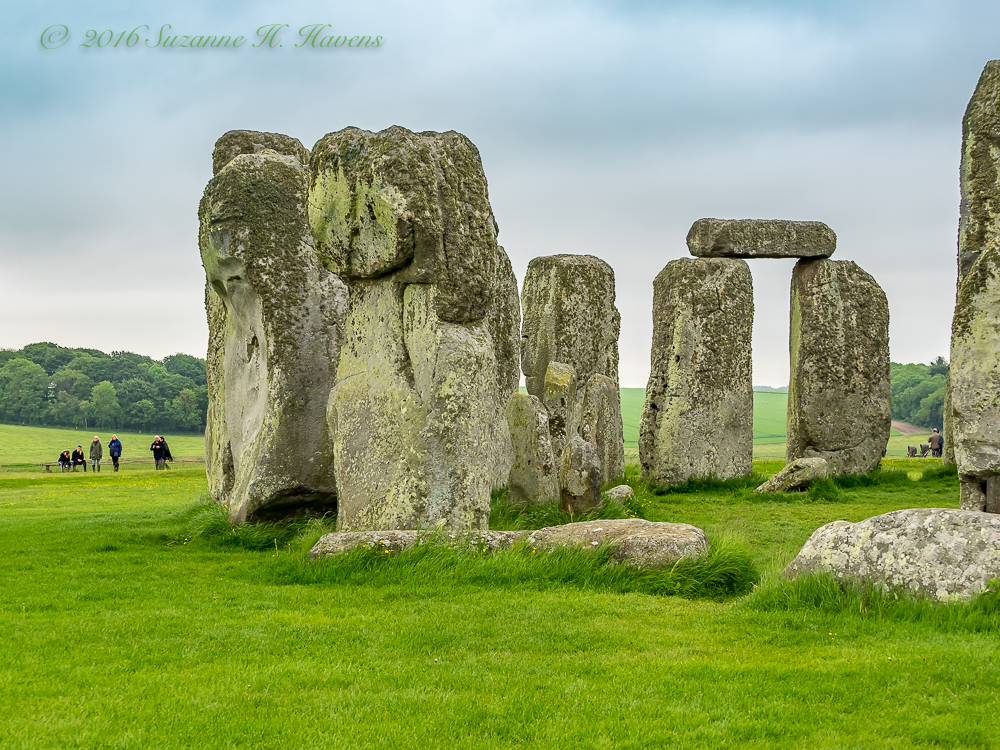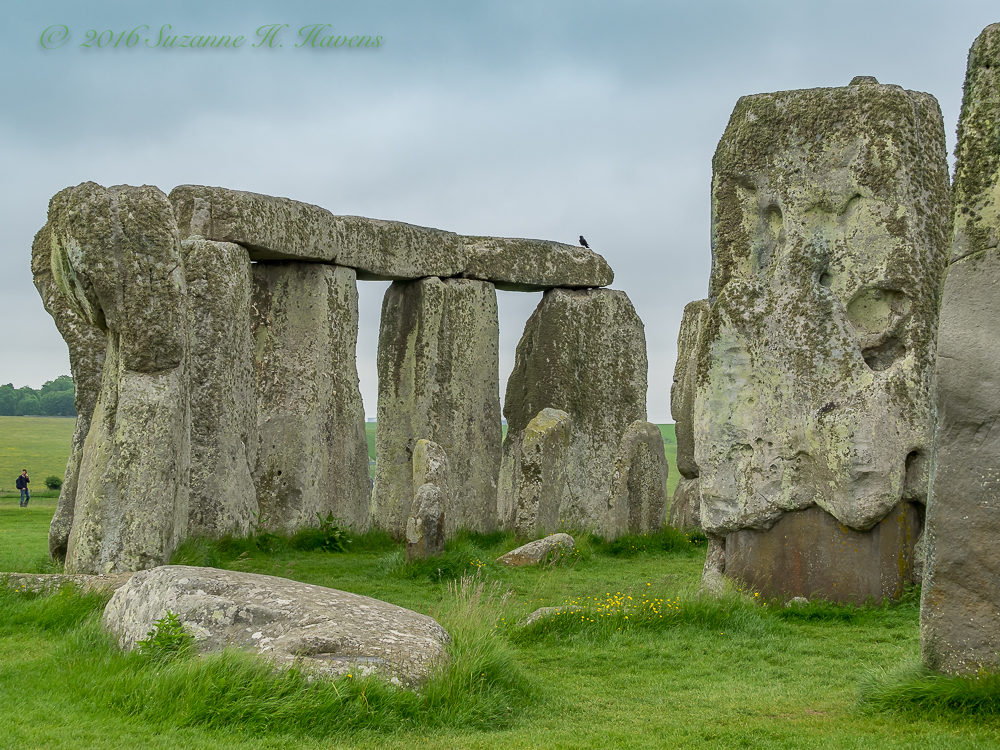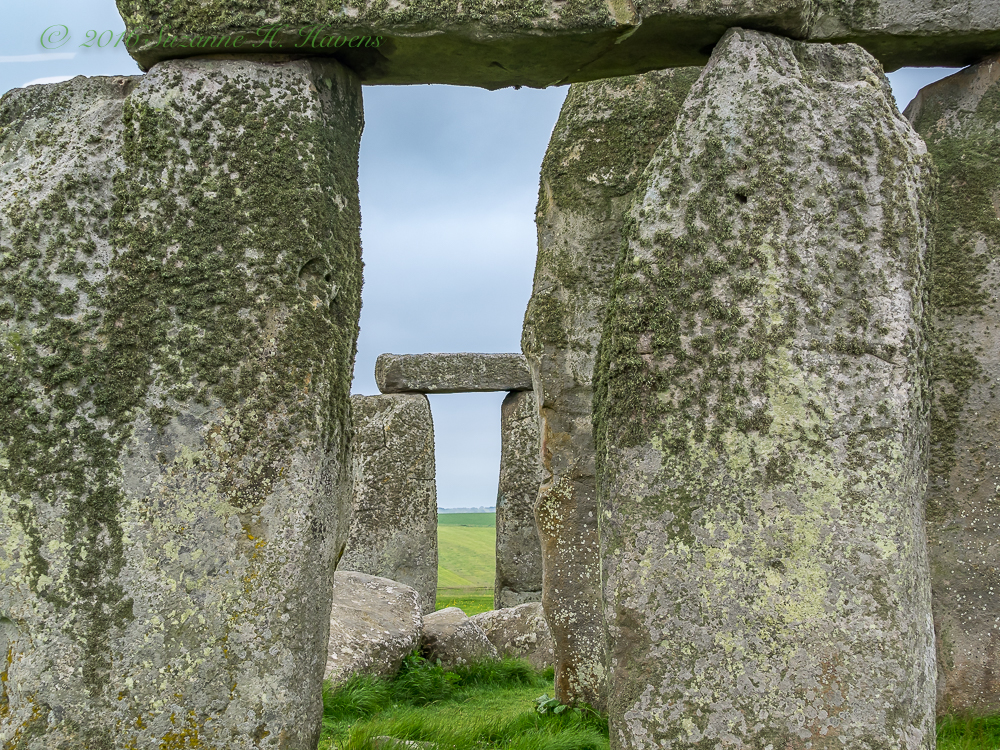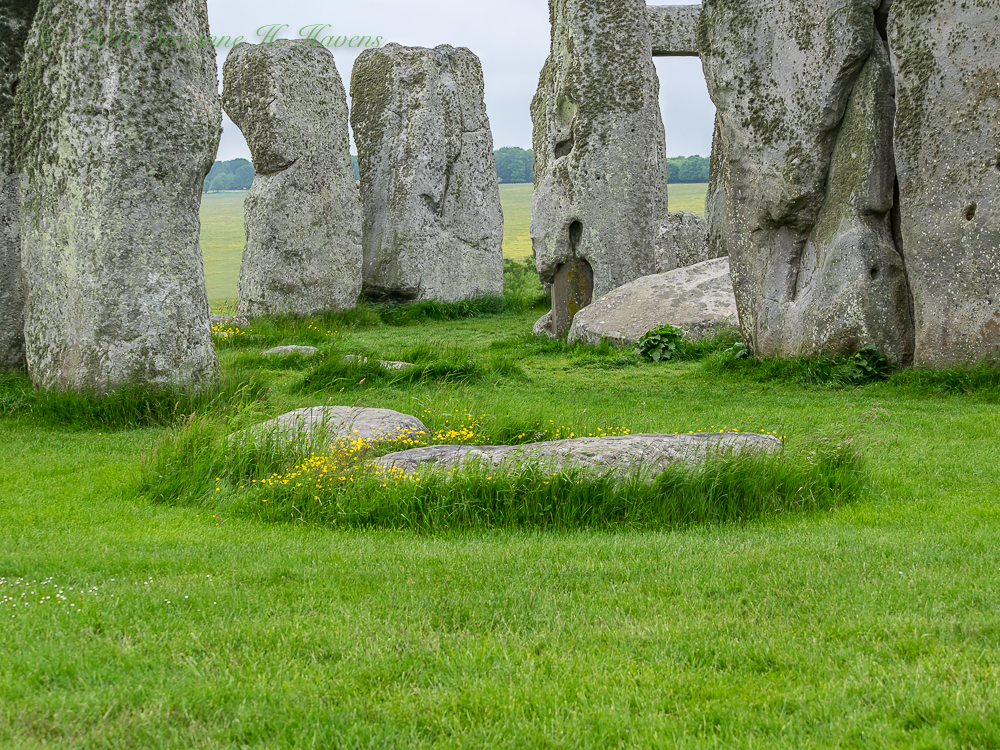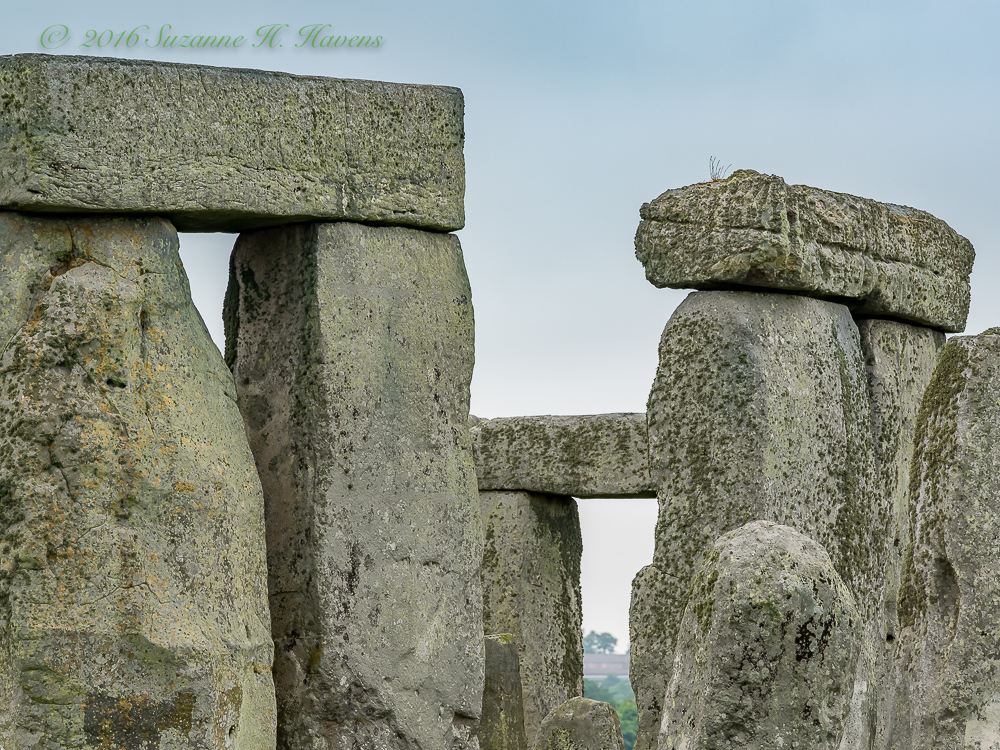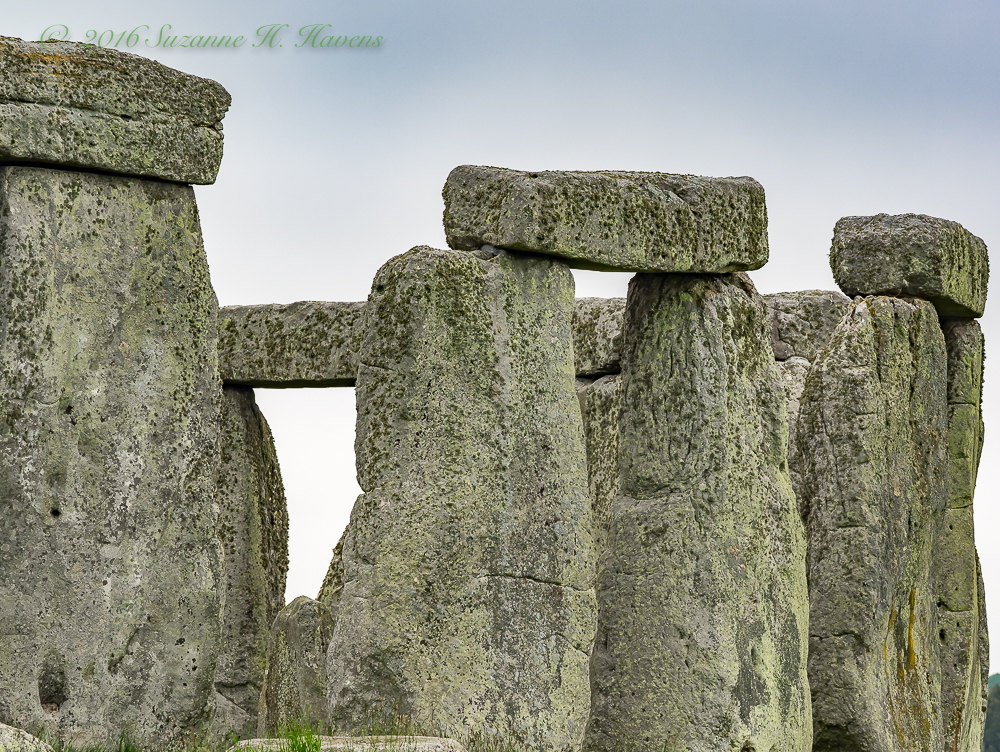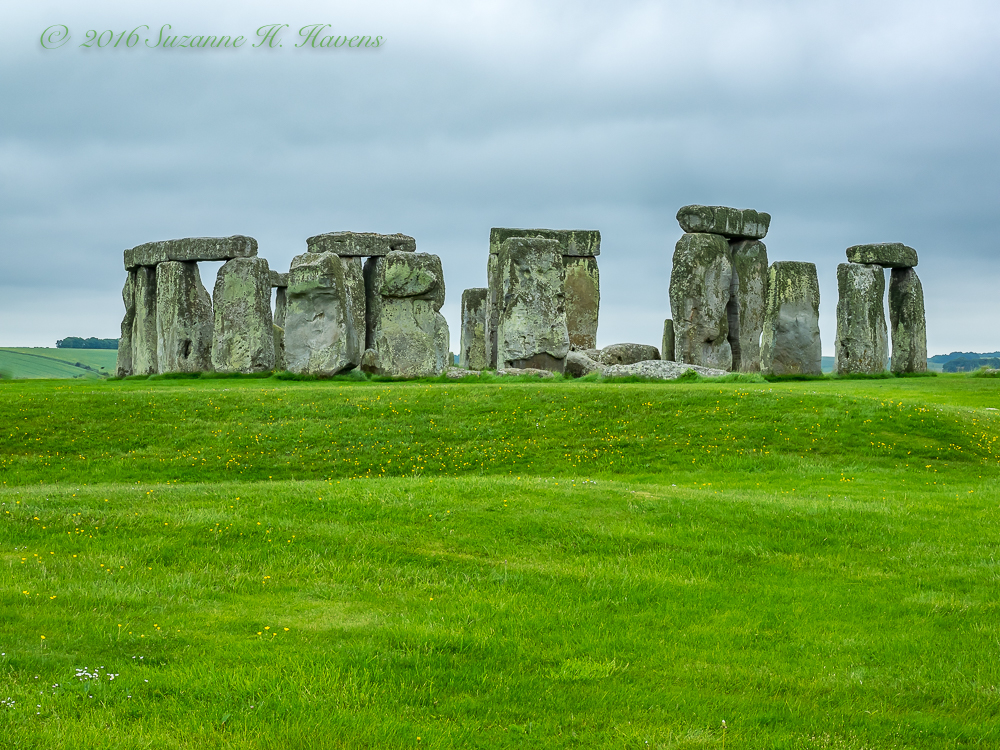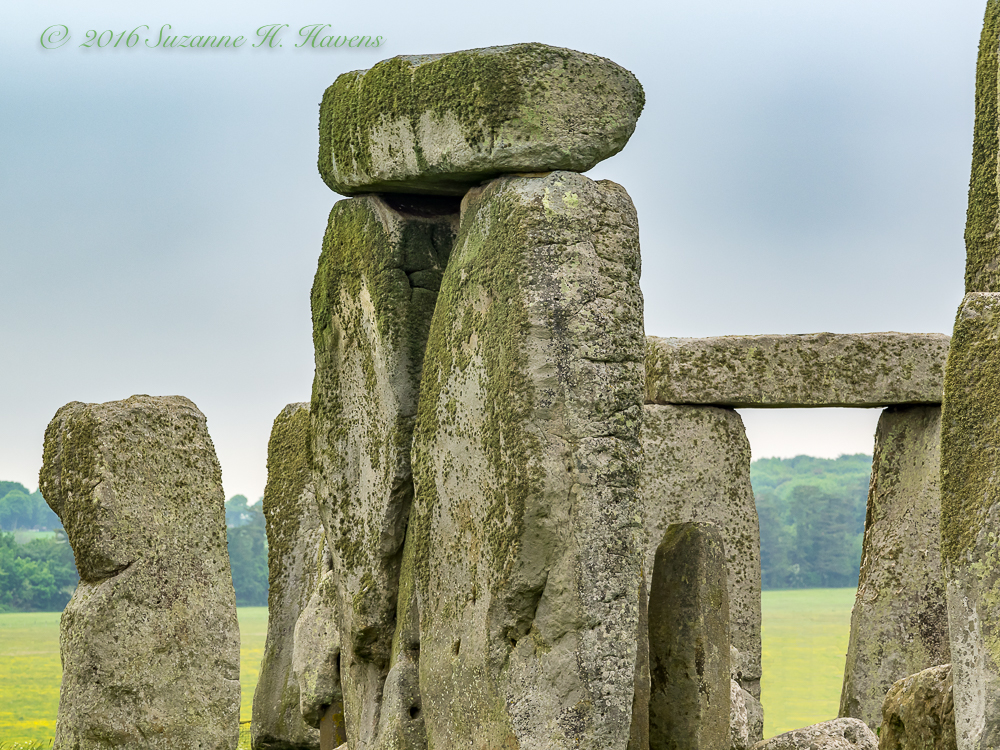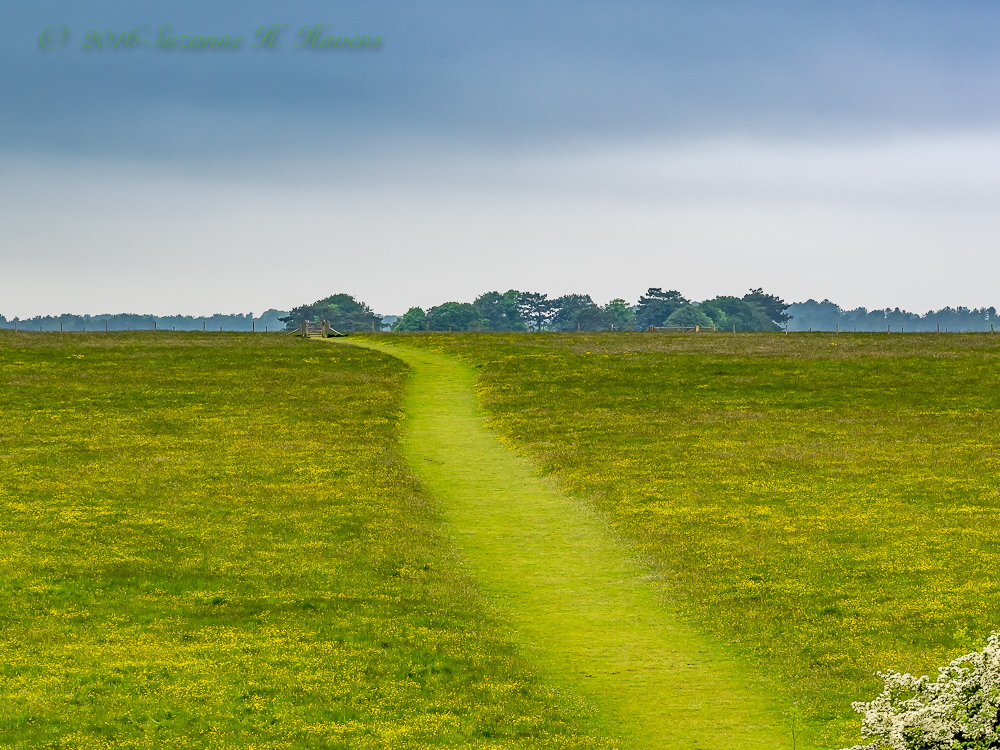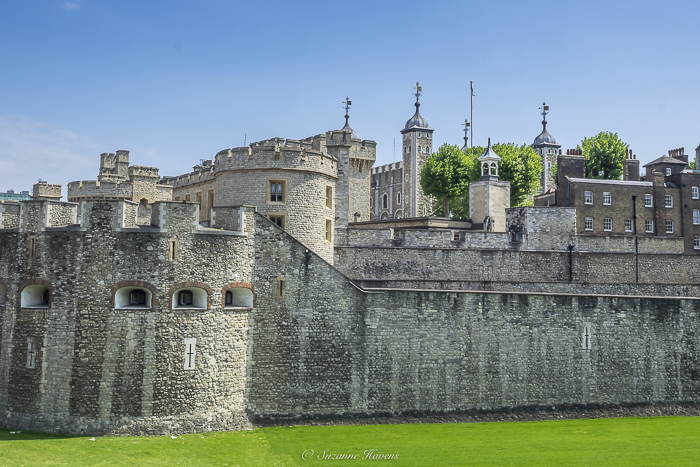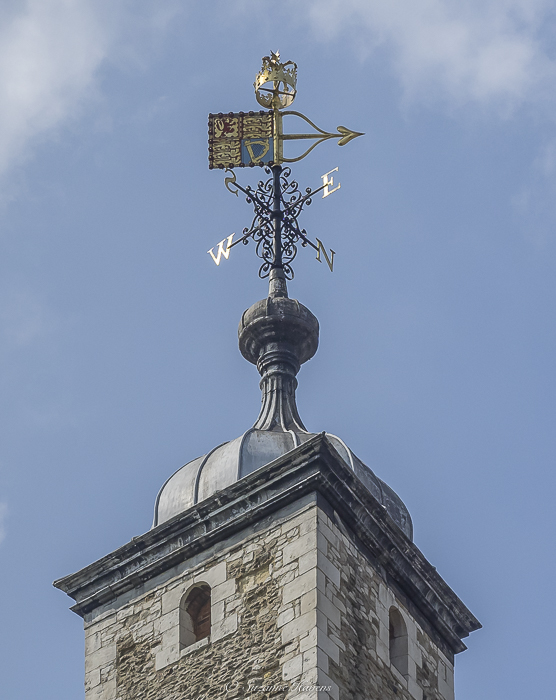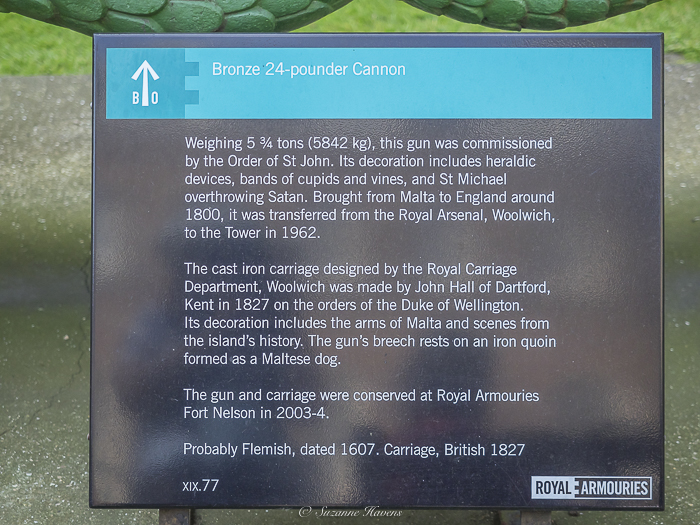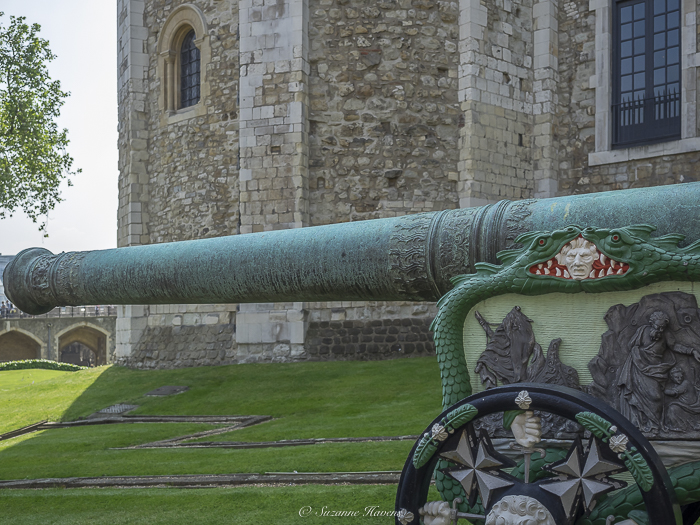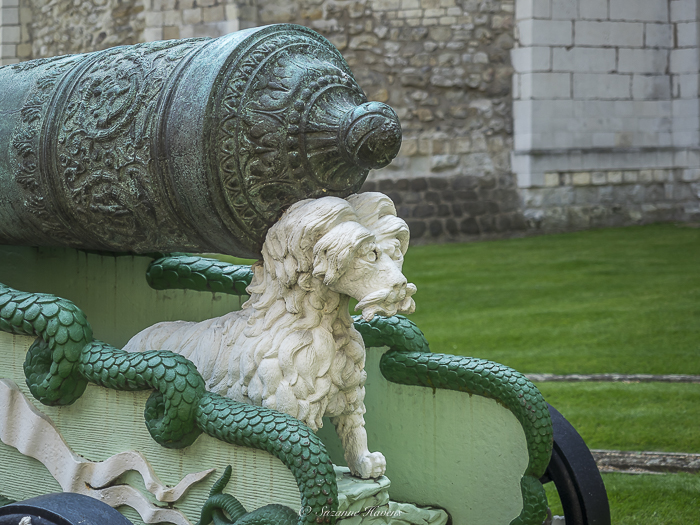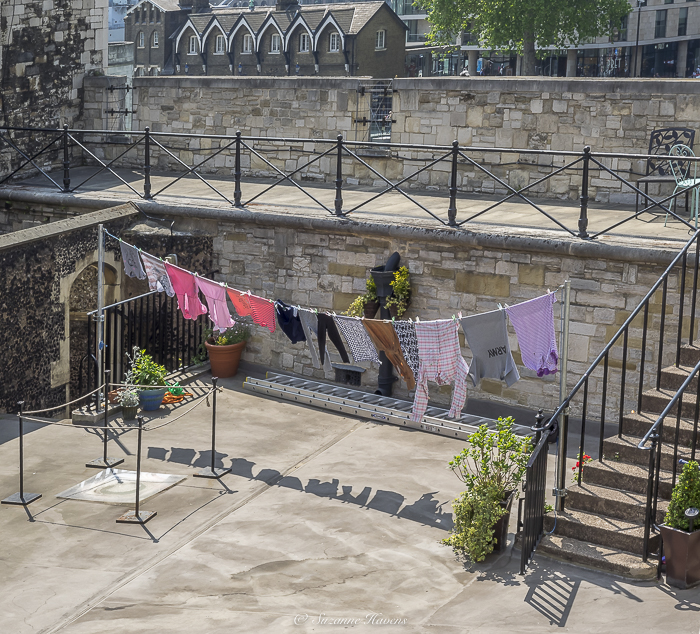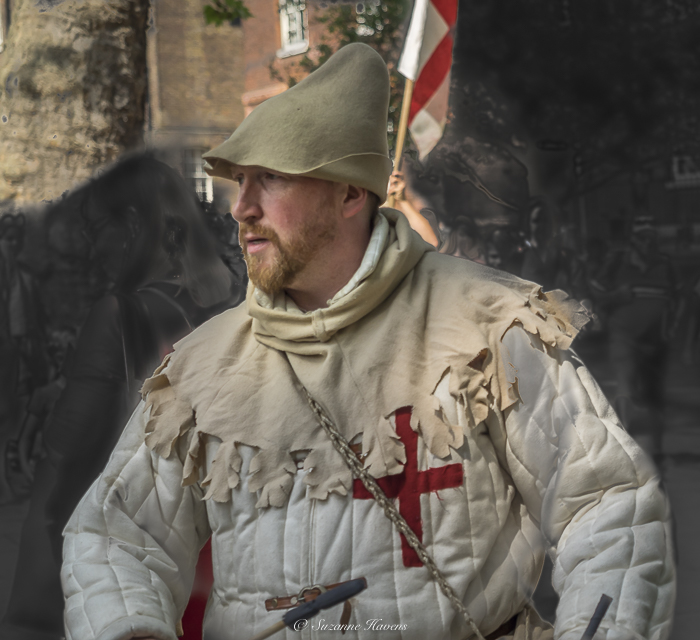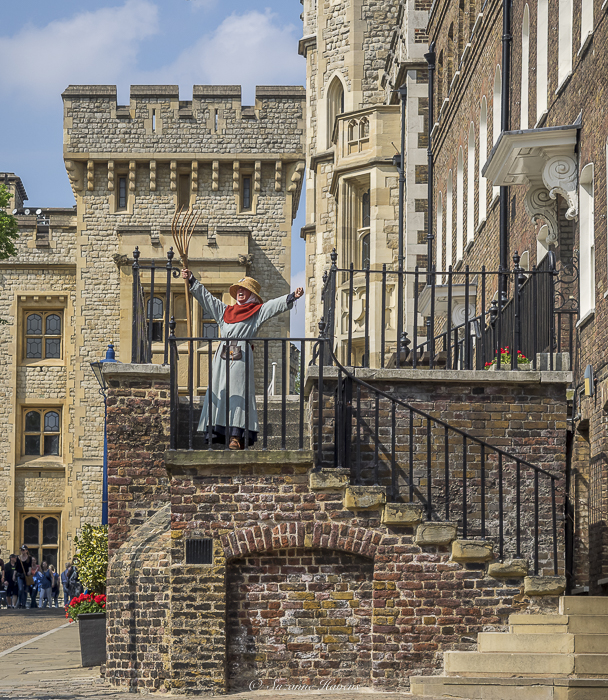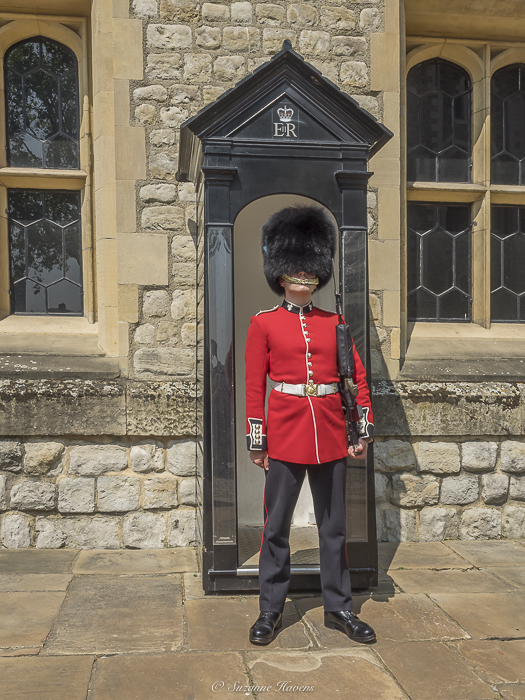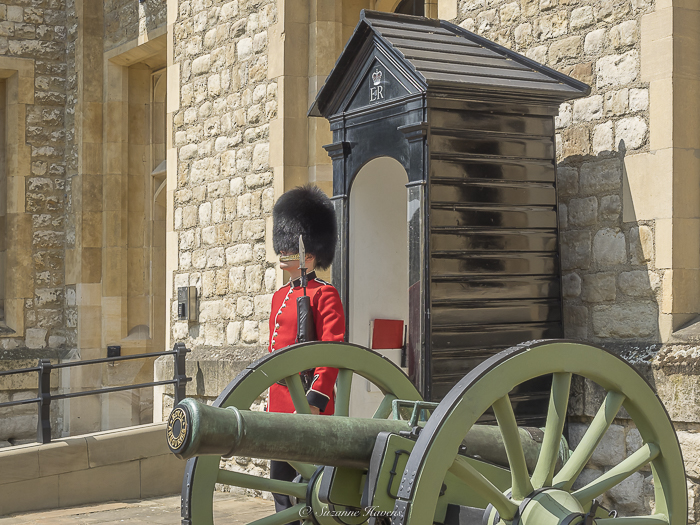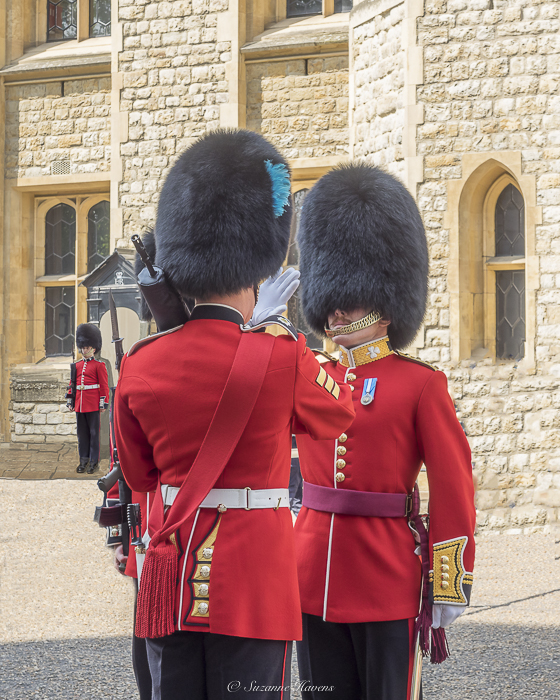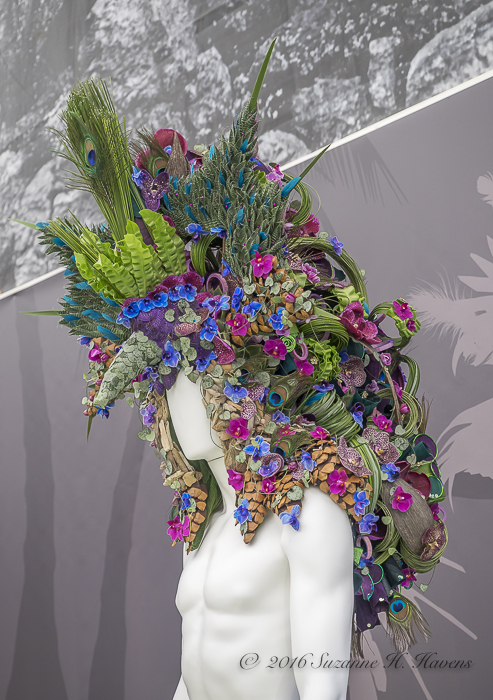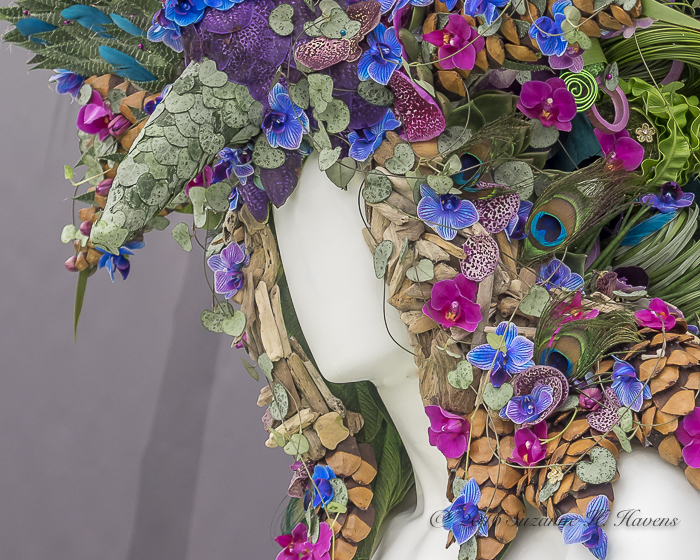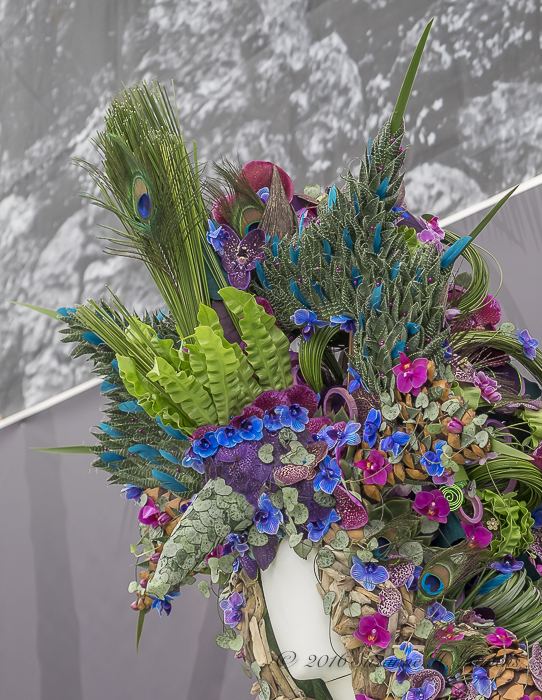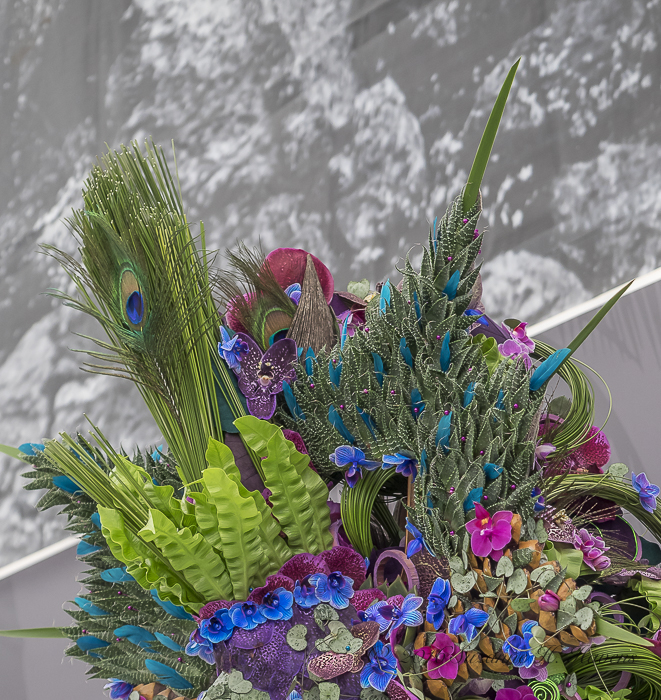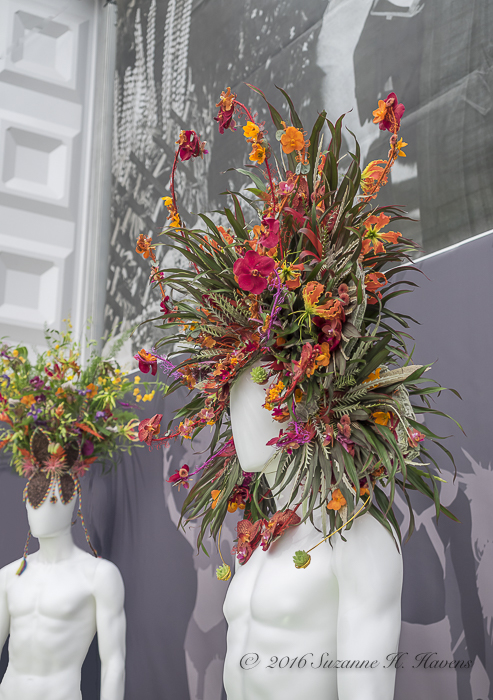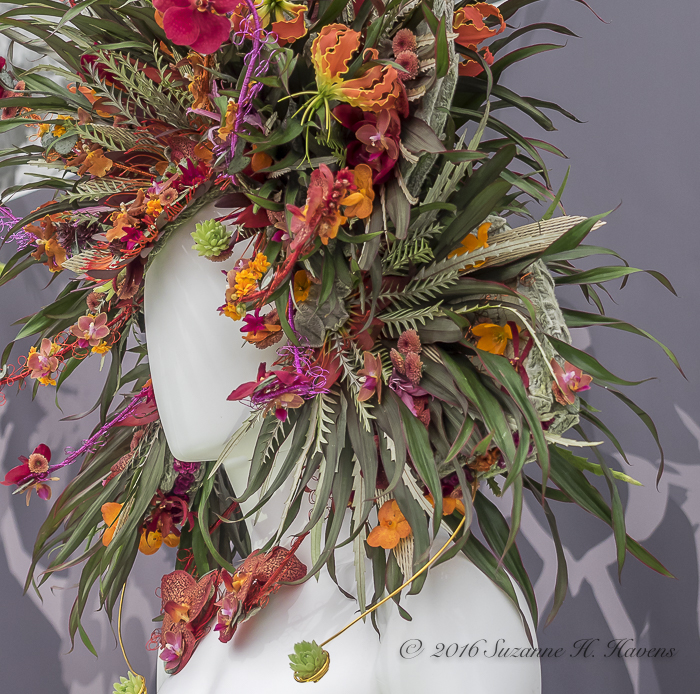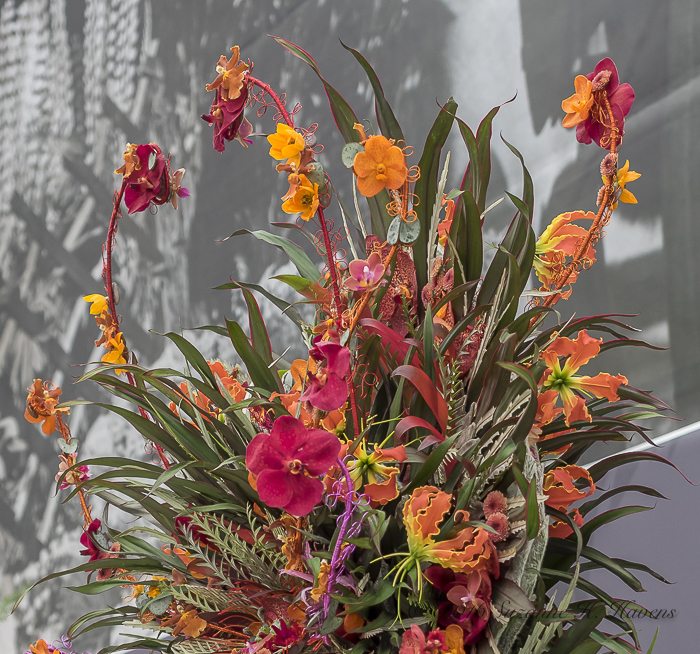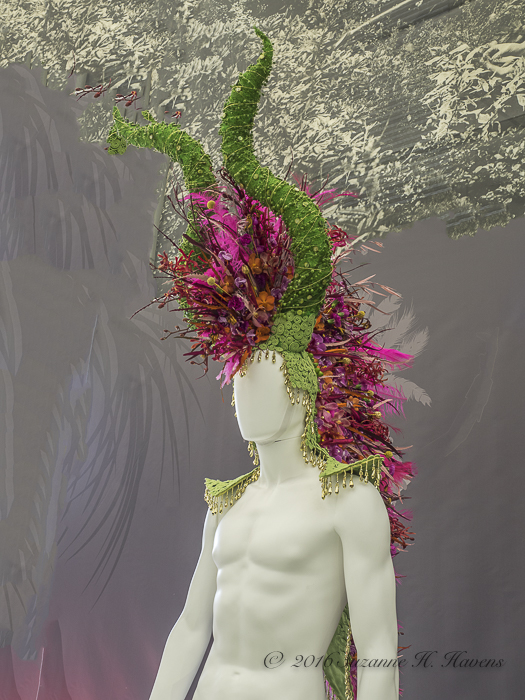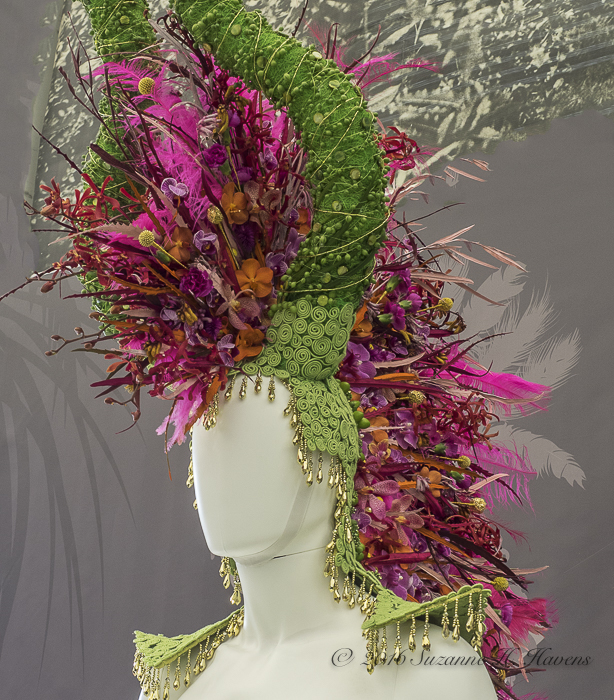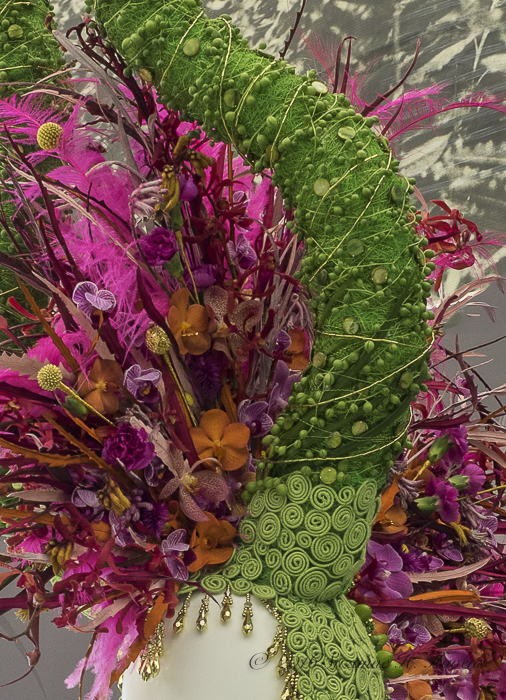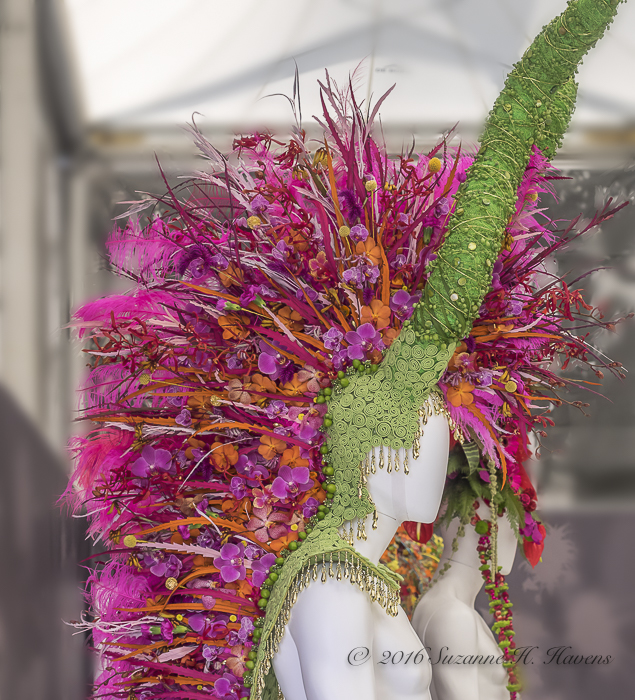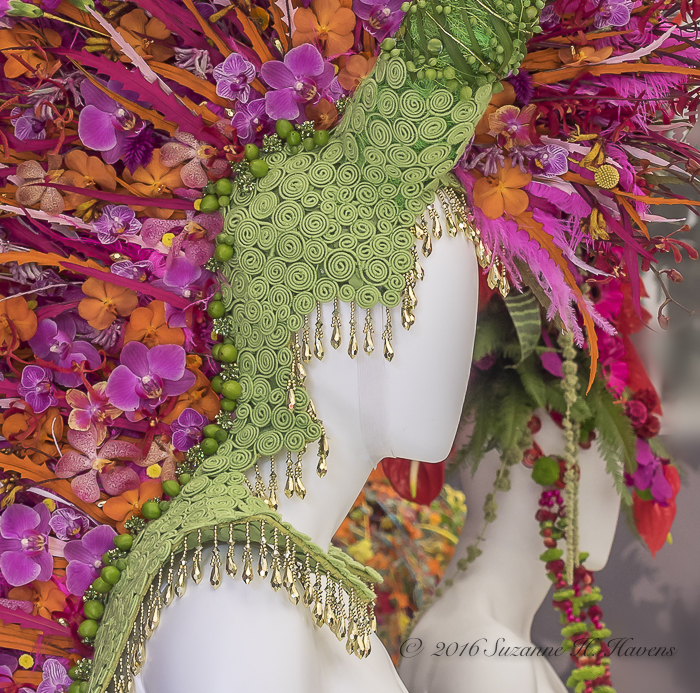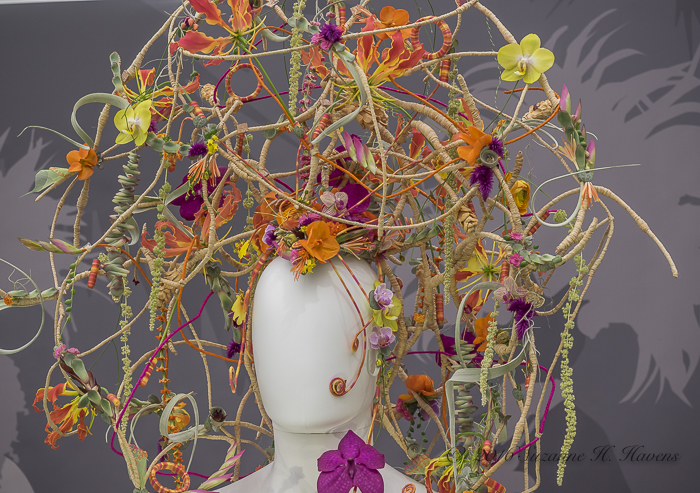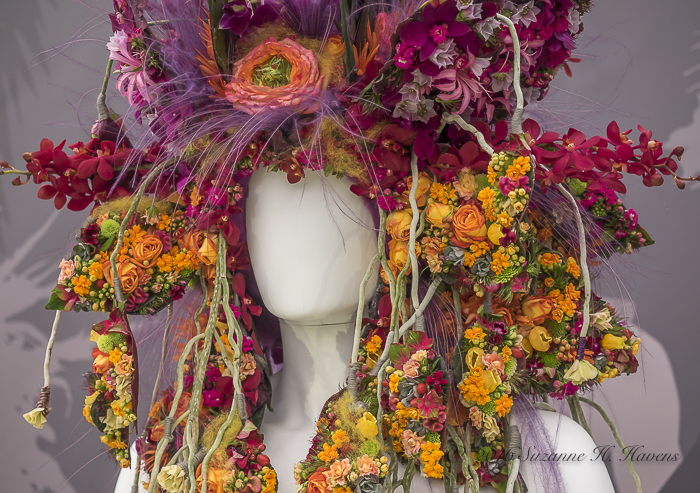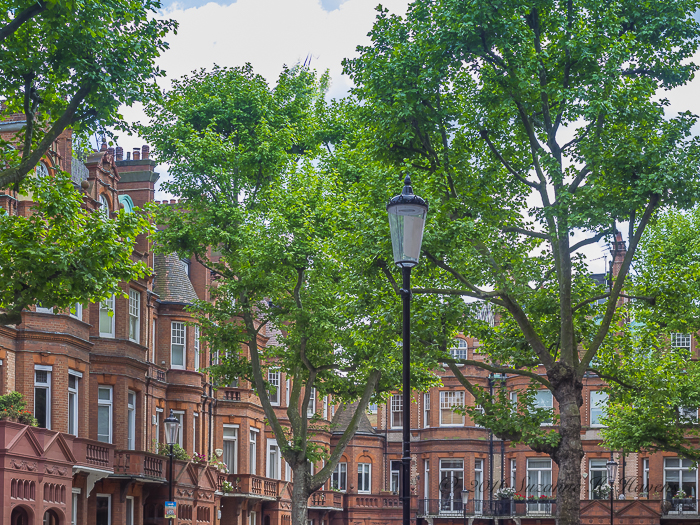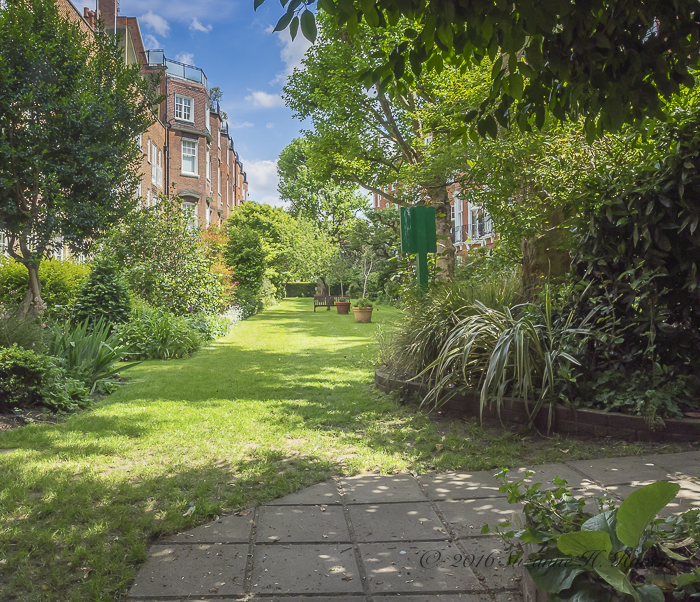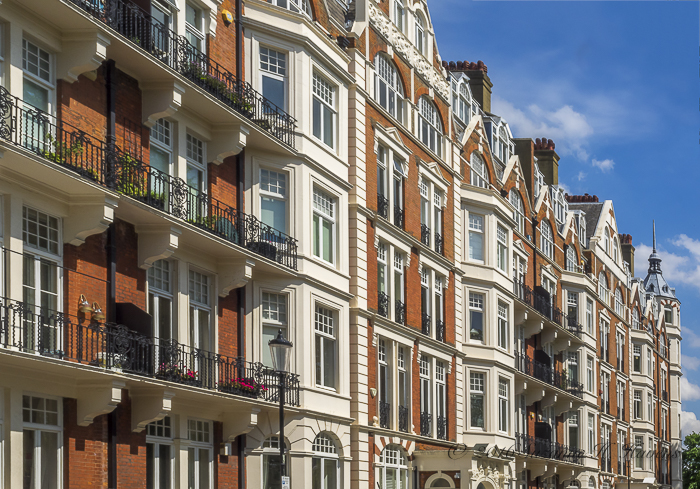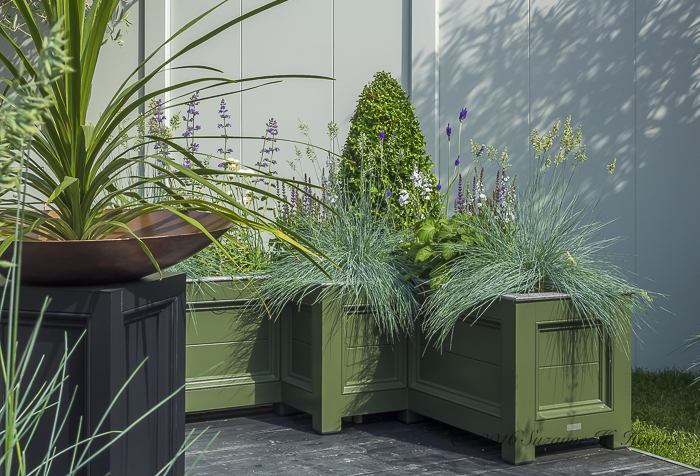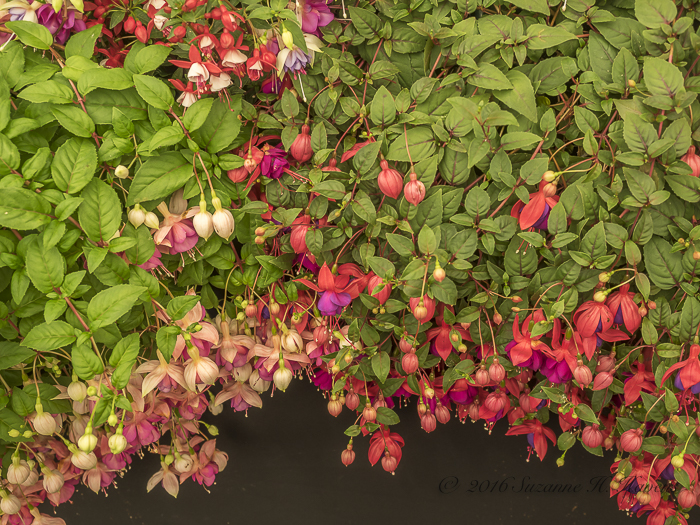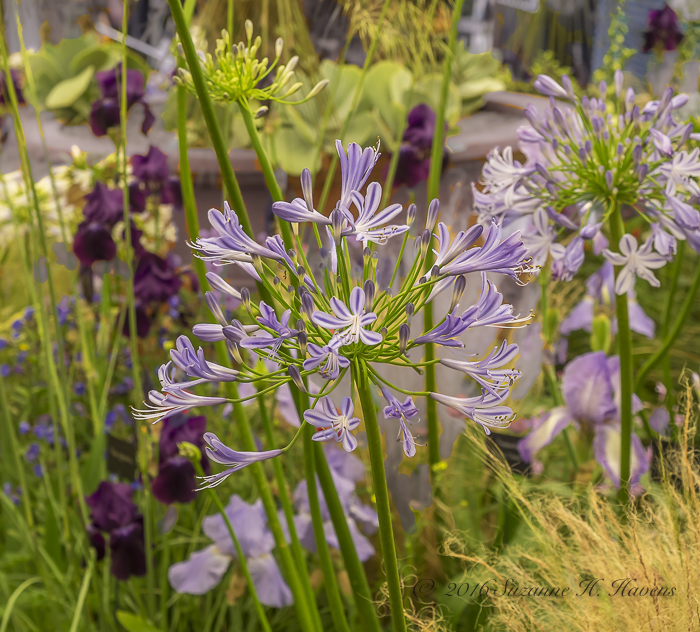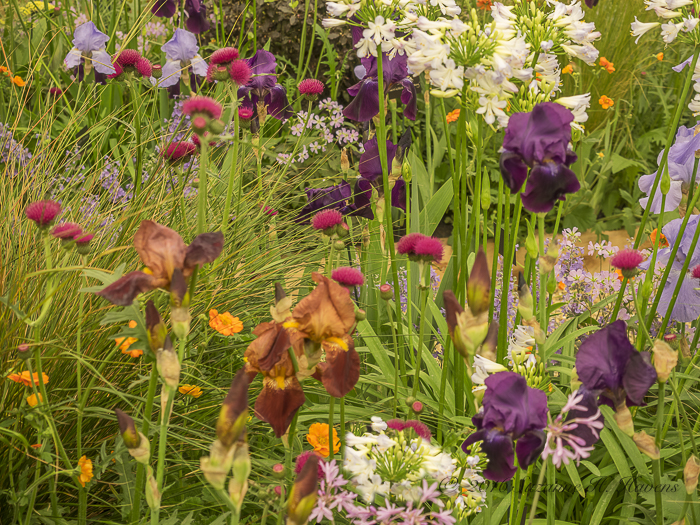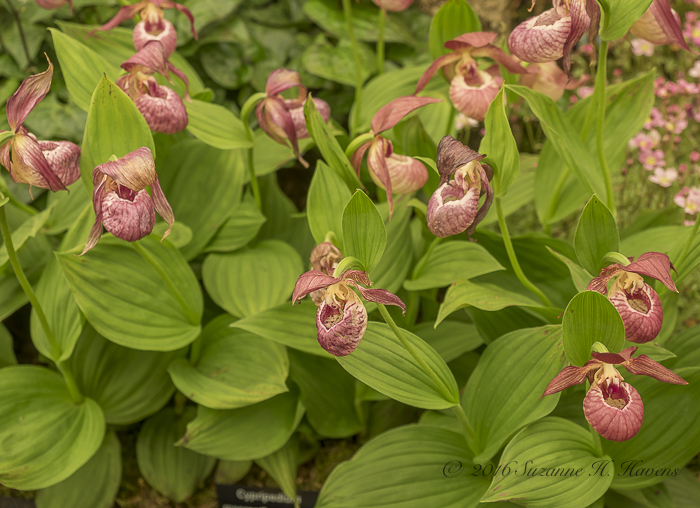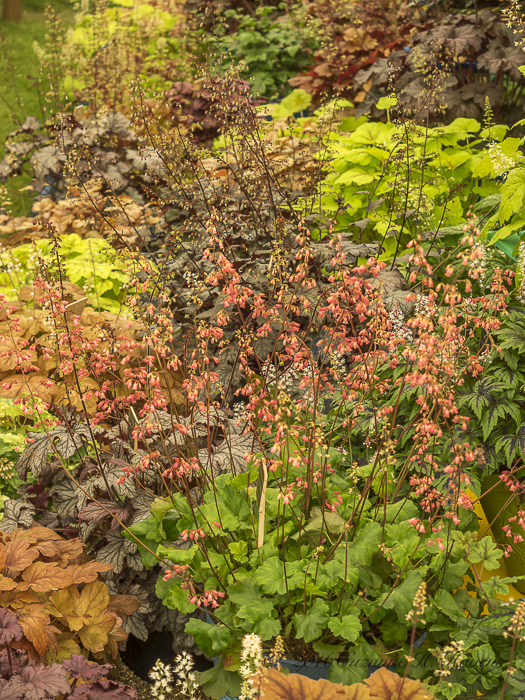Bibury was a weavers’ village. The National Trust bought the weavers’ cottages and rent them out. The buildings were made of oolitic limestone. The limestone makes the soil fertile, so the grazing is good for the sheep, which makes the sheep happy. The sheep of the Cotswolds are known for their soft wool. (Is this like contented cows make sweet milk?) Many tourists come by the car and busload, which I tried to avoid in my photos. William Morris of the Arts and Crafts movement called Bibury the most beautiful village in England. You may notice that these are spring flowers. We visited in late May when it was cool and overcast. I couldn’t decide which photos were my favorites, so I included a whole series. They include the Arlington Row cottages, private homes, a hotel, and the wildlife preserve. The preserve is currently being restored.
The National Trust has purchased and preserved land and buildings so that we might be able to see how England looked in medieval times and even prehistoric times. Avebury has one of the largest stone circles in Great Britain and the European continent. Some of the buildings of the town are within the stone circle. The henge is the dip made around the stones. This one is quite deep.
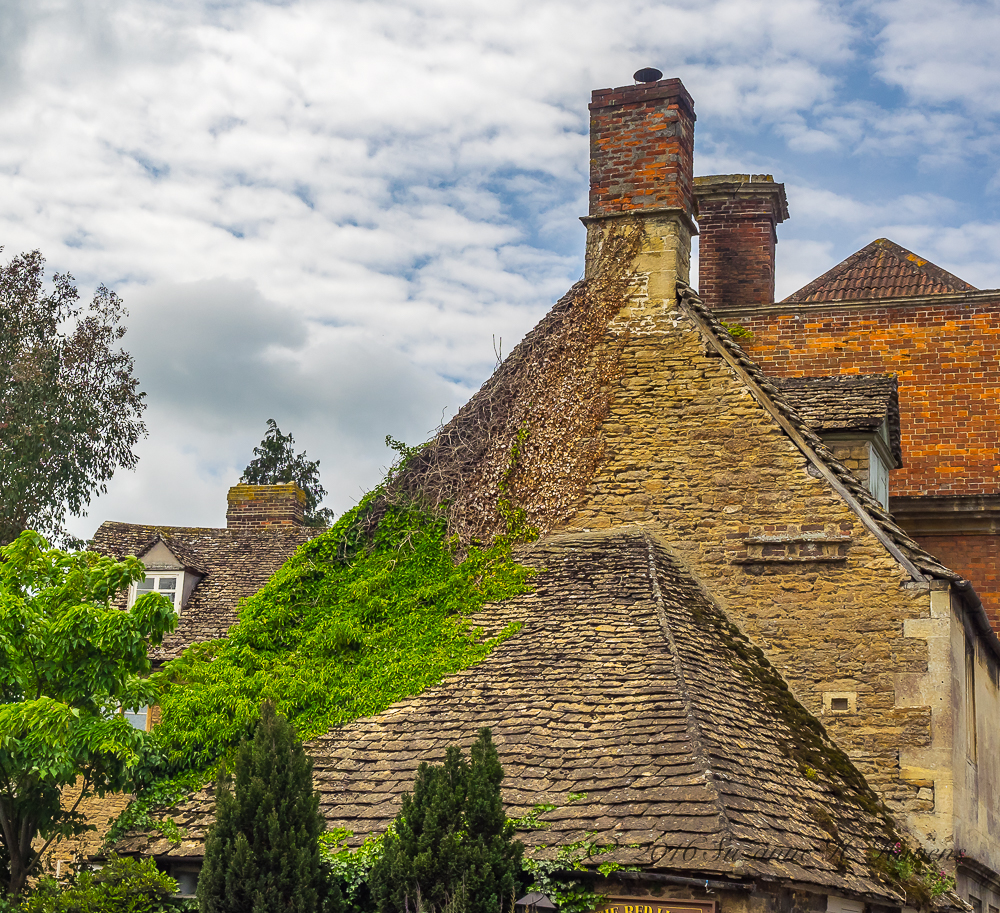
The textures of the building materials and the plants of the inns and homes suggest they have withstood the elements over the ages
The weather turned sunny and we could not bring ourselves to go inside and tour the damp Roman baths. Instead we climbed the steep hill to see the famous Circus and Royal Crescent as well as the Royal Victoria Park, hiked back down to the posh shops, took a look at the exterior architecture of the baths, and strolled along the River Avon.
“The Abbey Church of Saint Peter and Saint Paul, Bath, commonly known as Bath Abbey, is an Anglican parish church and a former Benedictine monastery in Bath, Somerset, England. Founded in the 7th century, Bath Abbey was reorganised in the 10th century and rebuilt in the 12th and 16th centuries; major restoration work was carried out by Sir George Gilbert Scott in the 1860s. It is one of the largest examples of Perpendicular Gothic architecture in the West Country.” wikipedia
We visited there on June 2 and I found the abbey to be lively with people installing what looked to be a temporary sculpture of hope. The art and architecture blended ancient and contemporary Christian expressions of faith, love, and hope.
The day we visited Stonehenge (aka the stones) was cold, windy and dreary. Somehow it fits my mood today as I mourn the deaths of those killed in Nice, Istanbul, Minnesota. Baton Rouge, and Dallas. On one hand I marvel at the capacity of human beings to imagine and build lasting monuments with millions of hours invested and on the other hand we use our advanced technology 5,000 years later to take the lives of fellow human beings.
The Tower of London “was founded towards the end of 1066 as part of the Norman Conquest of England. The White Tower, which gives the entire castle its name, was built by William the Conqueror in 1078, and was a resented symbol of oppression, inflicted upon London by the new ruling elite. The castle was used as a prison from 1100 (Ranulf Flambard) until 1952 (Kray twins),[2] although that was not its primary purpose. A grand palace early in its history, it served as a royal residence. As a whole, the Tower is a complex of several buildings set within two concentric rings of defensive walls and a moat. There were several phases of expansion, mainly under Kings Richard the Lionheart, Henry III, and Edward I in the 12th and 13th centuries. The general layout established by the late 13th century remains despite later activity on the site.
The Tower of London has played a prominent role in English history. It was besieged several times, and controlling it has been important to controlling the country. The Tower has served variously as an armoury, a treasury, a menagerie, the home of the Royal Mint, a public records office, and the home of the Crown Jewels of England.” en.wikipedia.org
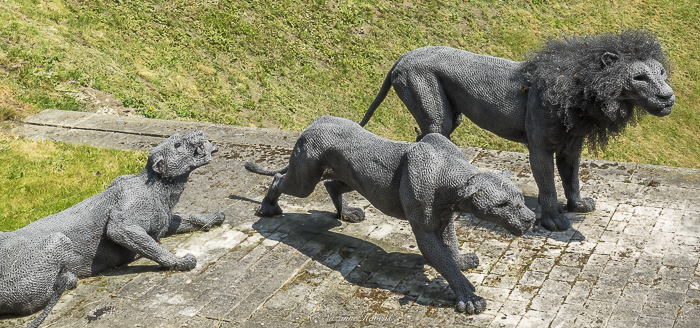
Since 1210 in “the reign of King John animals were kept at the Tower for the entertainment and curiosity of the court. Everything from elephants to tigers, kangaroos and ostriches lived in what was known as the Royal Menagerie.” Historic Royal Palaces hrp.org.uk
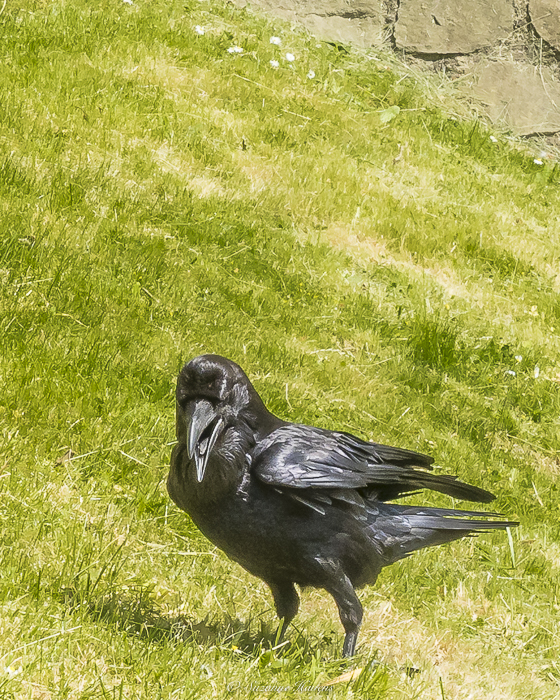
“Legend says that the kingdom and the Tower will fall if the six resident ravens ever leave the fortress. It was Charles II, according to the stories, who first insisted that the ravens of the Tower should be protected.” hrp.org.uk
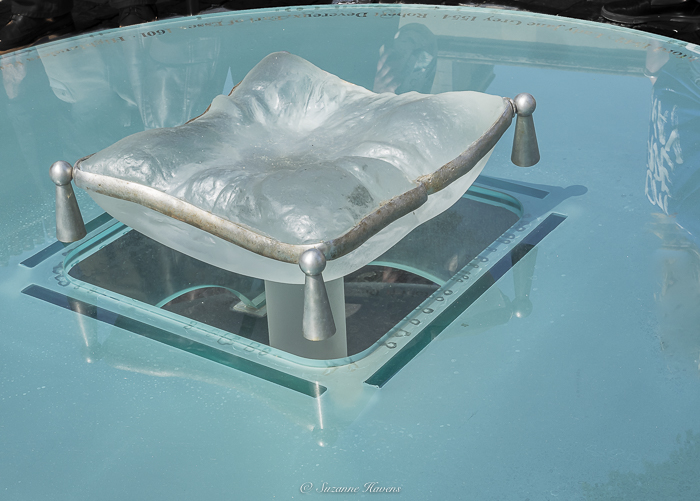
“Execution inside the Tower, away from the gawping crowds, was a privilege reserved for those of high rank or for those who had dangerously strong popular support. The best-known among those executed on or near the site of the memorial are the three queens of England: Anne Boleyn, second wife of Henry VIII, who was in her early thirties, Catherine Howard, Henry VIII’s fifth wife, barely in her twenties and Lady Jane Grey who was only sixteen.” hrp.org.uk
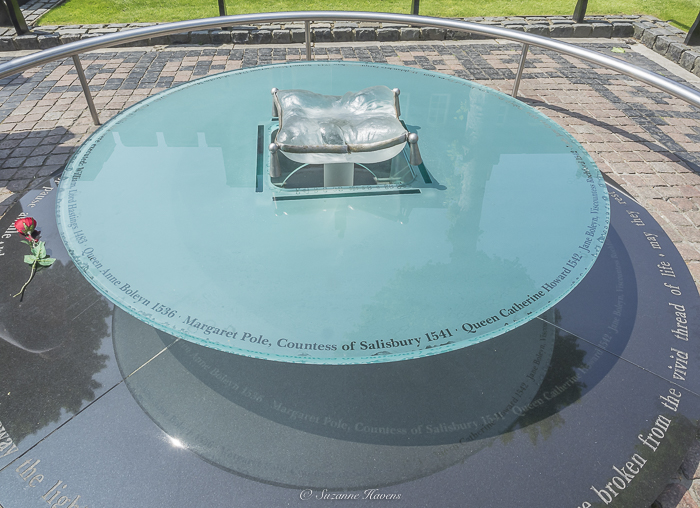
“‘Gentle visitor pause awhile : where you stand death cut away the light of many days : here jewelled names were broken from the vivid thread of life : may they rest in peace while we walk the generations around their strife and courage : under there restless skies’. Brian Catling, creator of the execution site memorial” hrp.org.uk
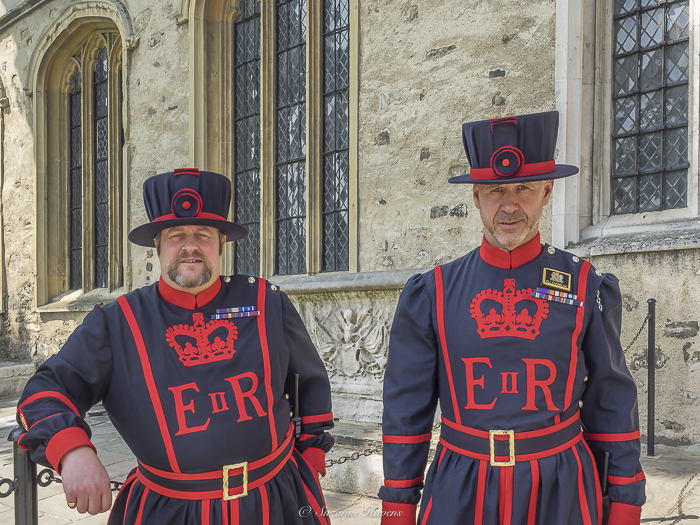
Yeoman Warders, aka “‘Beefeaters’, as they are nicknamed, have long been symbols of London and Britain. It is thought their nickname is derived from their position in the Royal Bodyguard, which permitted them to eat as much beef as they wanted from the king’s table. They are a detachment of the ‘Yeomen of the Guard’, and they’ve formed the Royal Bodyguard since at least 1509.” hrp.org.uk
The Royal Horticultural Society’s Chelsea Flower Show features a design competition among floral designers. The 2016 floral sculptures are in the form of male headdresses. Both the overall design and the details are fascinating, so I have included multiple views. There were many more sculptures in the show: these are my personal favorites.
We just returned from an amazing and arduous trip to England and France. This was my first visit to England and I wanted to see everything! Despite being jet lagged, we headed to London’s Chelsea neighborhood to see the world-famous Royal Horticultural Society’s annual Chelsea Flower Show. Tickets sell out fast, so I had booked them well in advance. By the end of the visit I could hardly walk, but we stayed till they closed for the day and still didn’t see it all. Of course, every 10 feet I found something I wanted to make a photograph of. For me the raw image is a starting point. Not only do I have all the usual decisions about cropping and lighting, but because it was a crowded show with lots of labels on the plants, I needed to remove the extraneous items. And then sometimes I paint the photo, moving elements, repeating elements, changing colors to make my own color schemes. I write this so that you will know that these are not journalistic but rather painterly in nature. I begin with the beautiful Chelsea neighborhood. This post is dedicated to my mother who loved flower gardens and passed away twenty years ago today.
